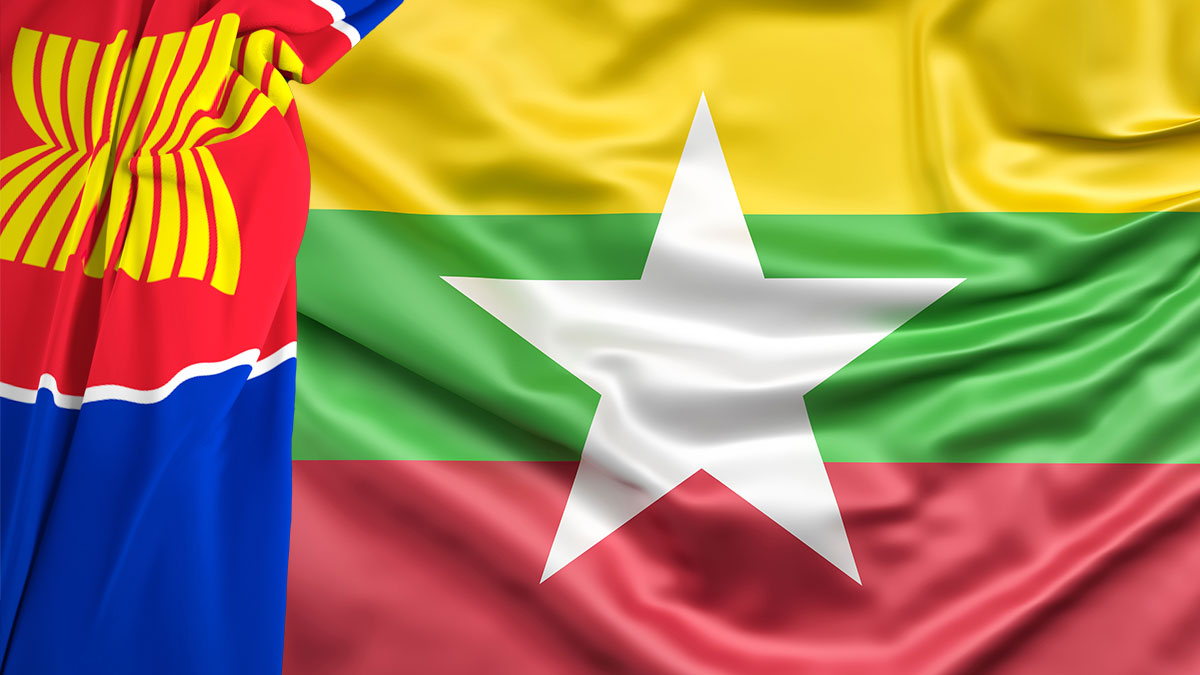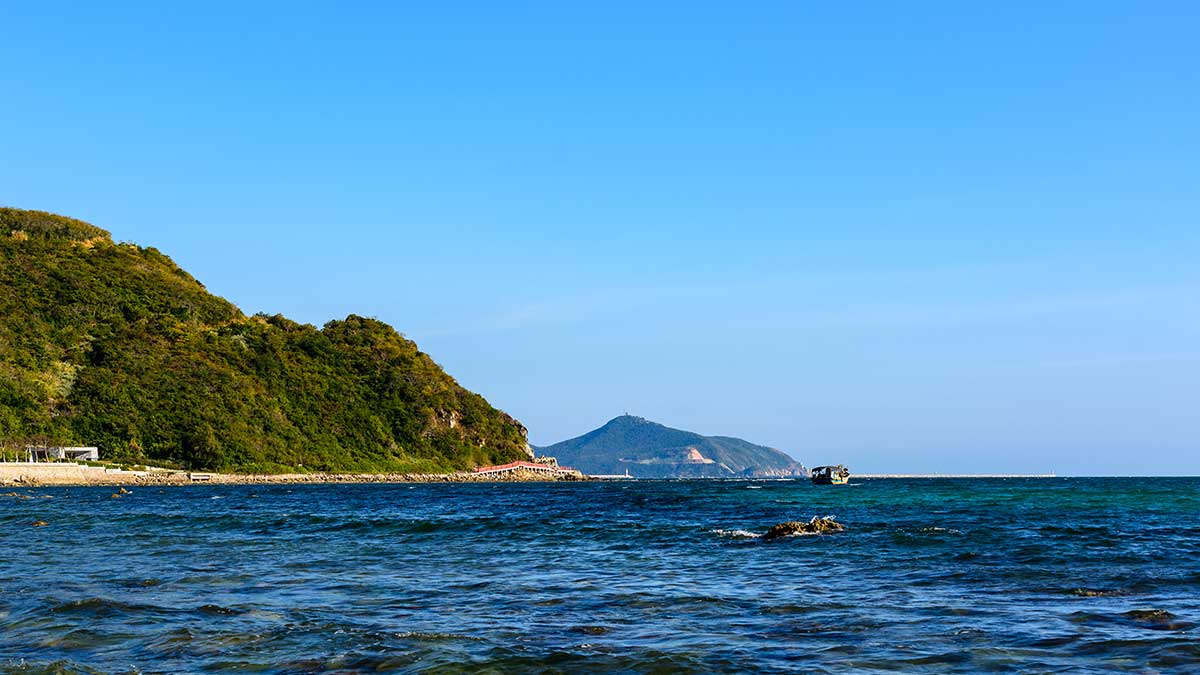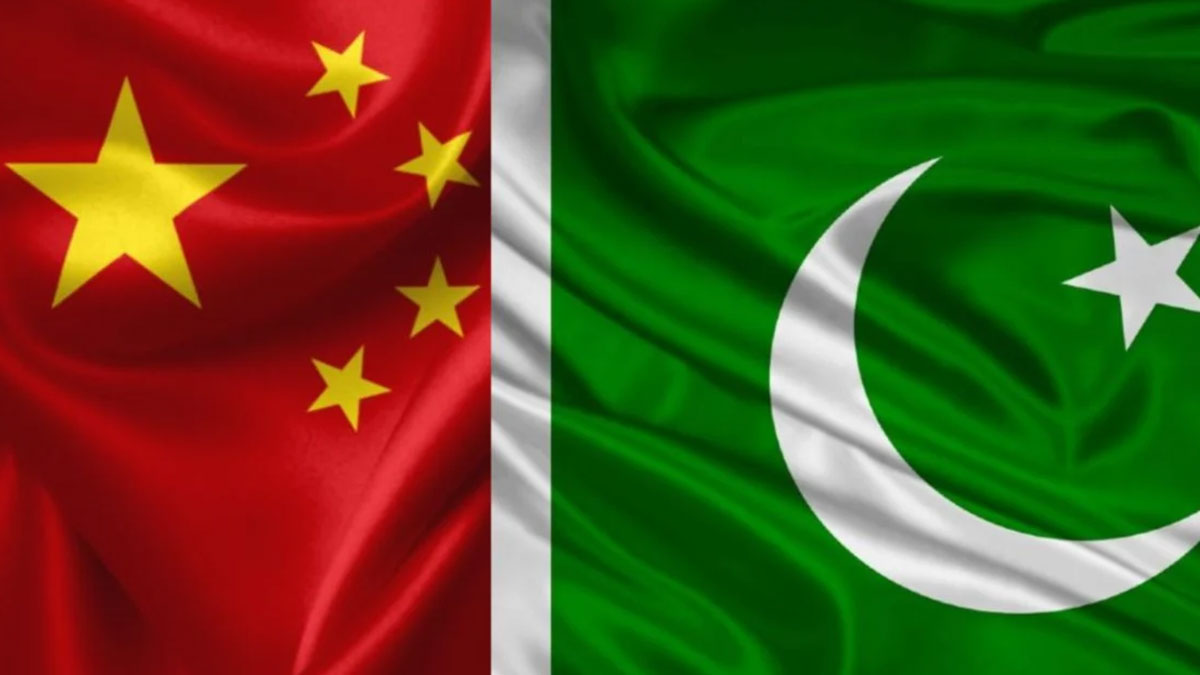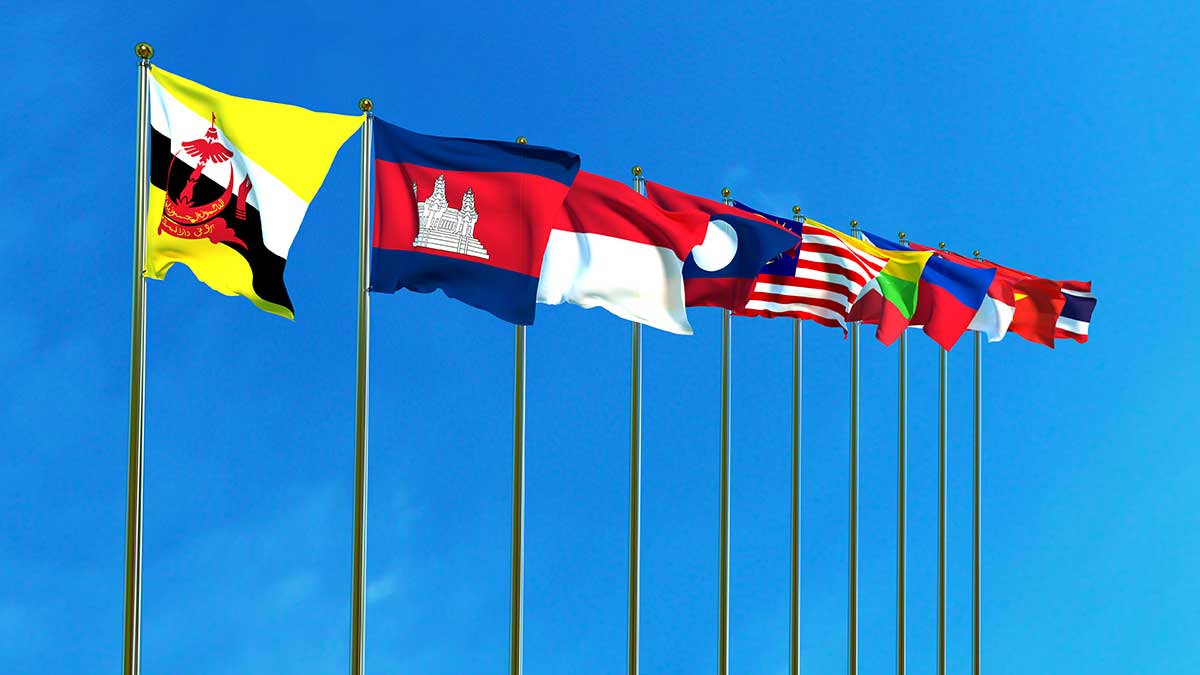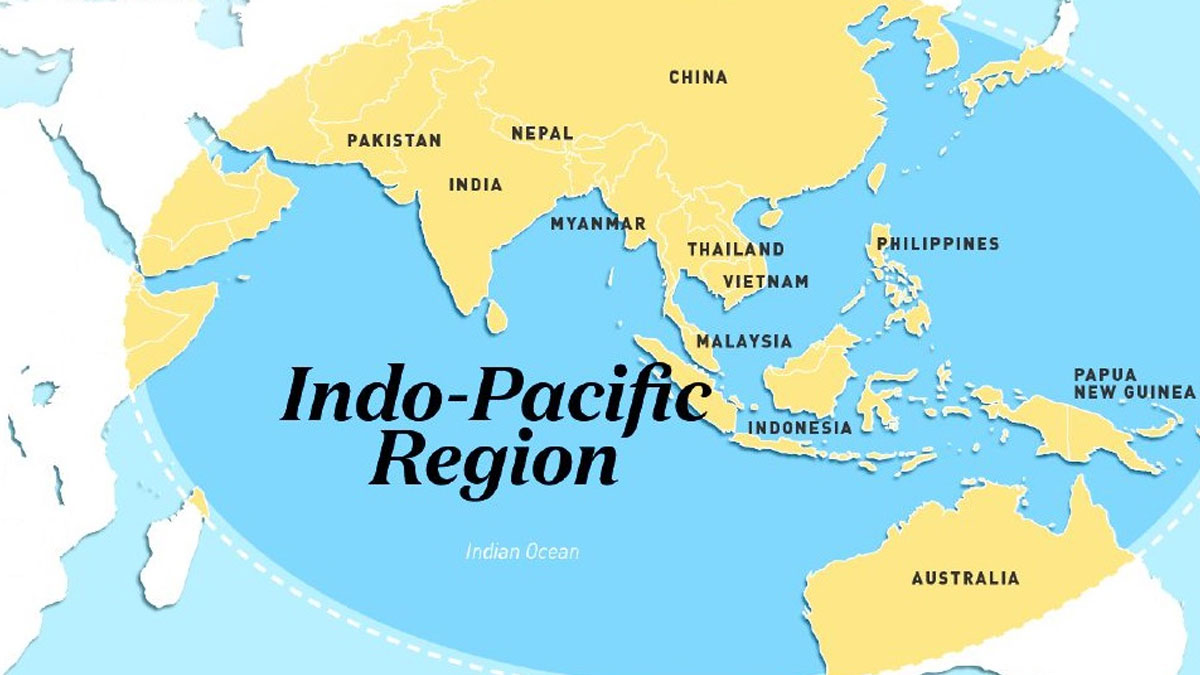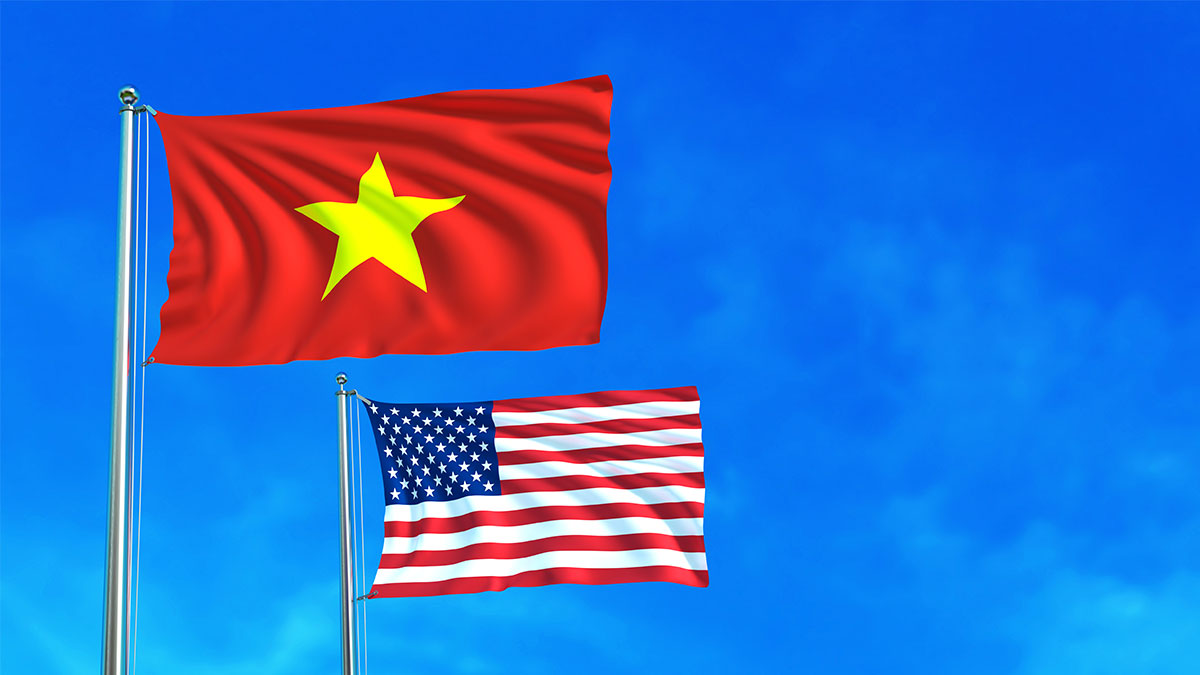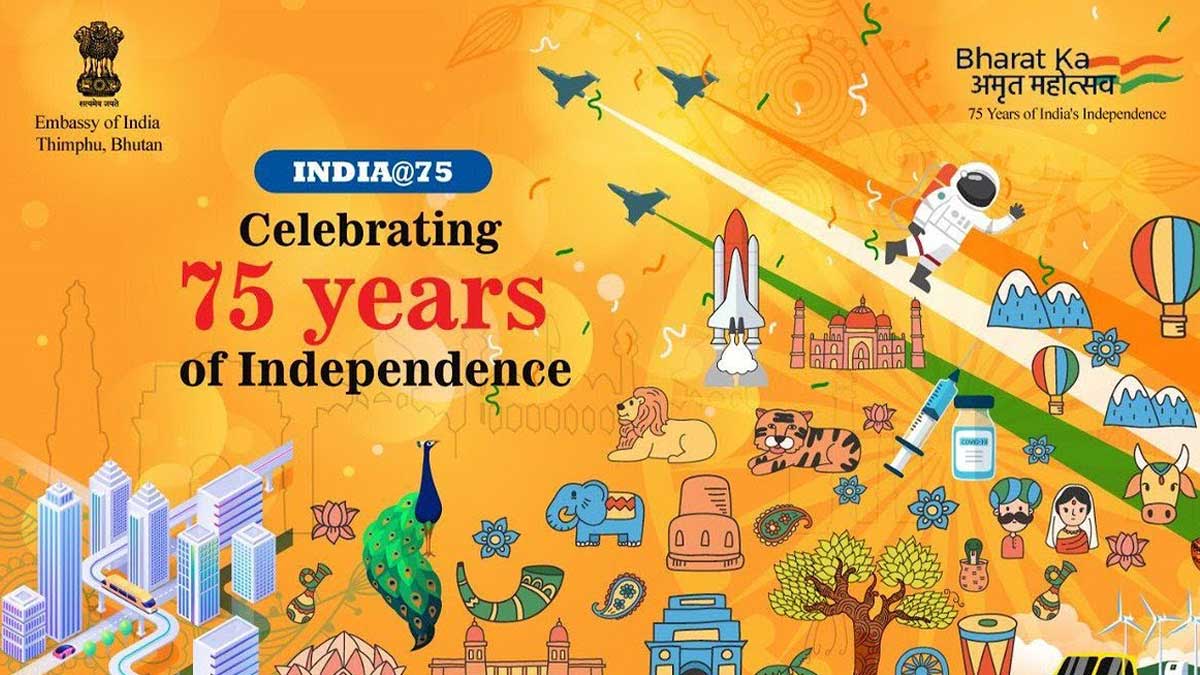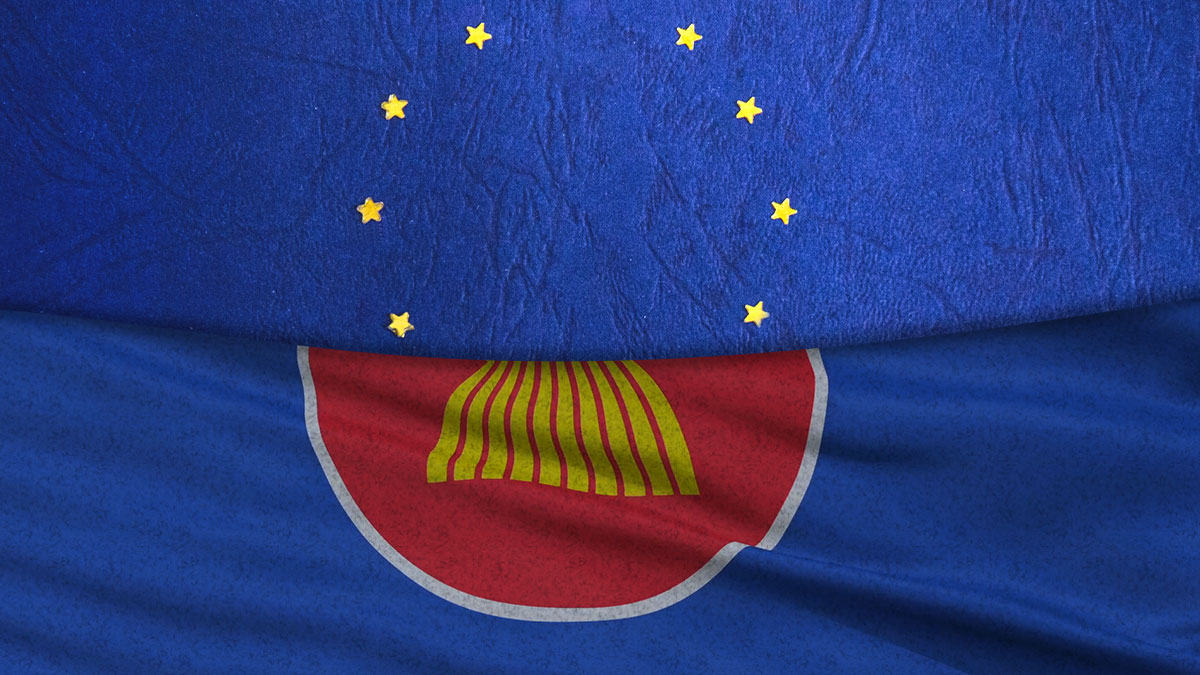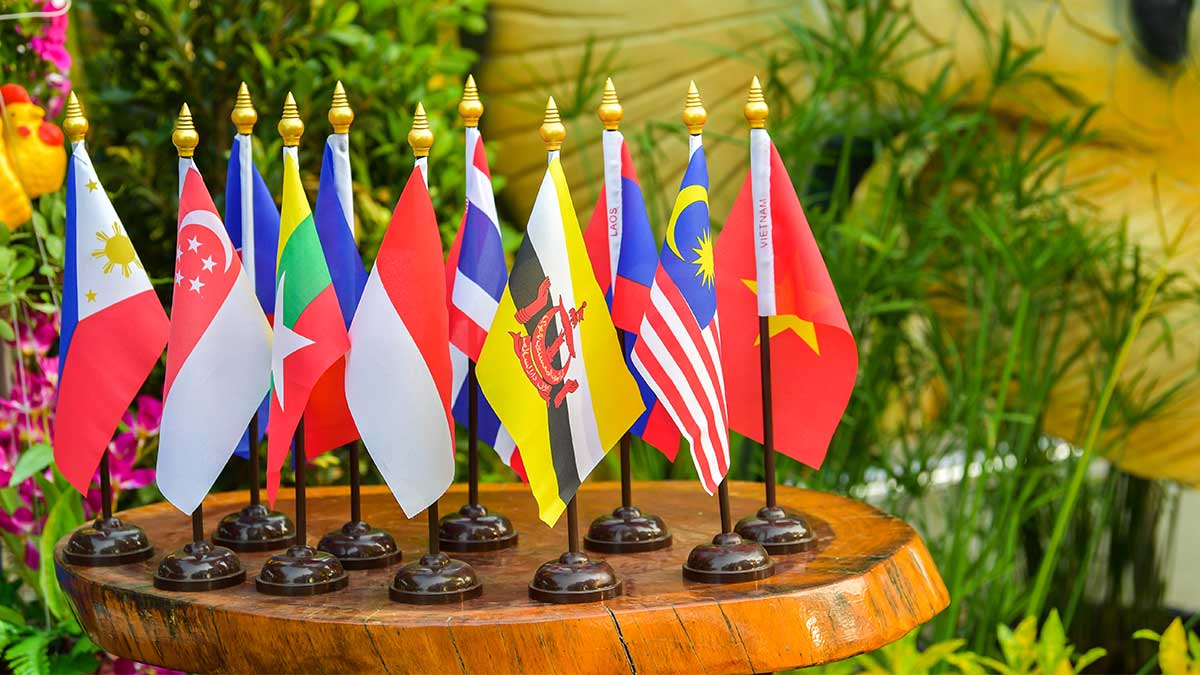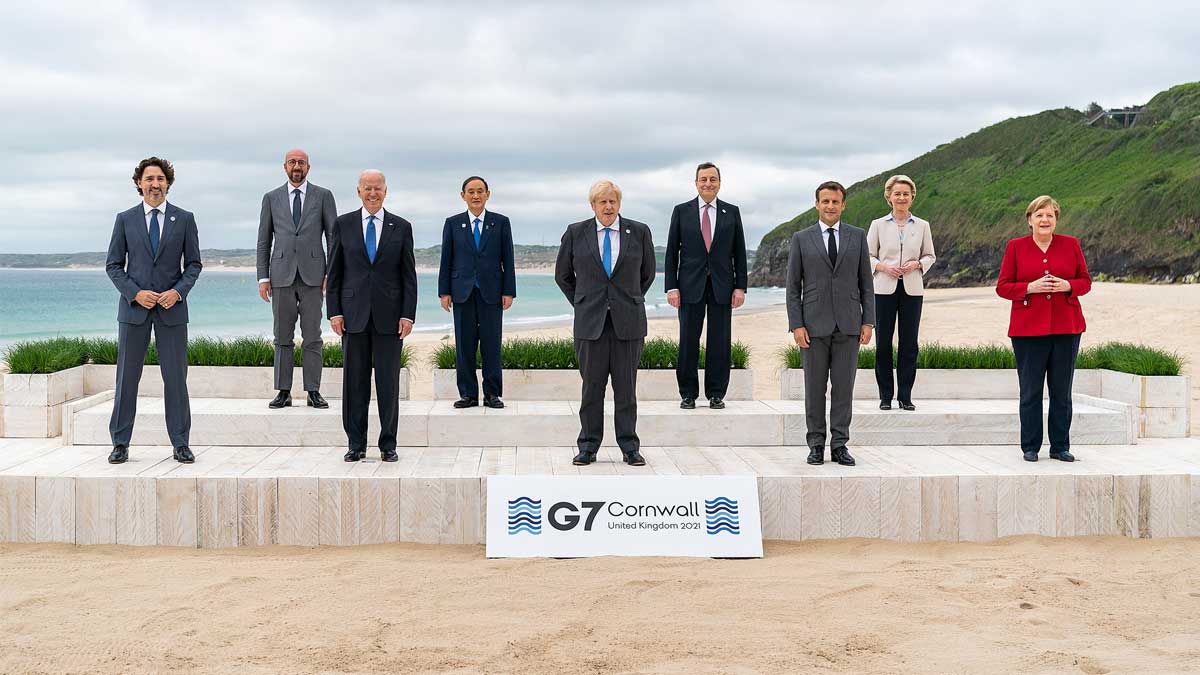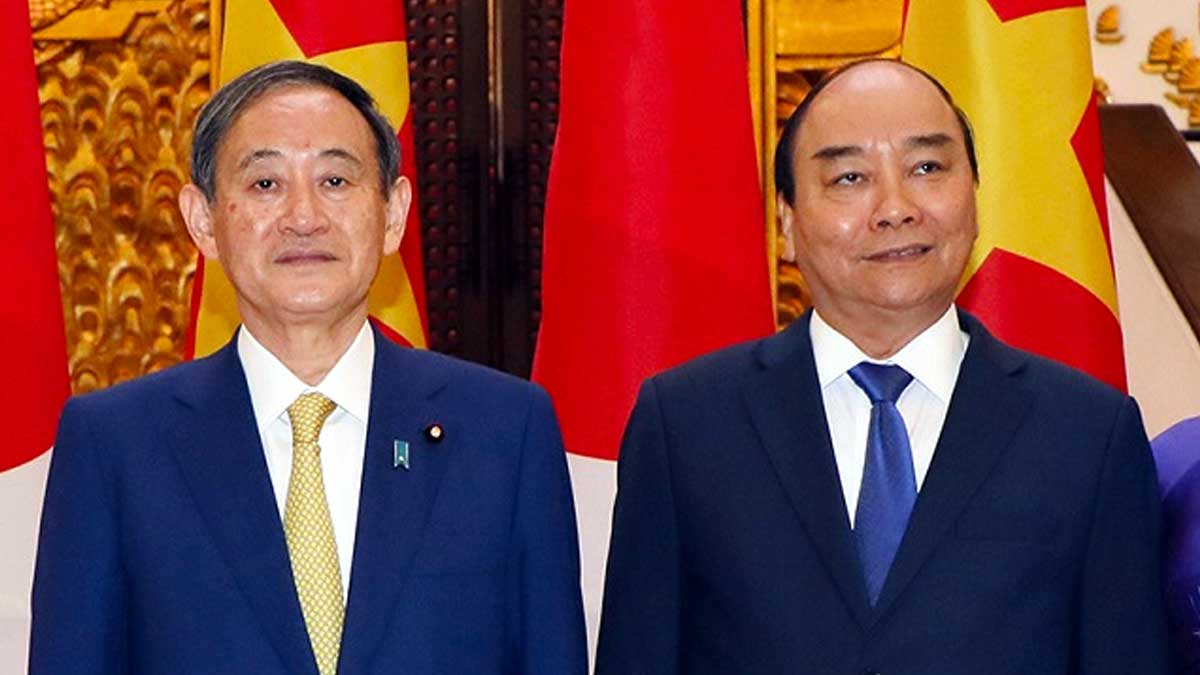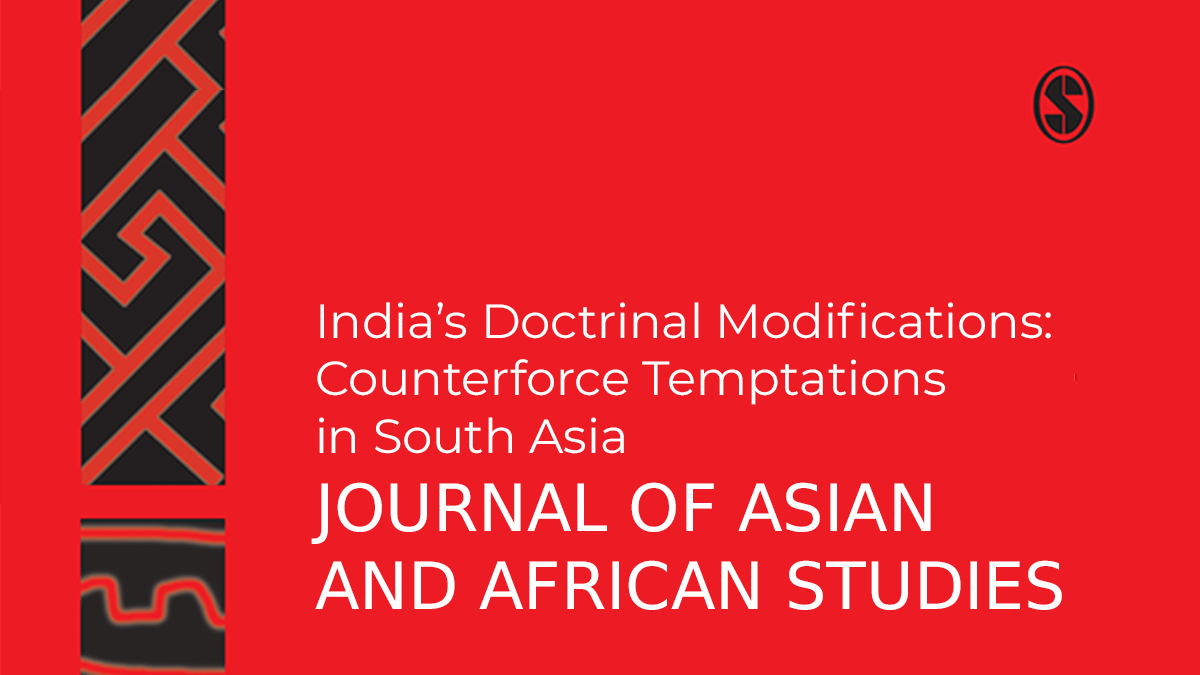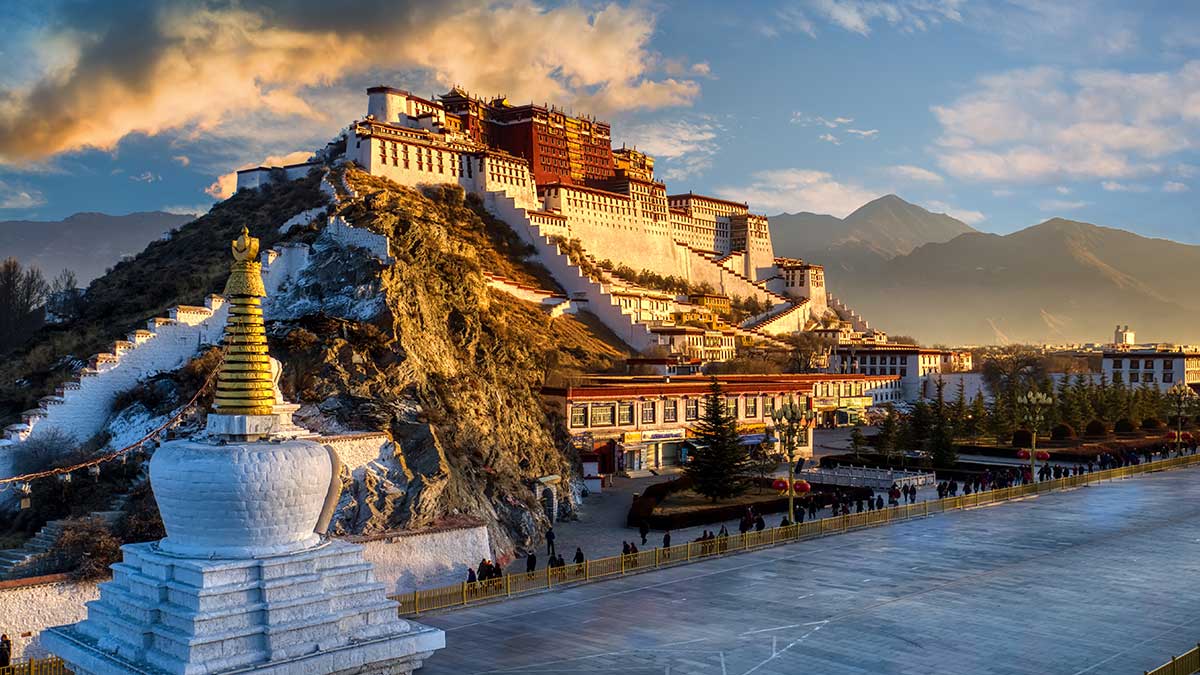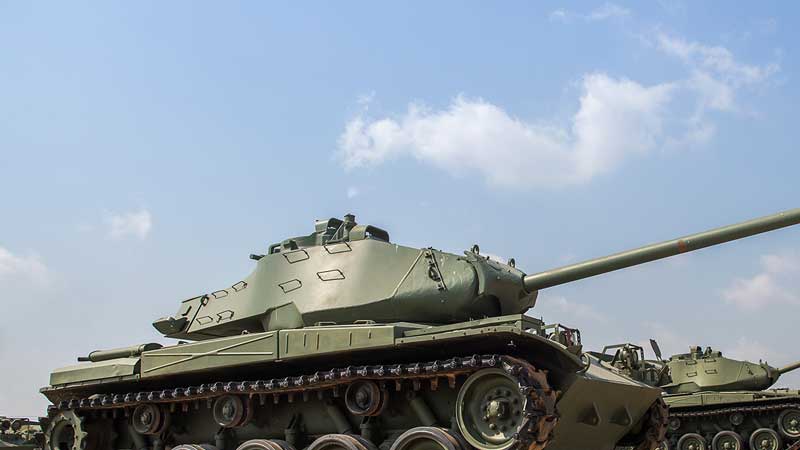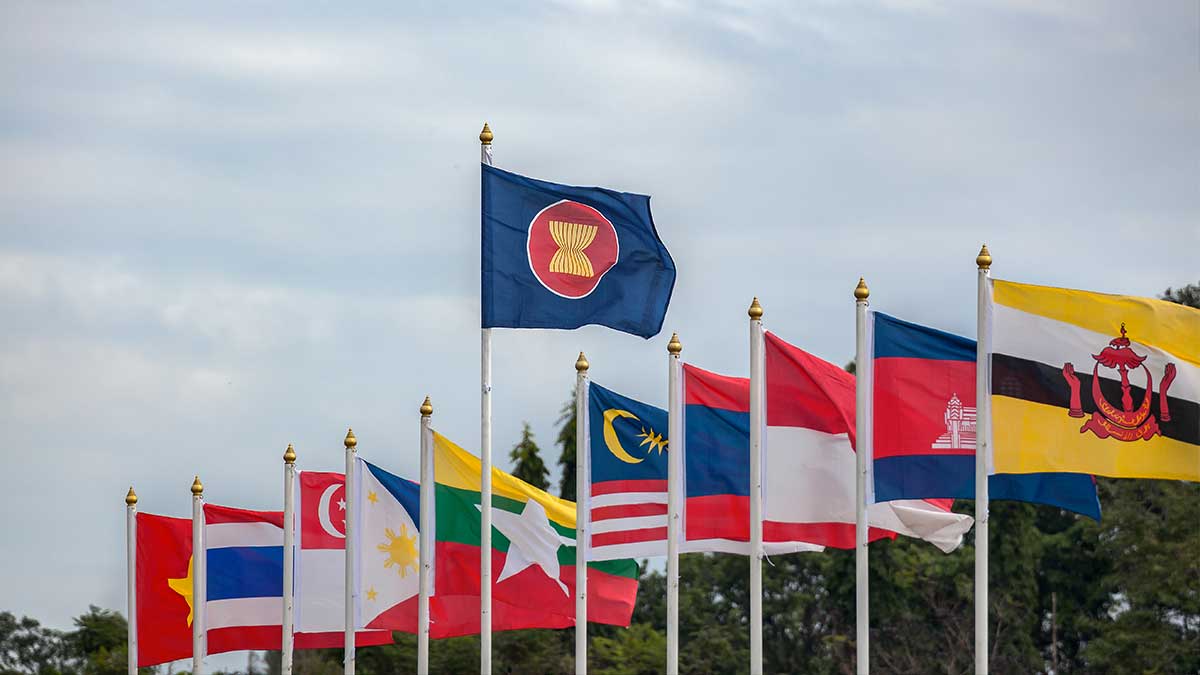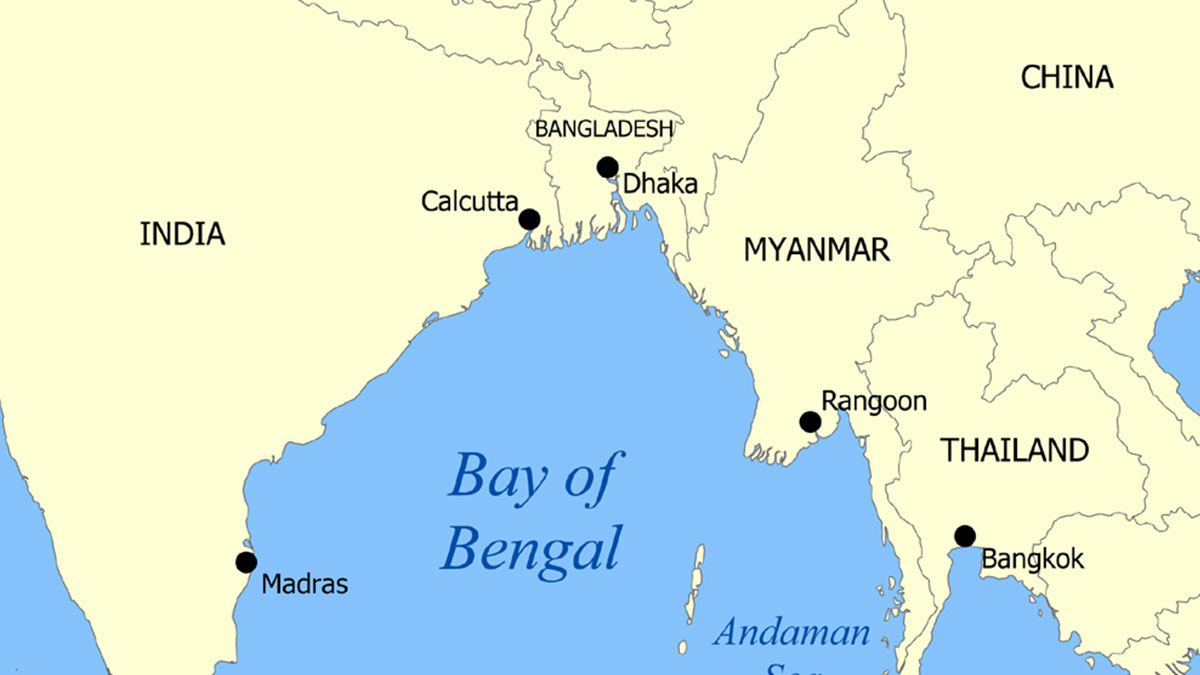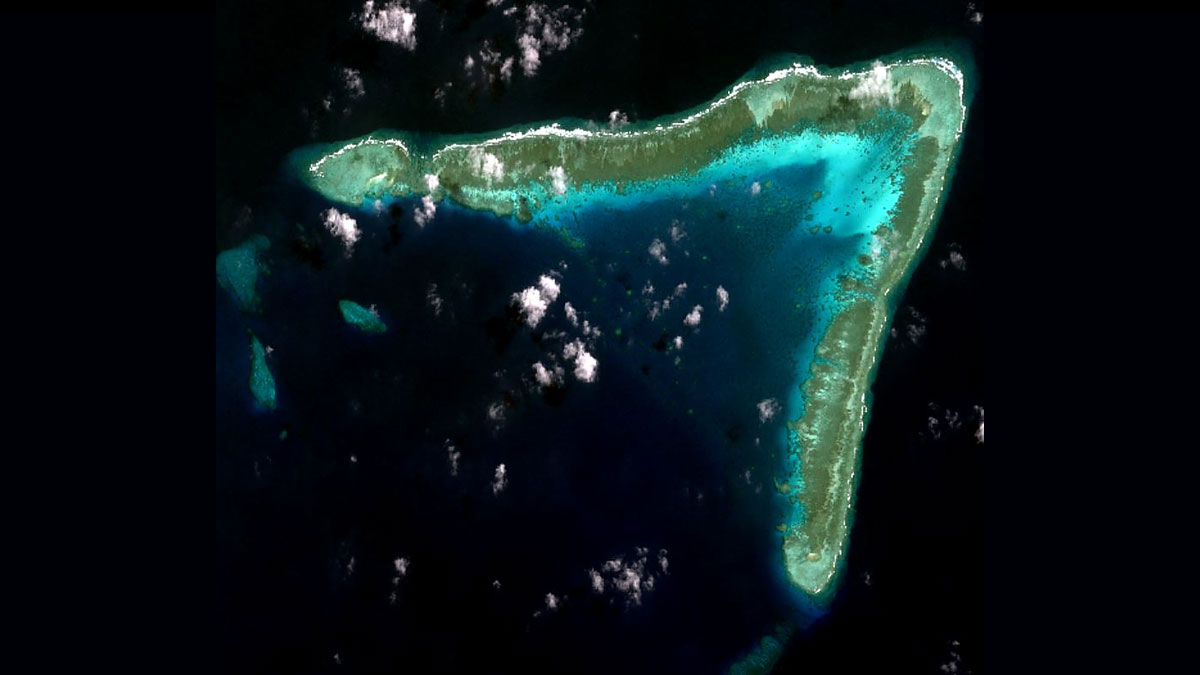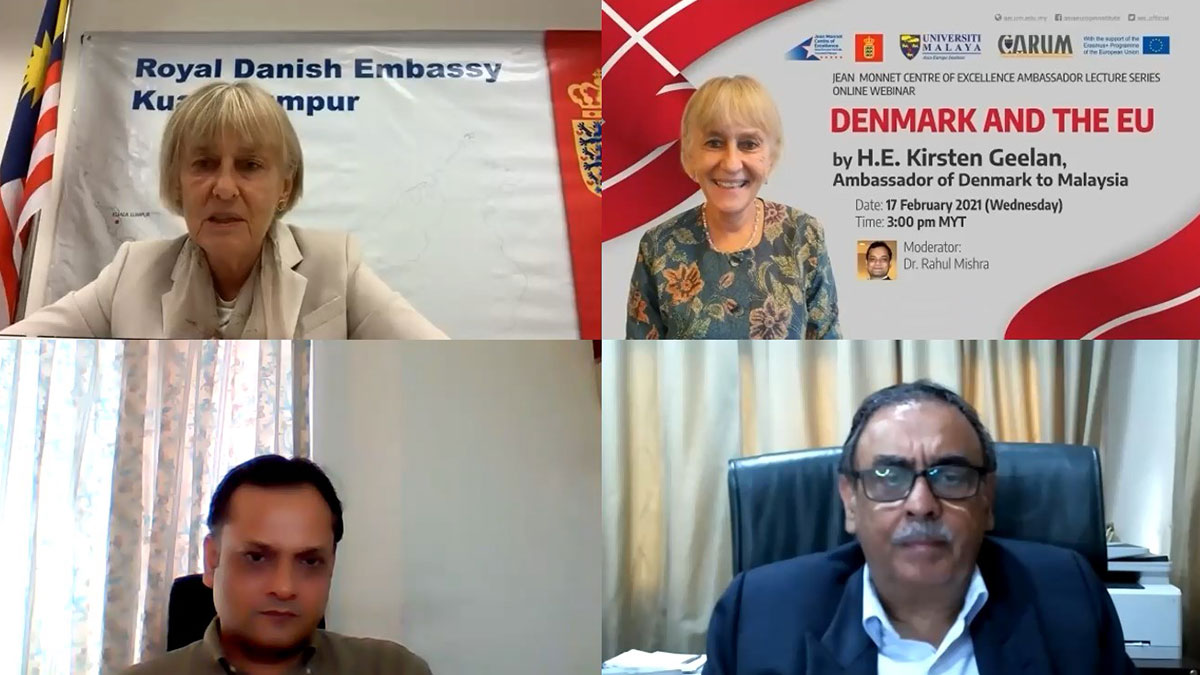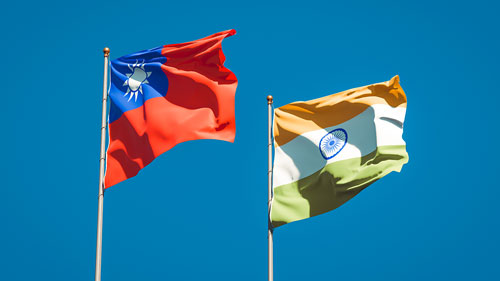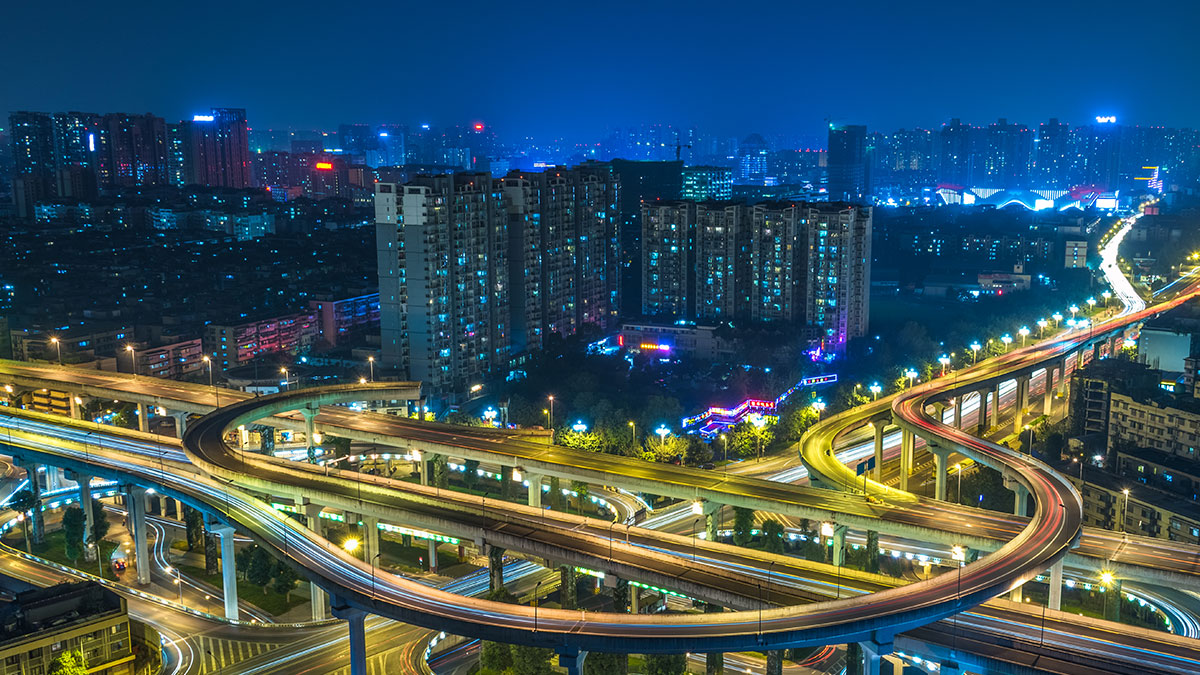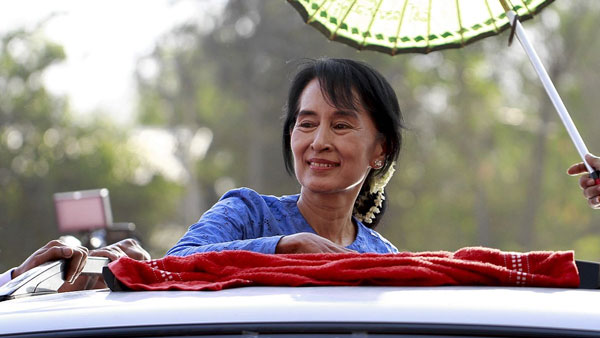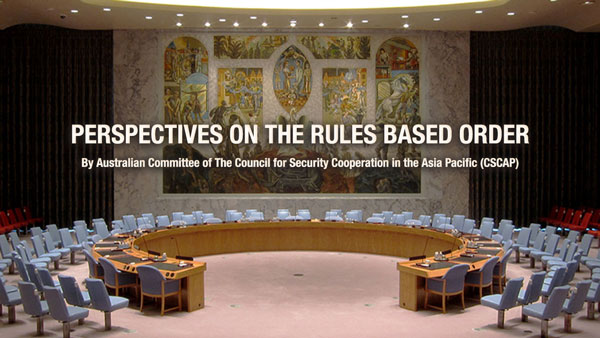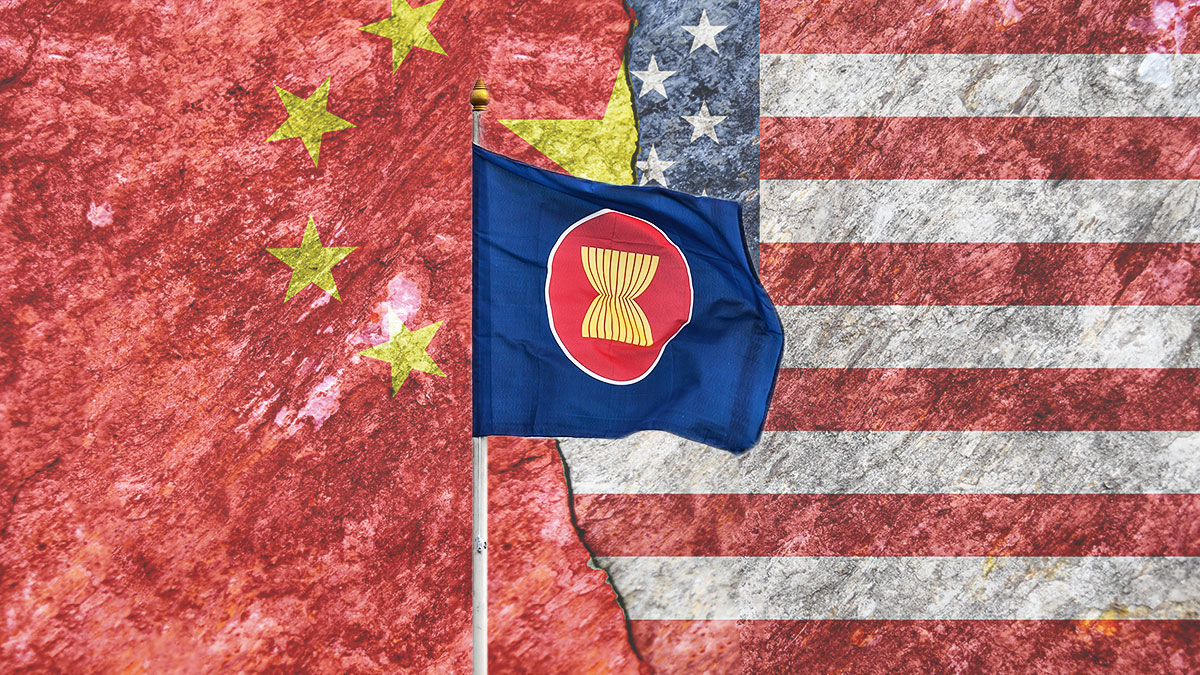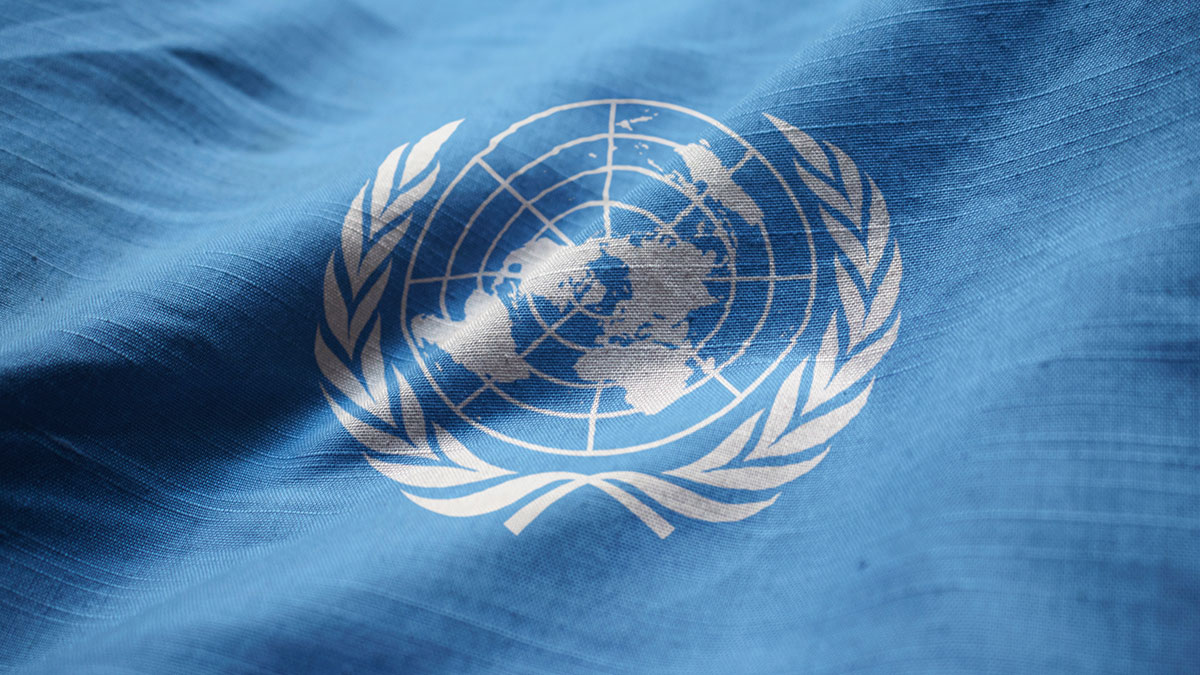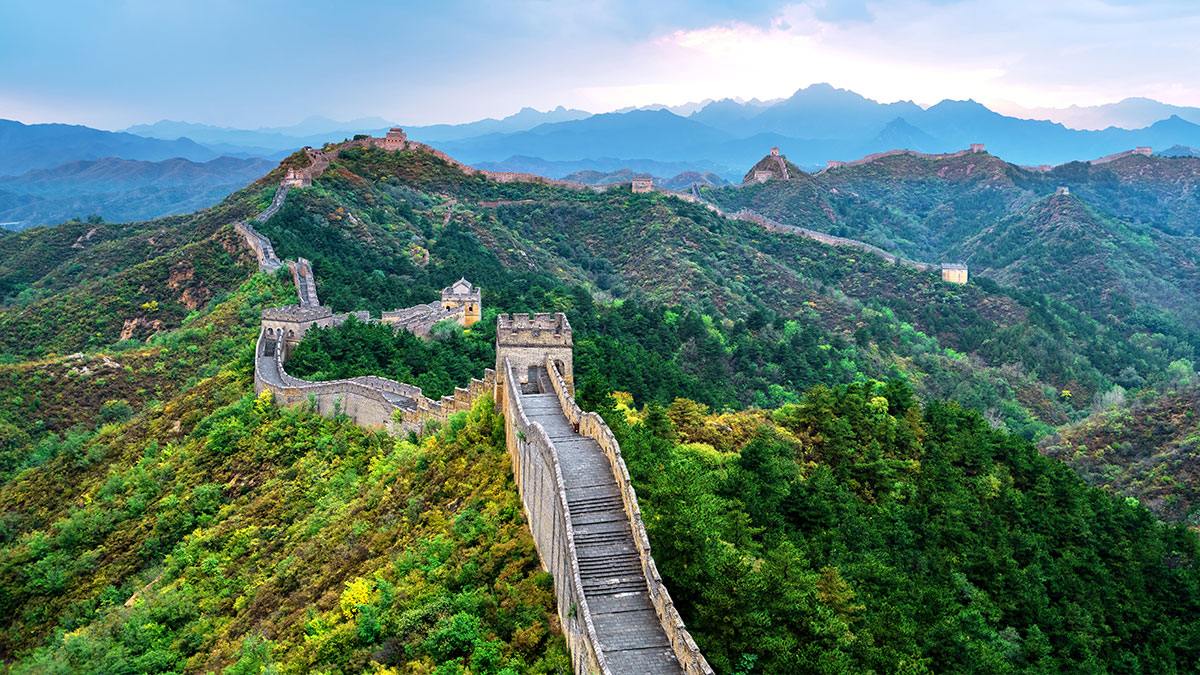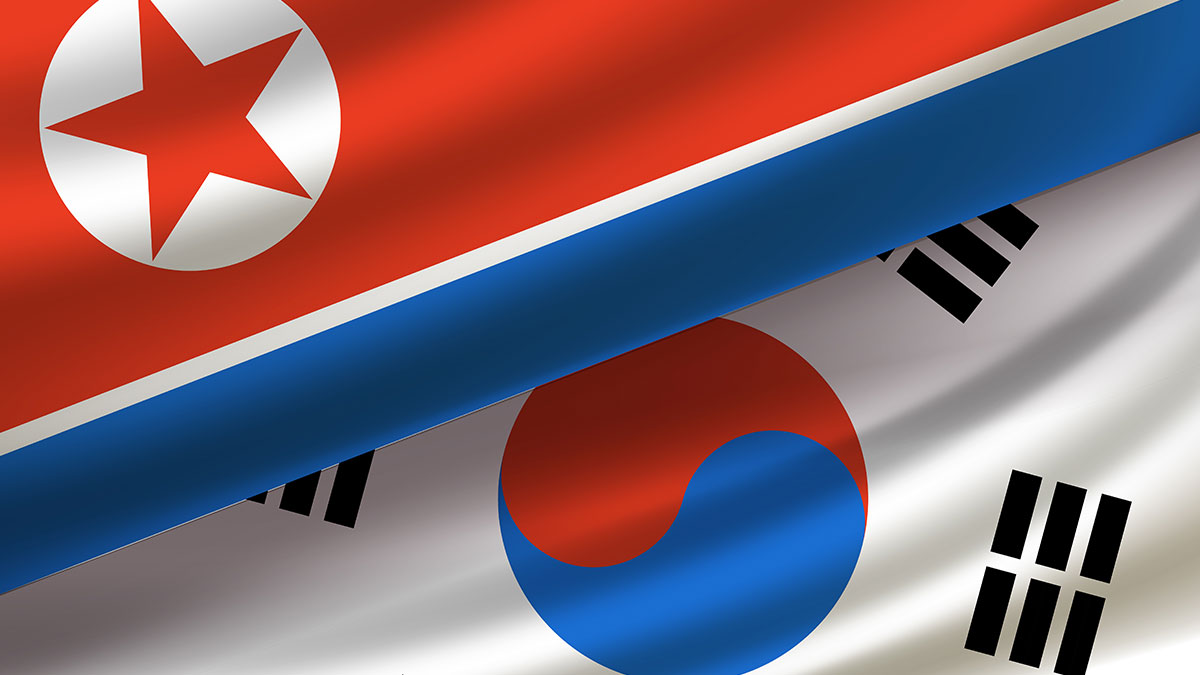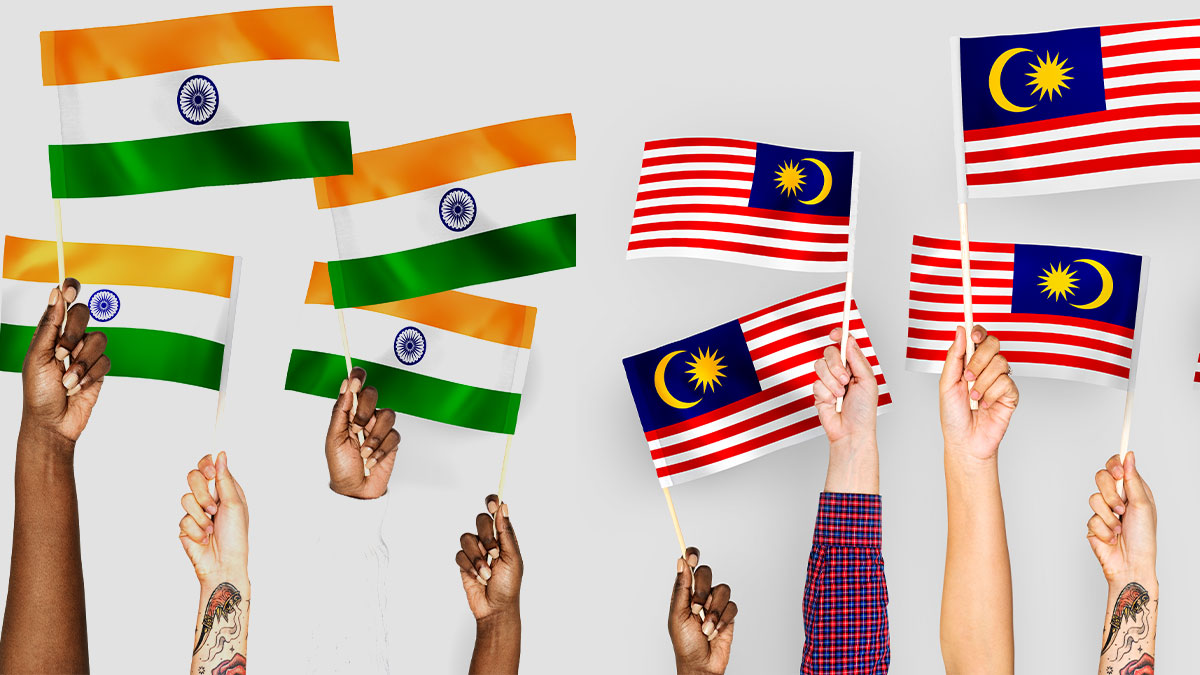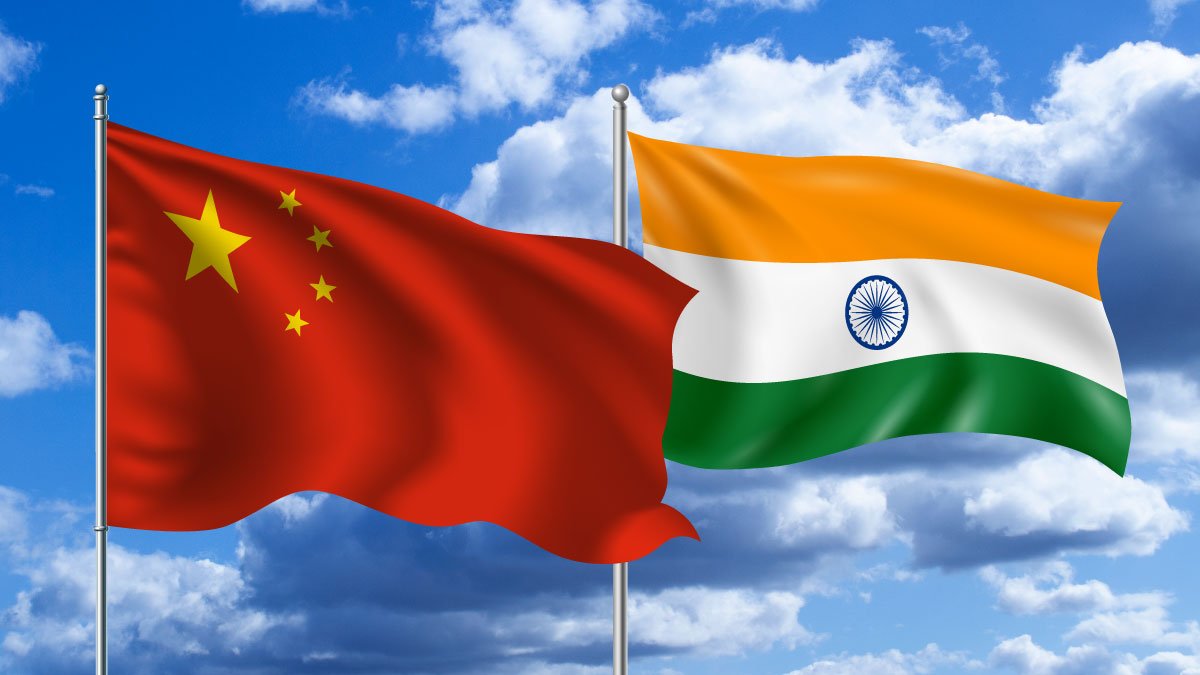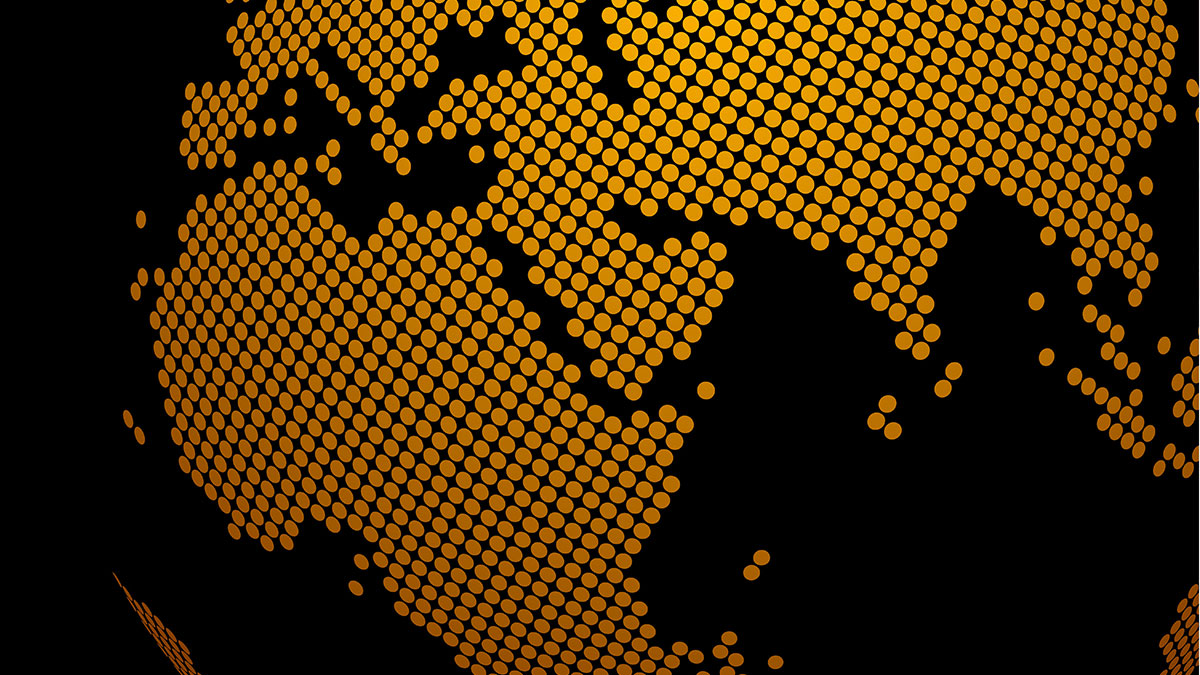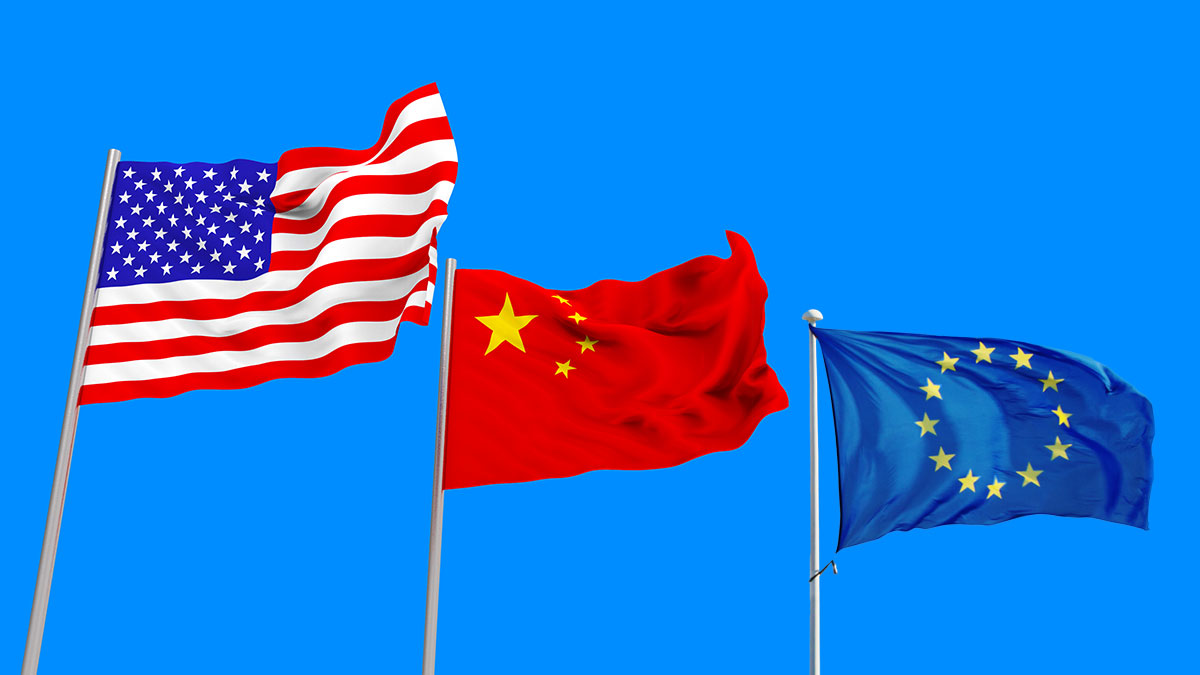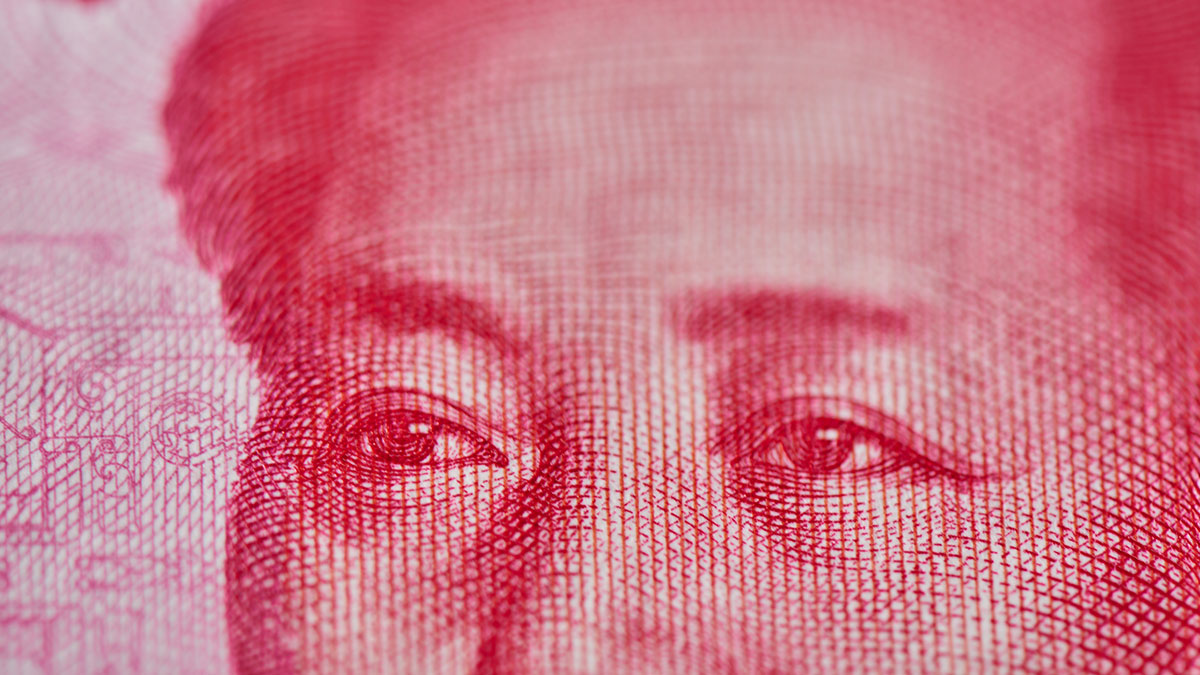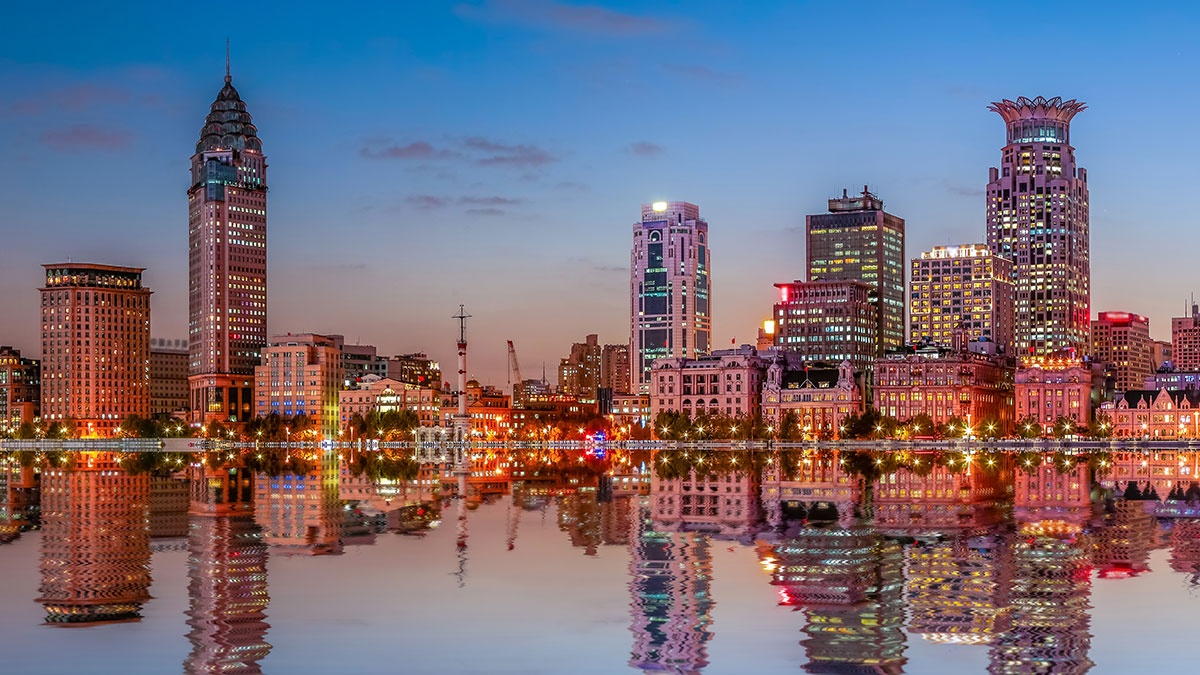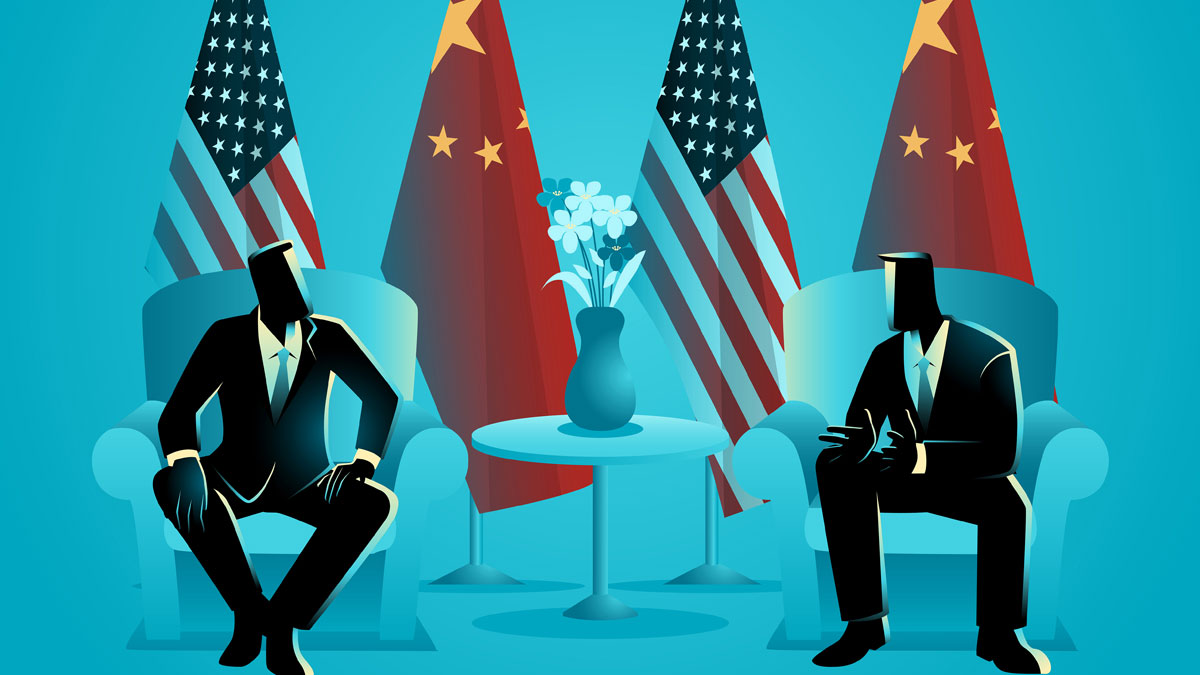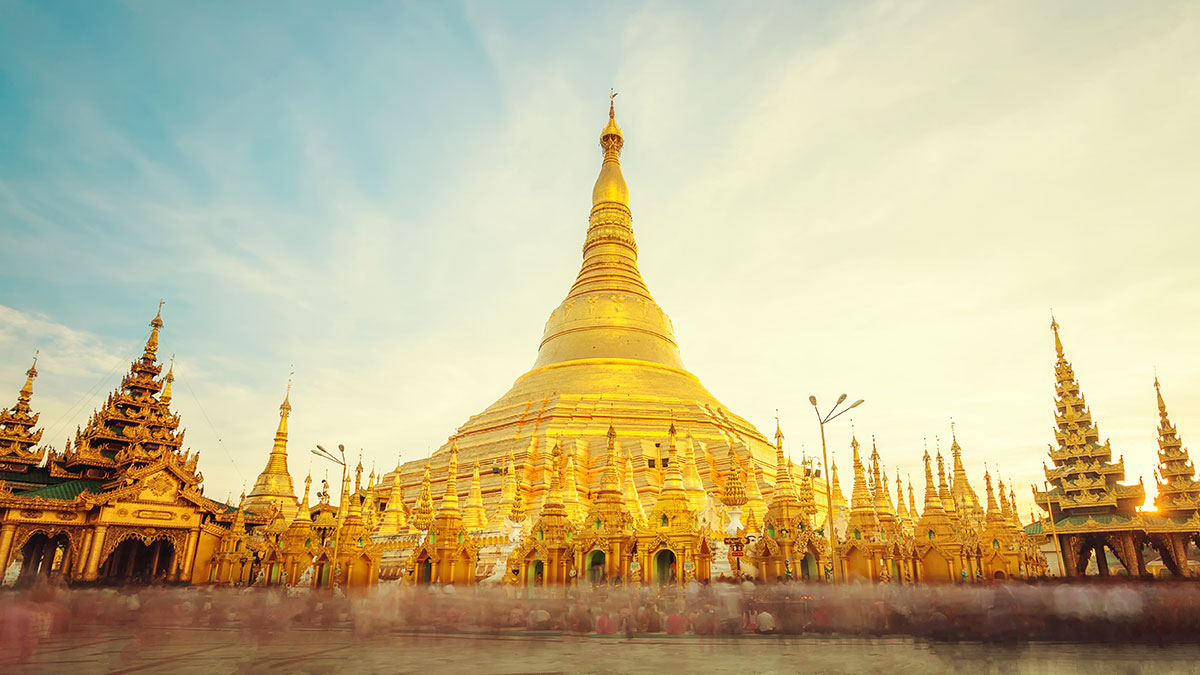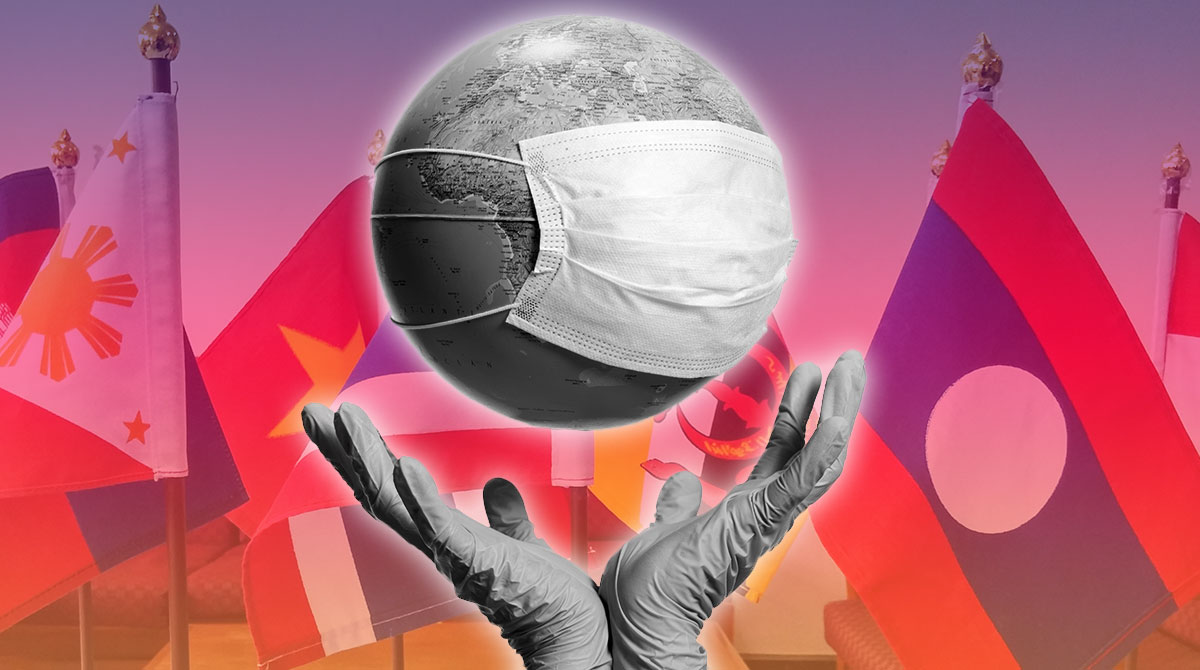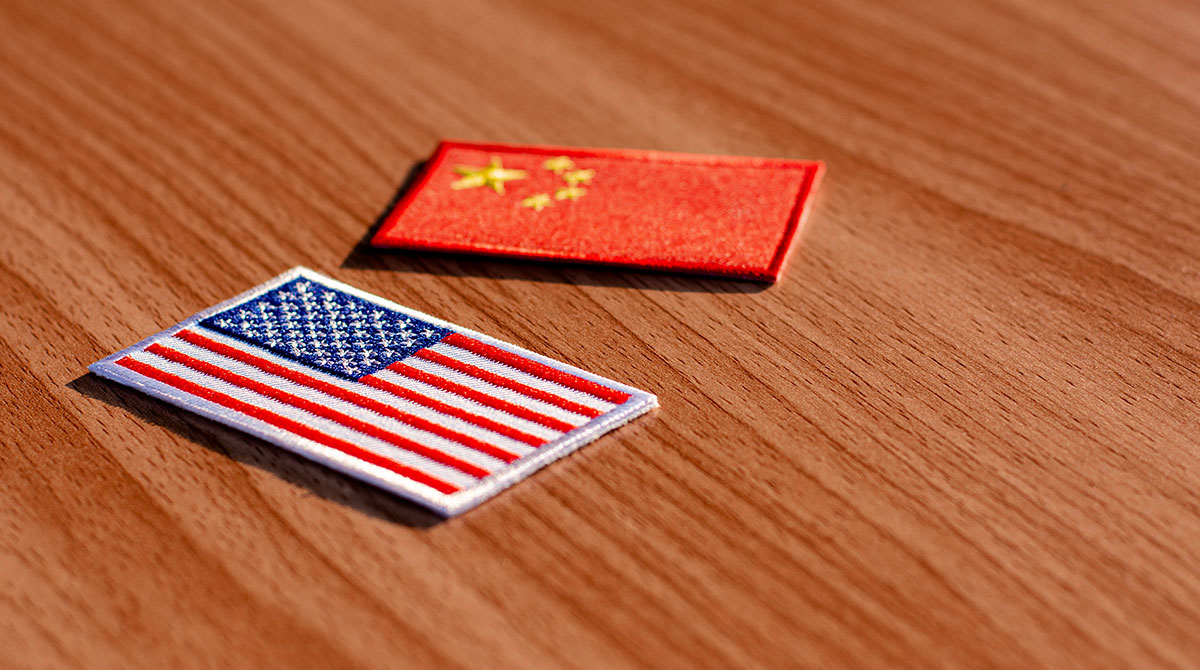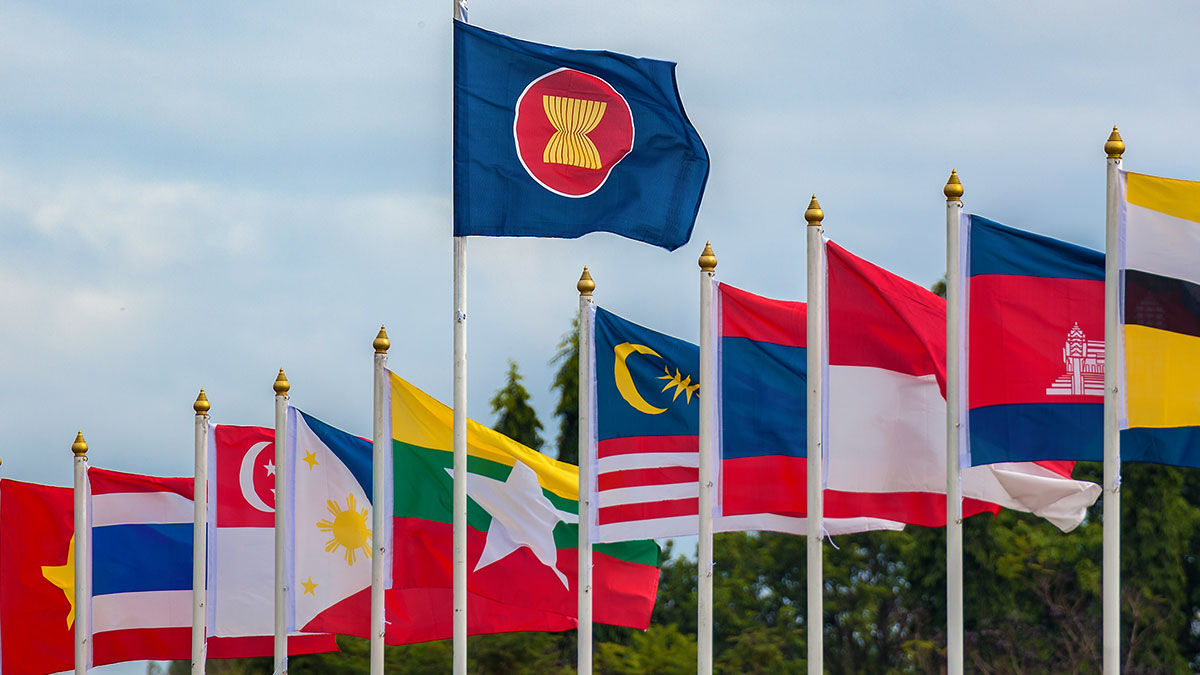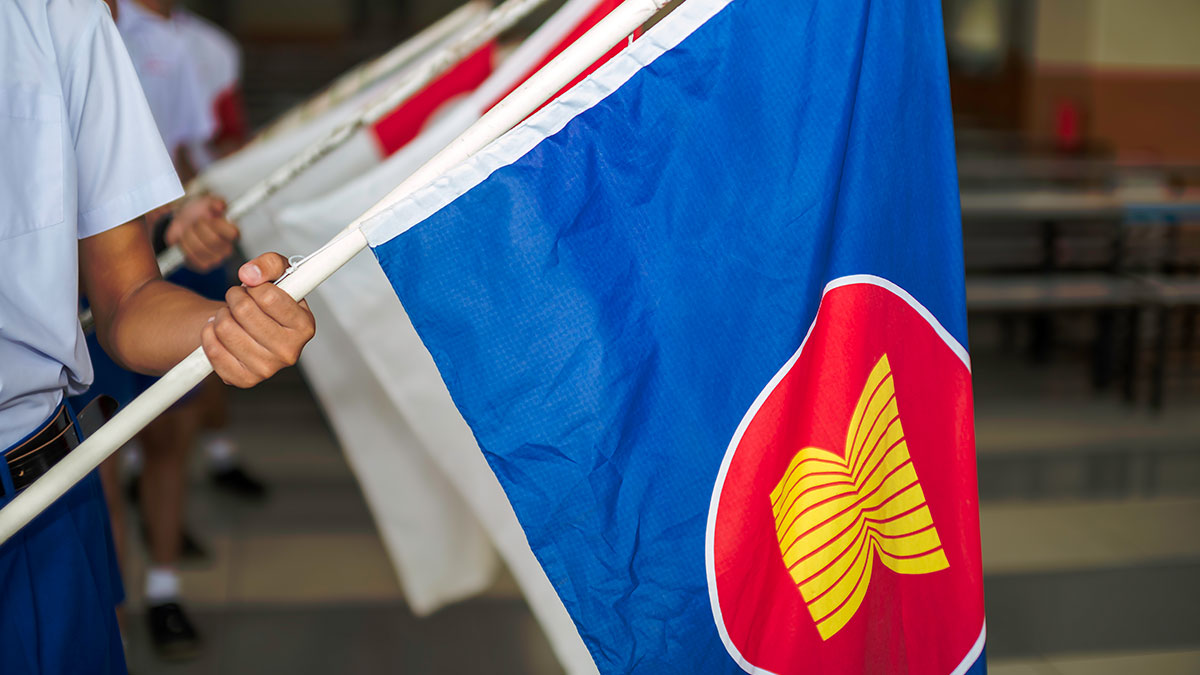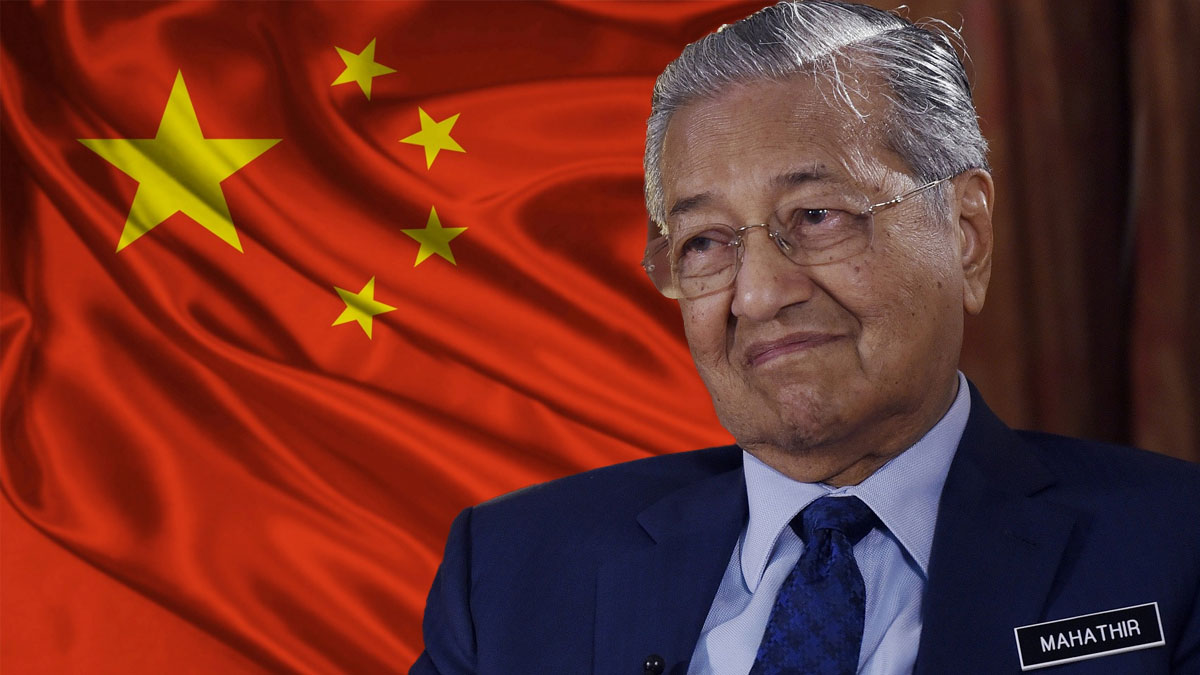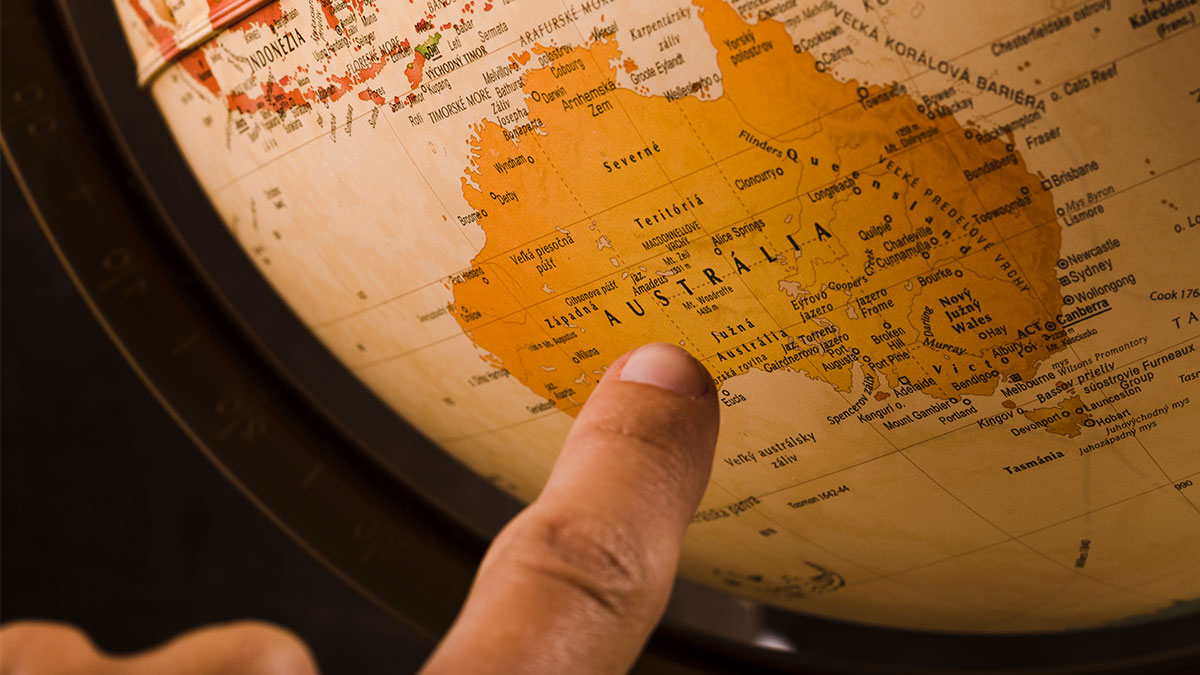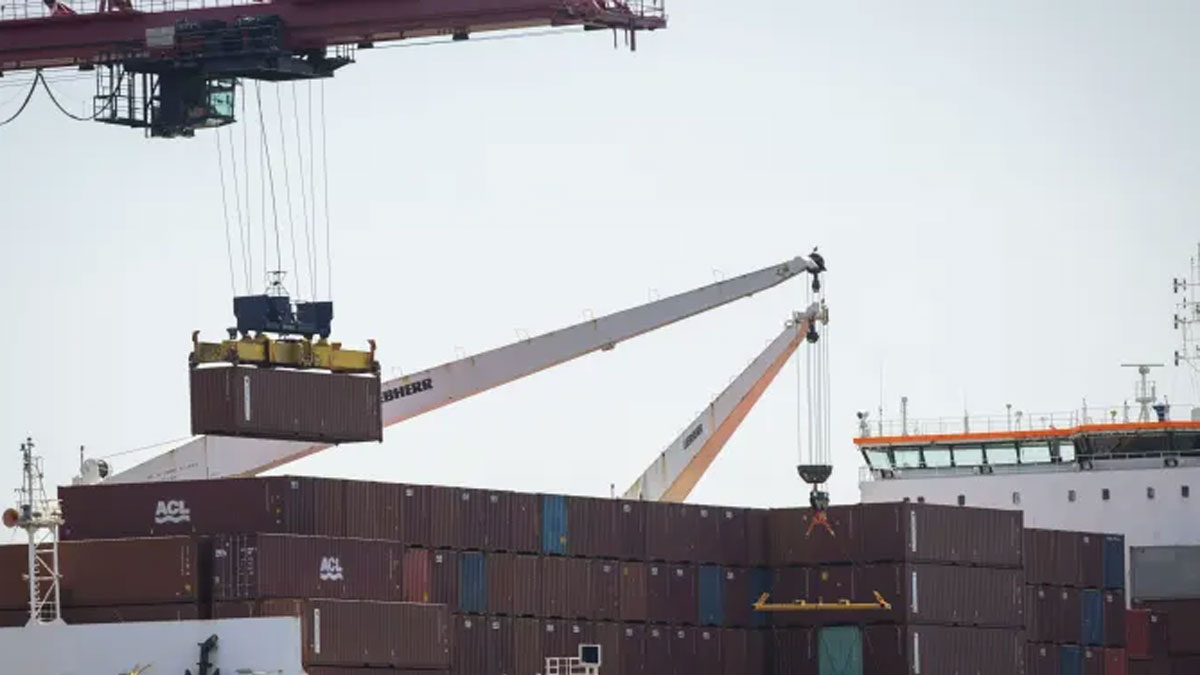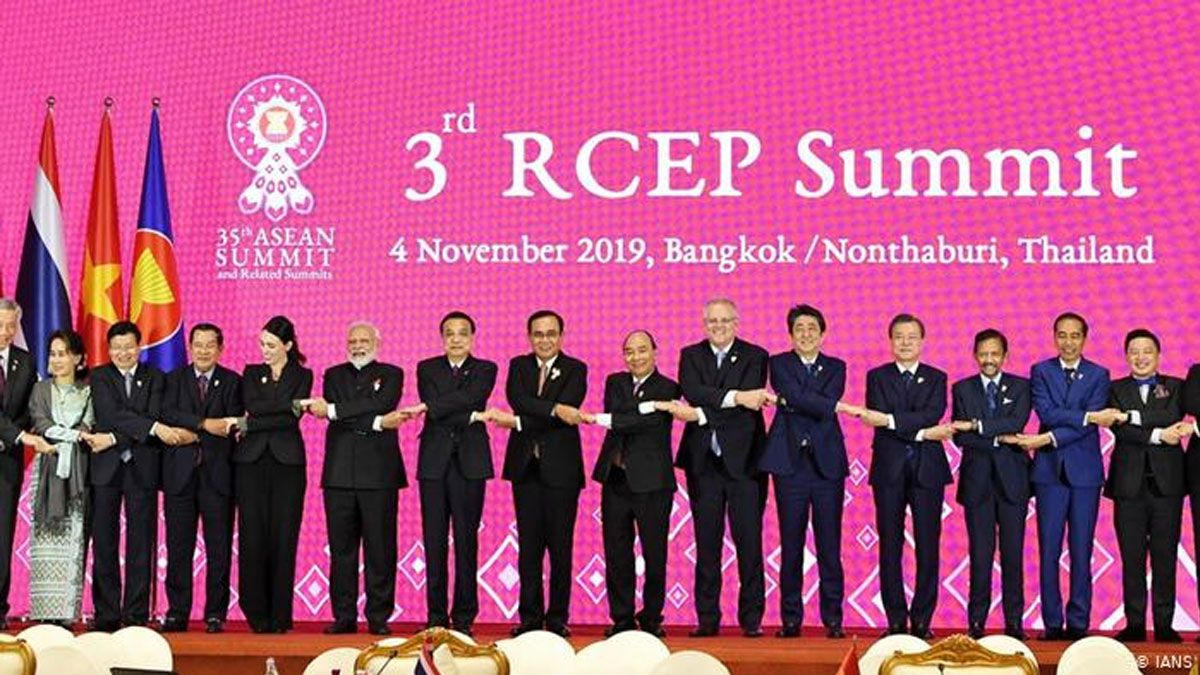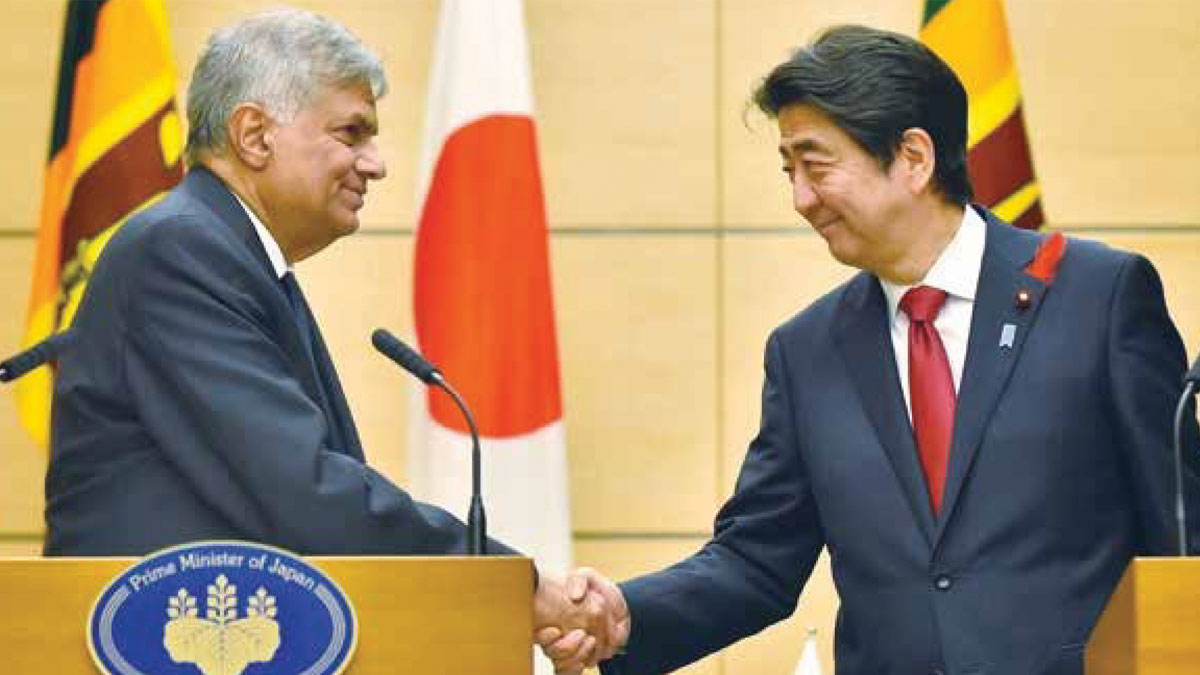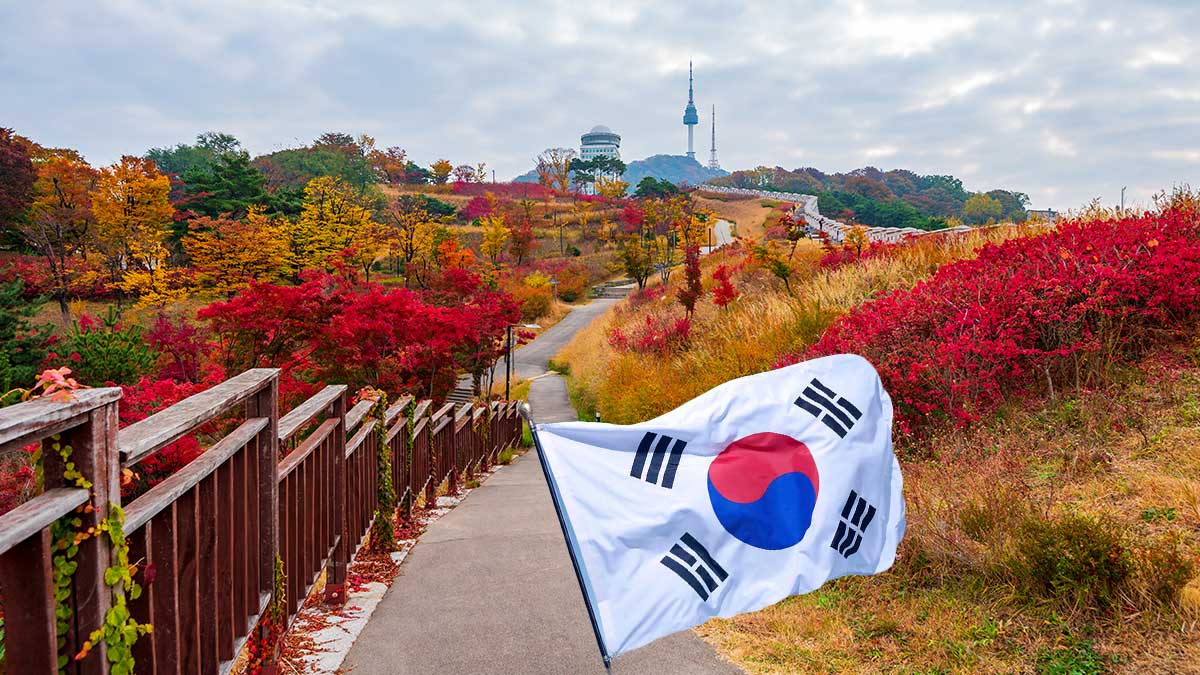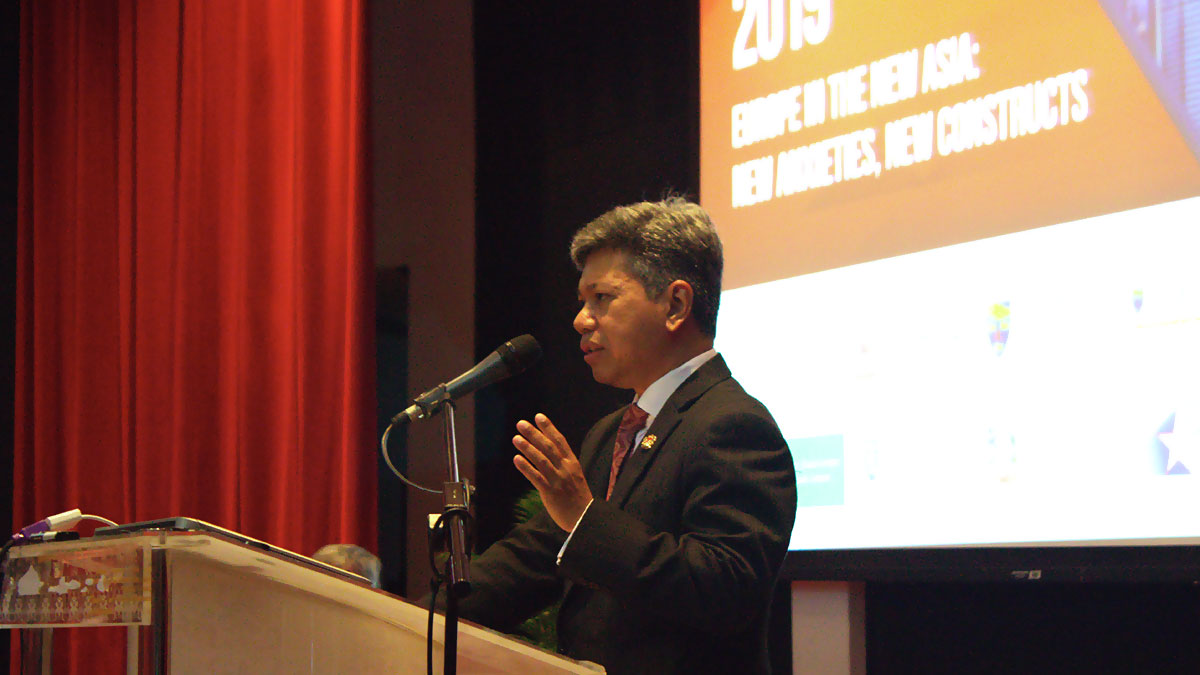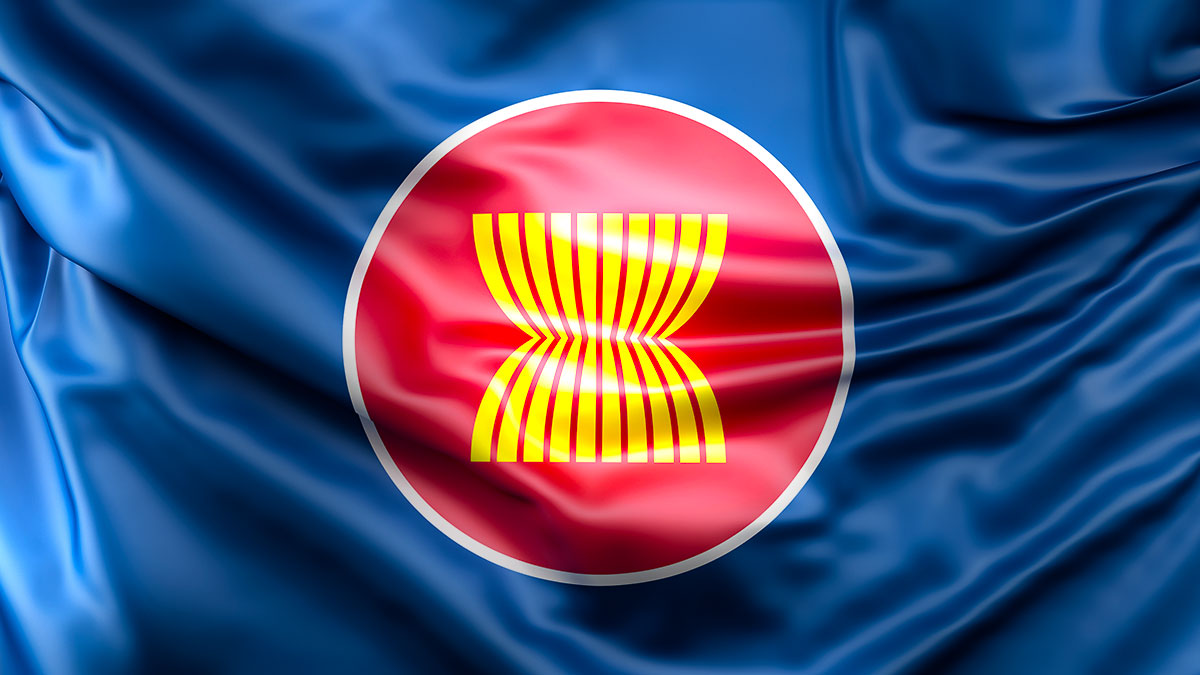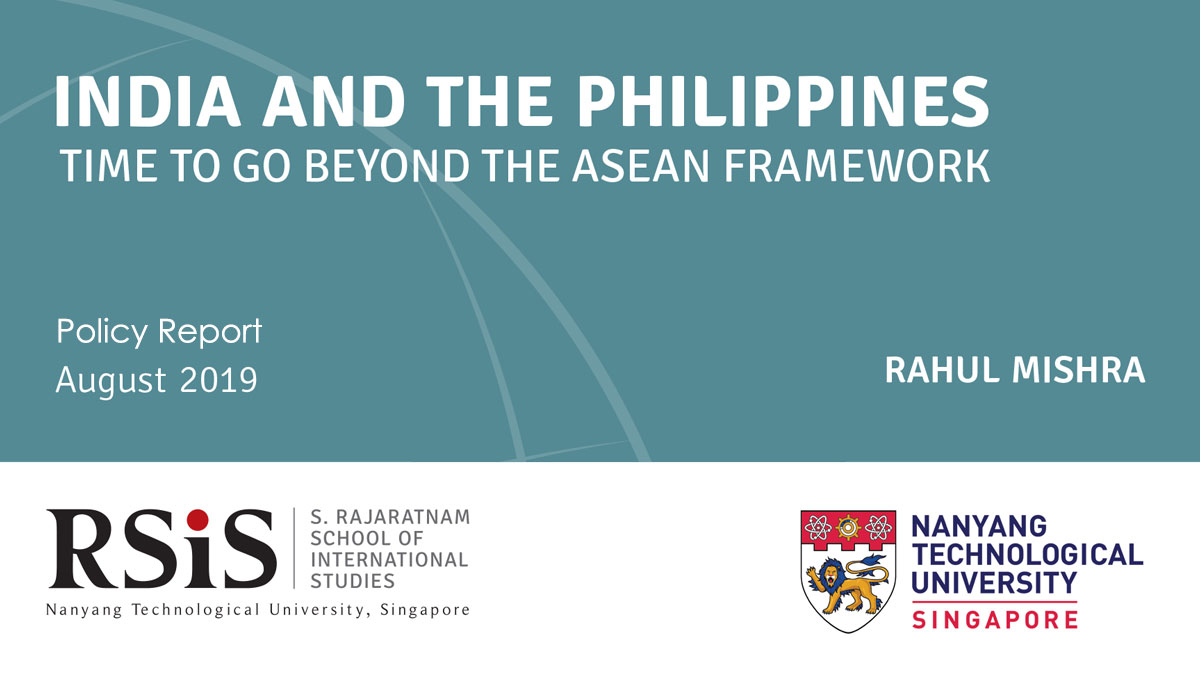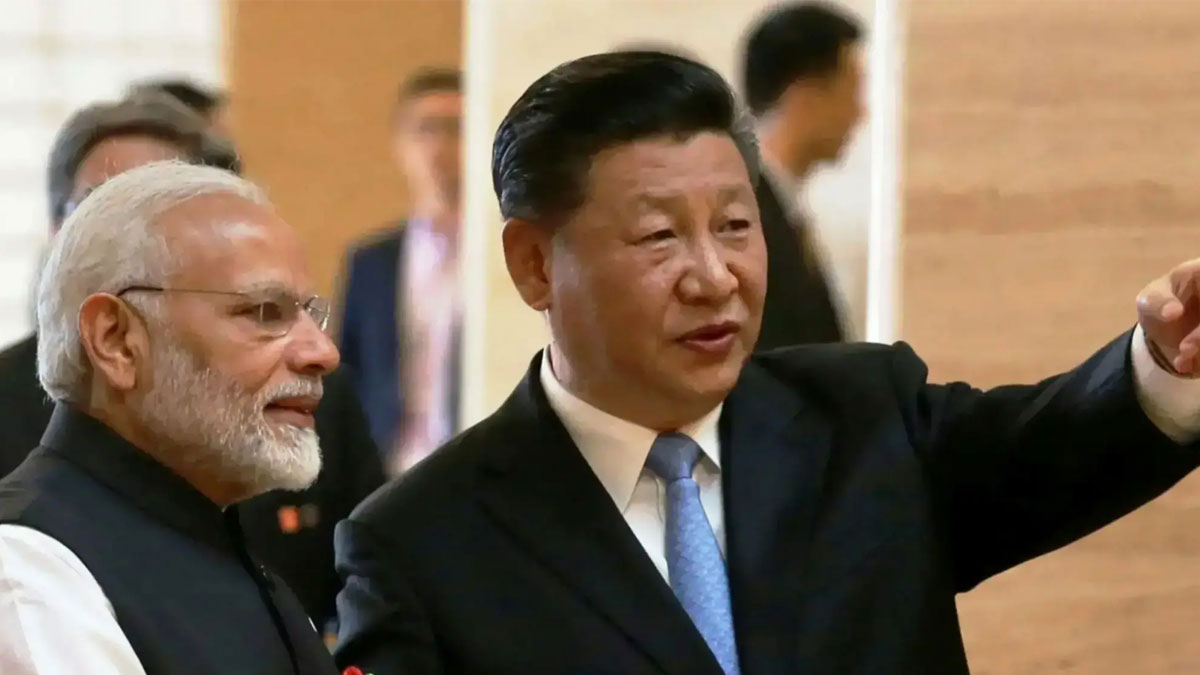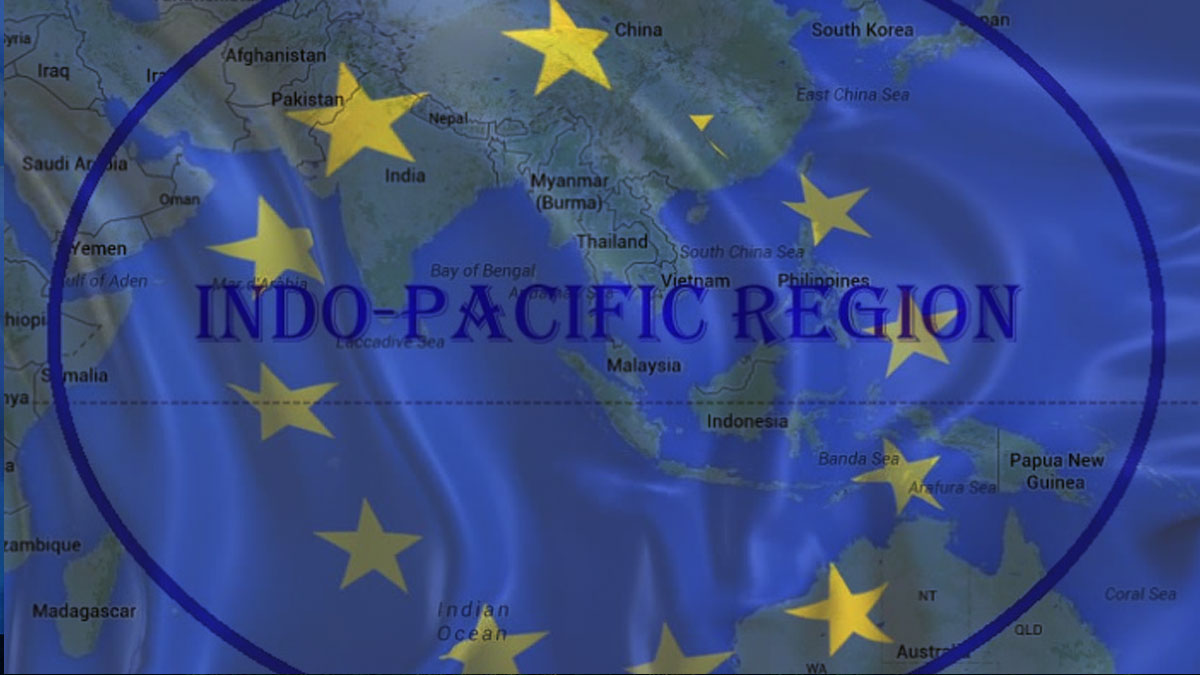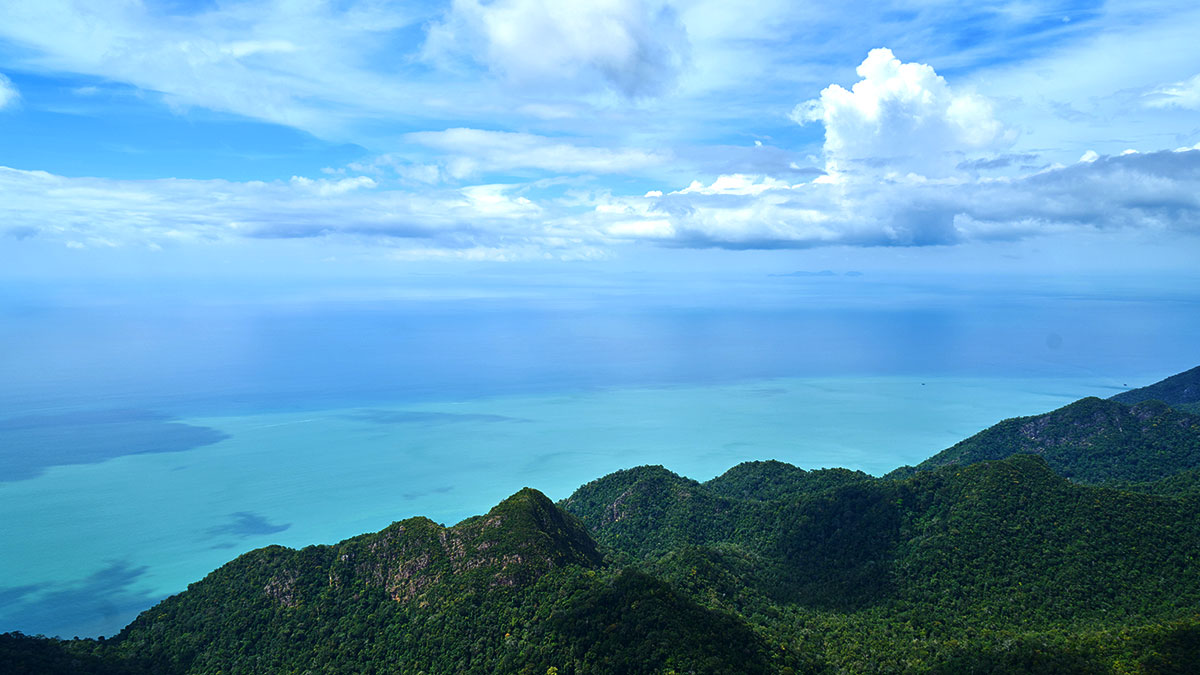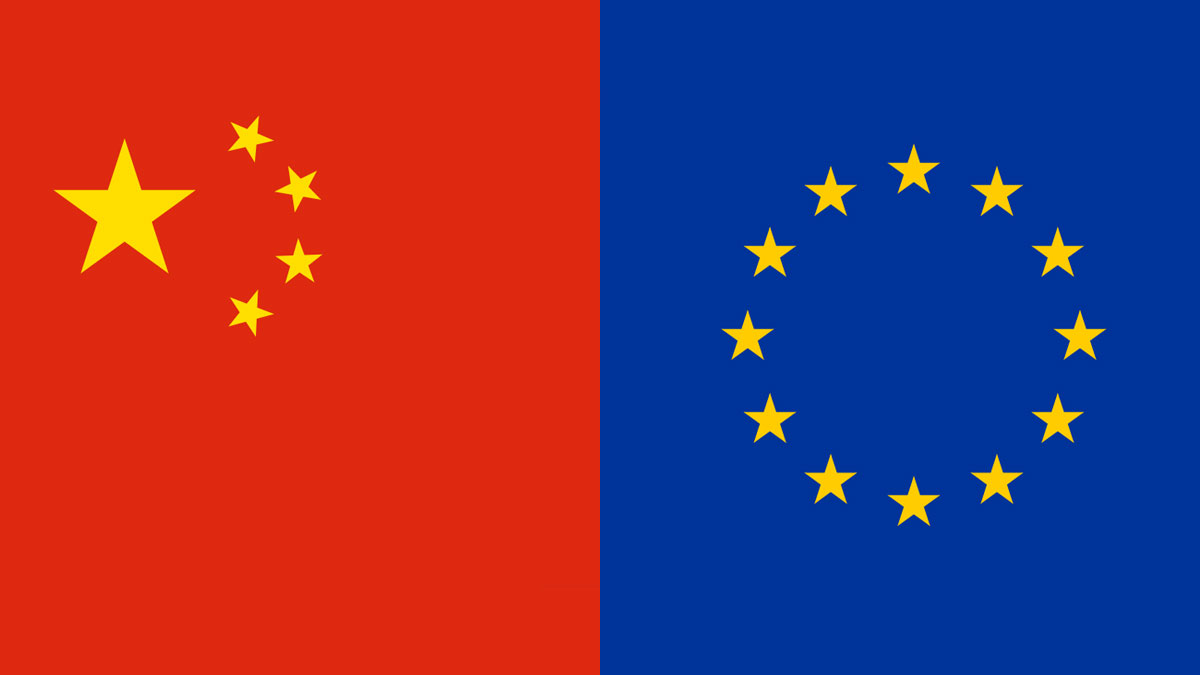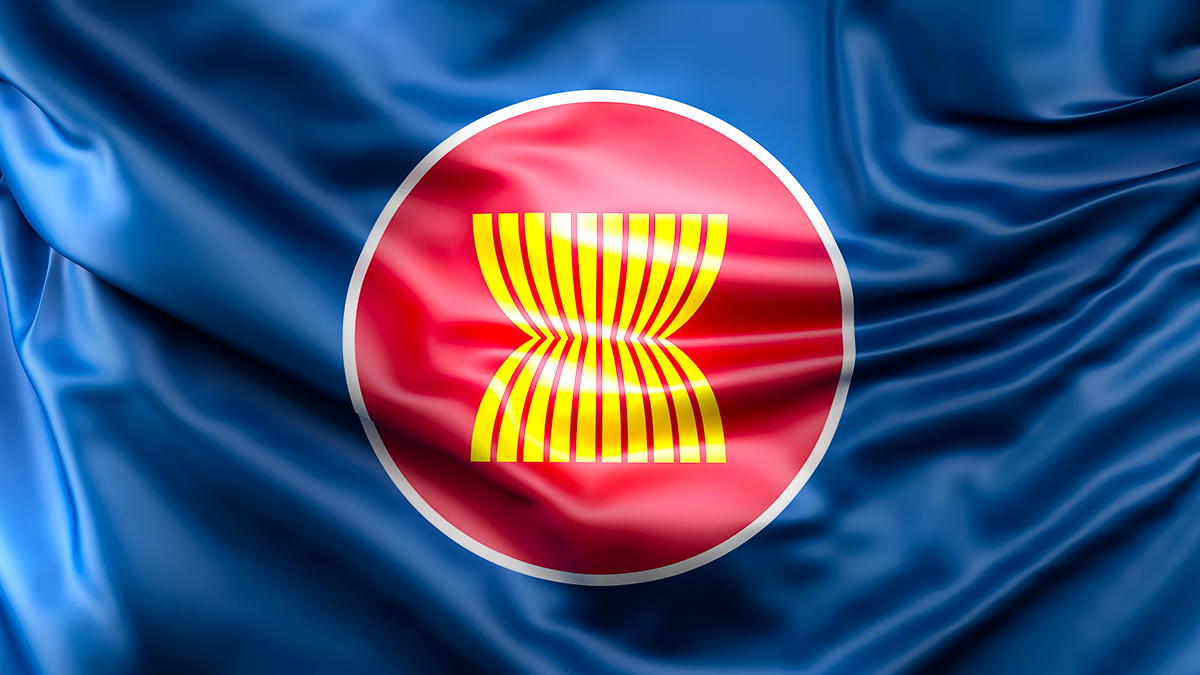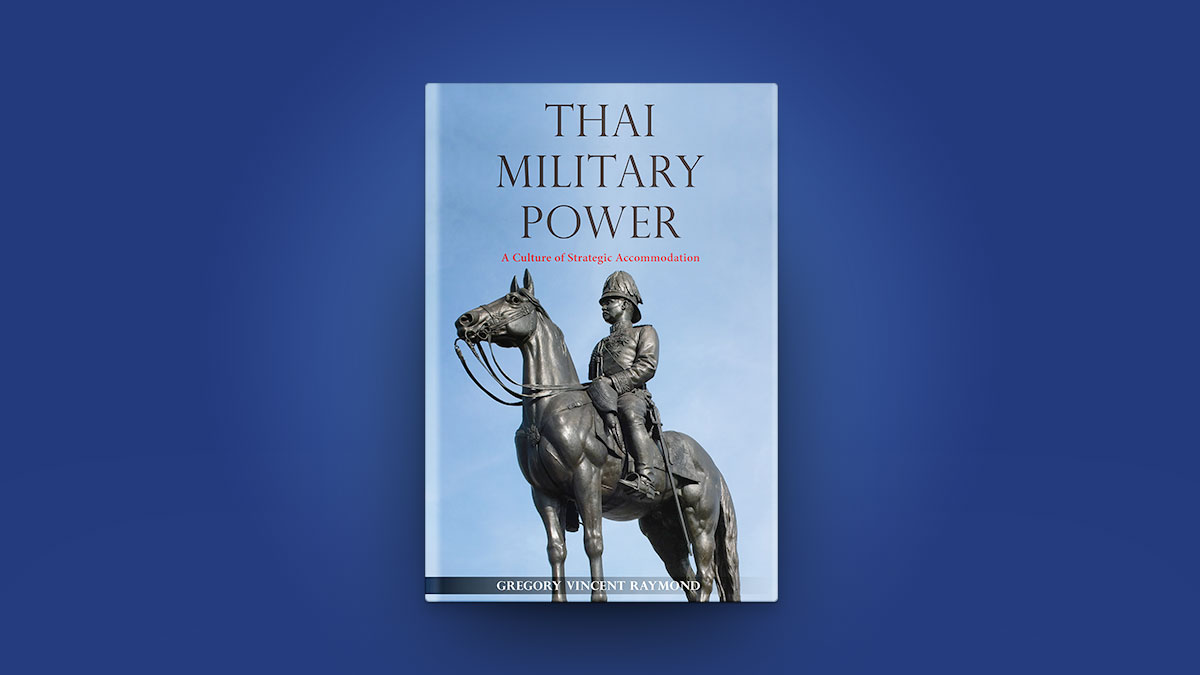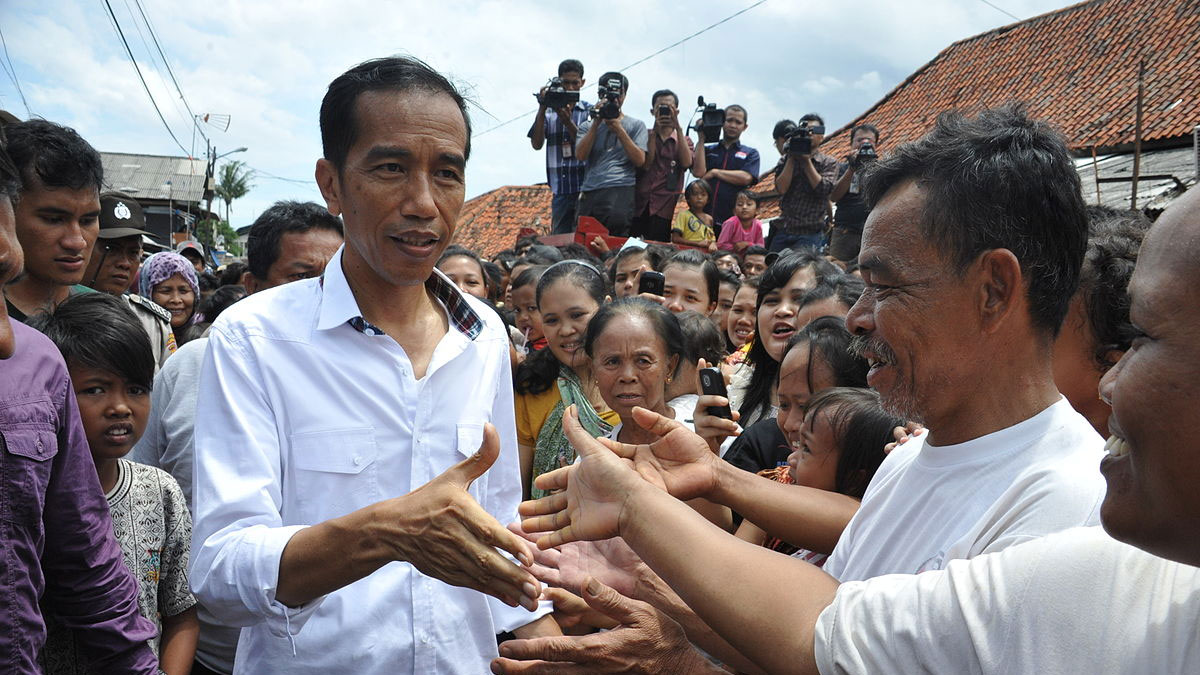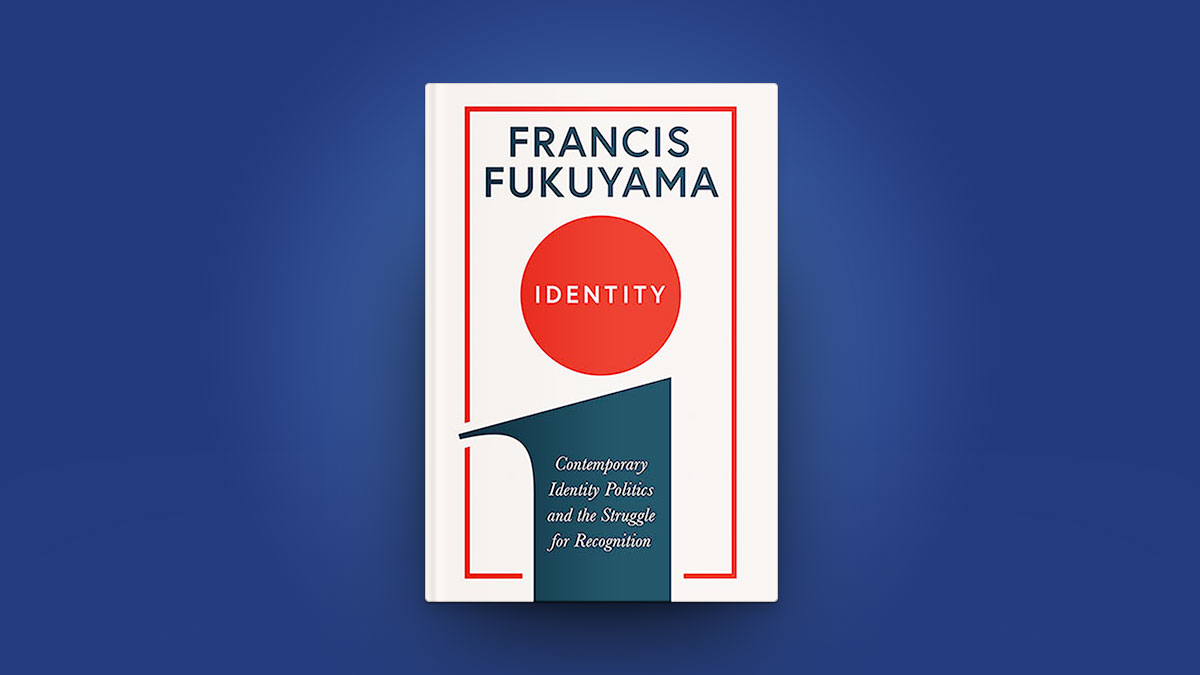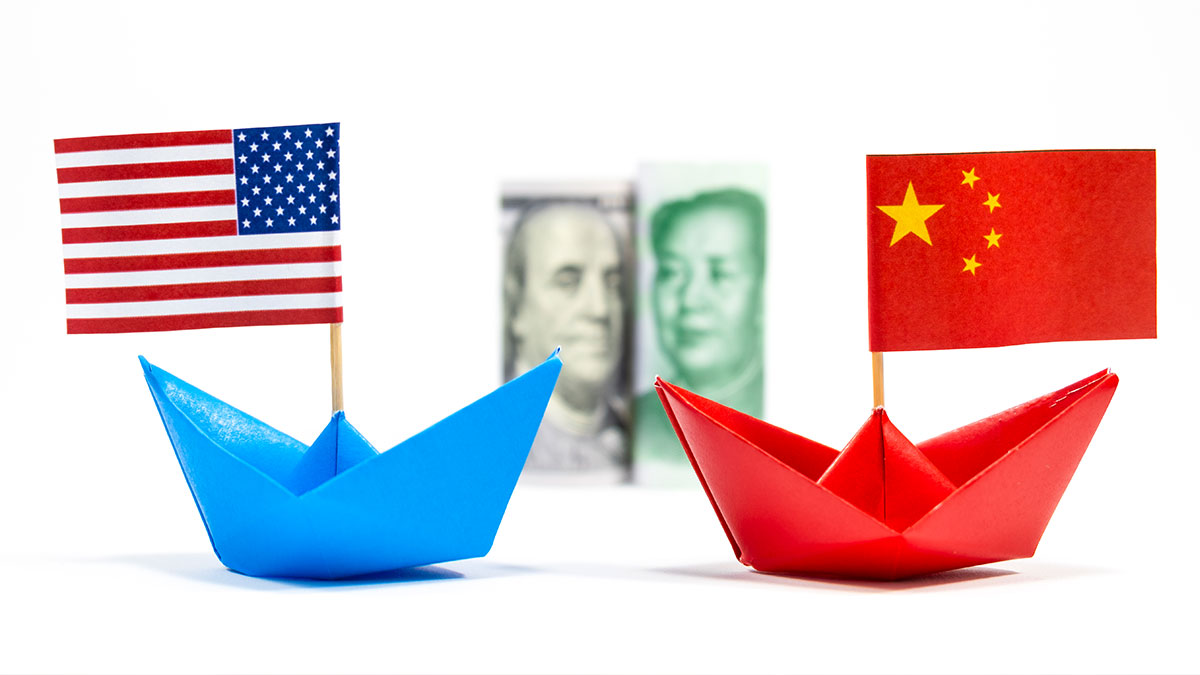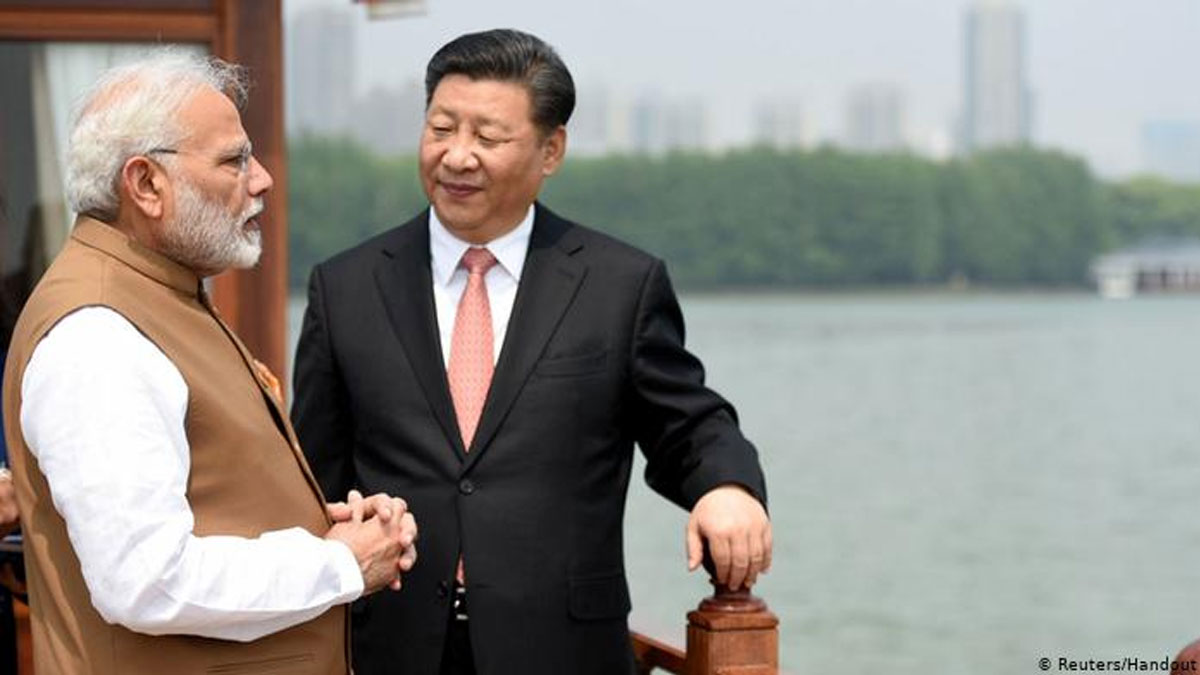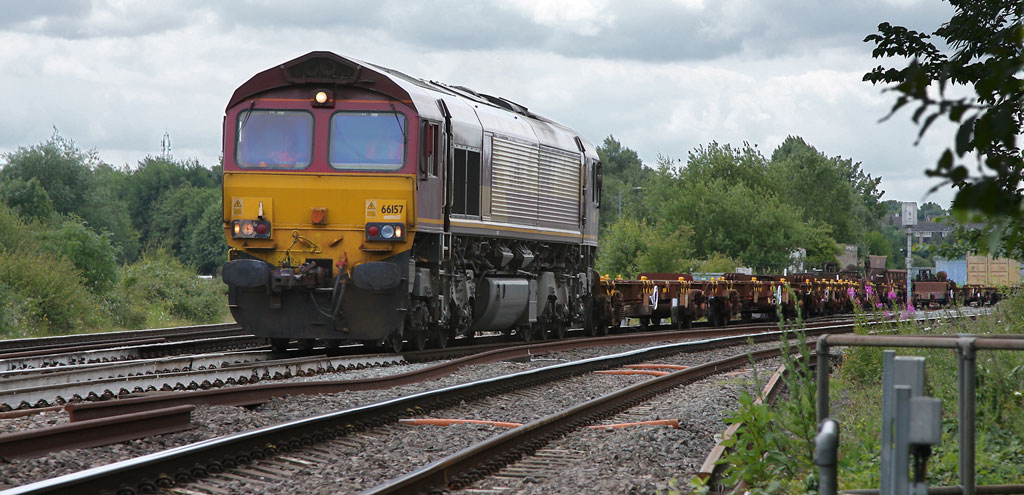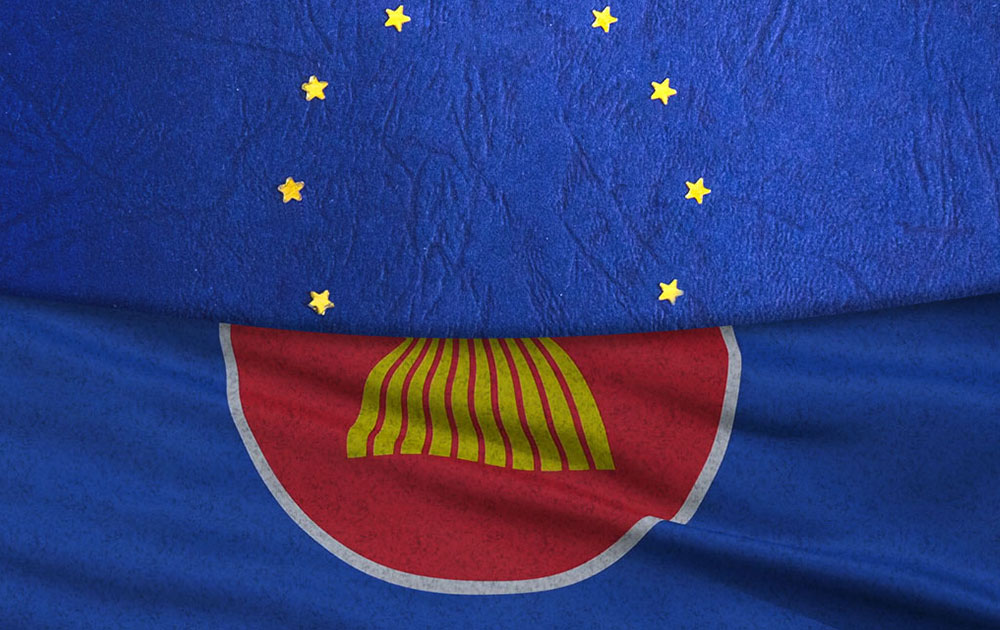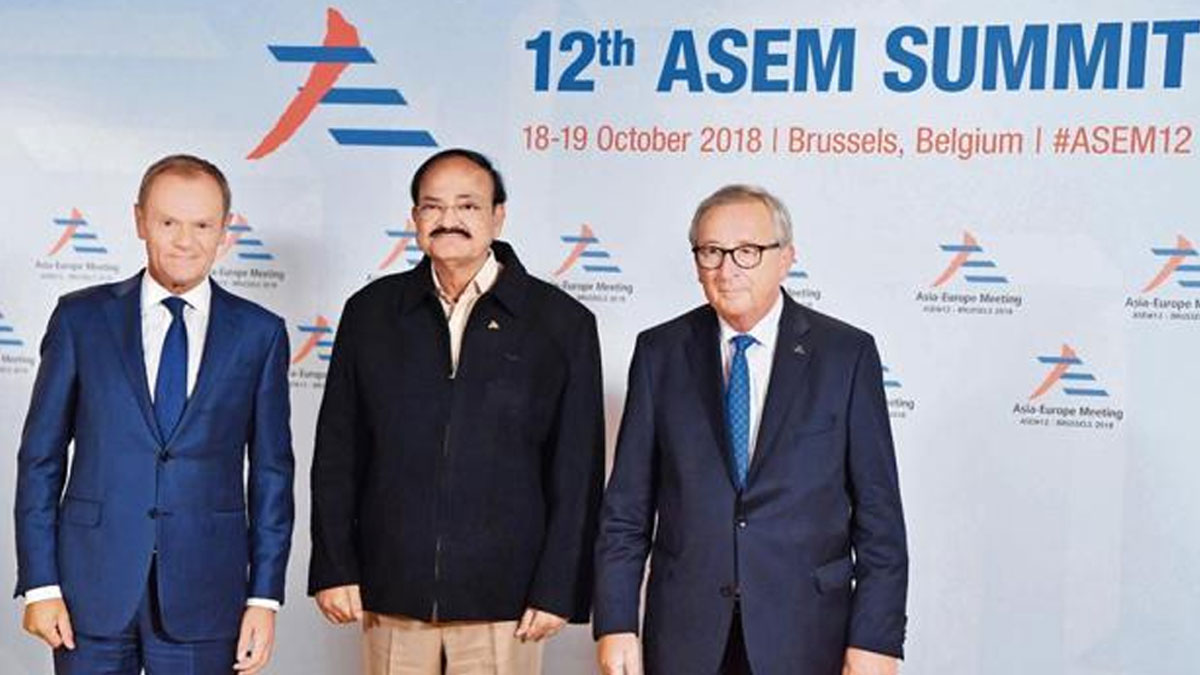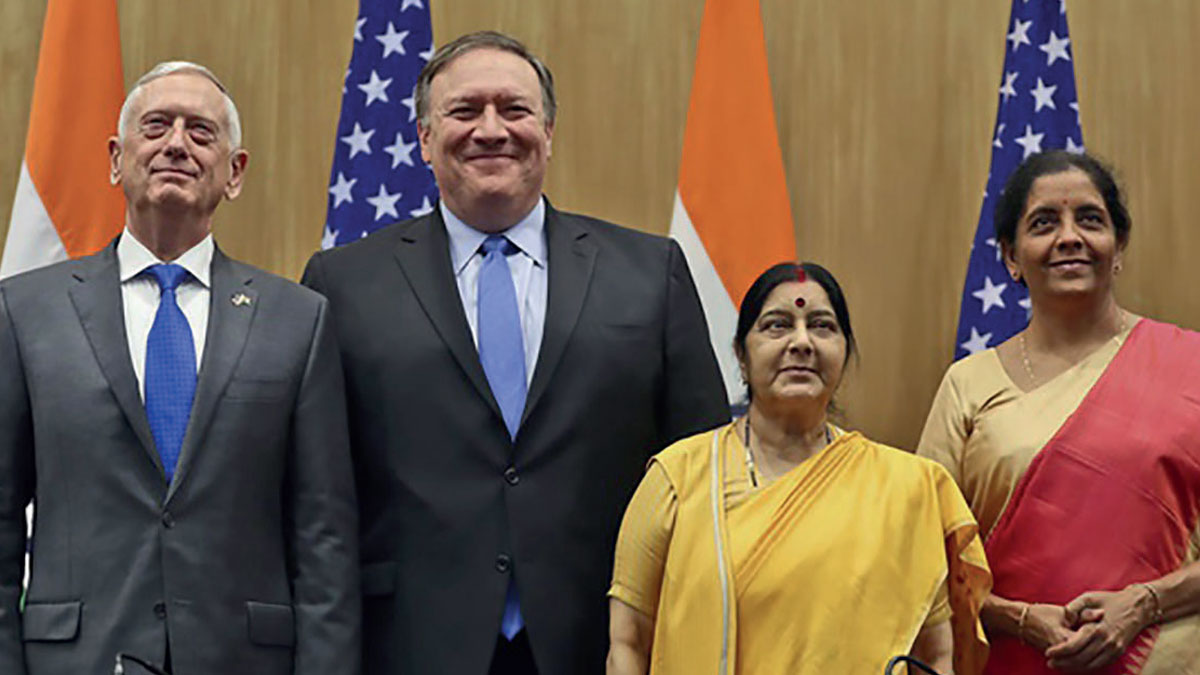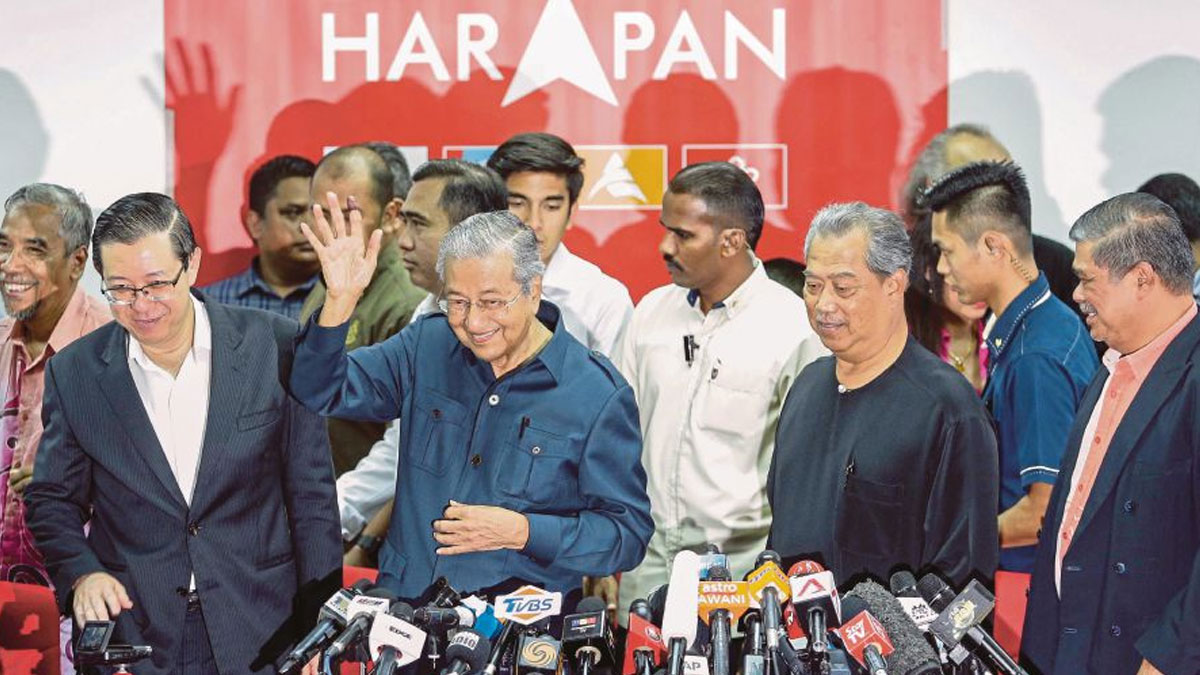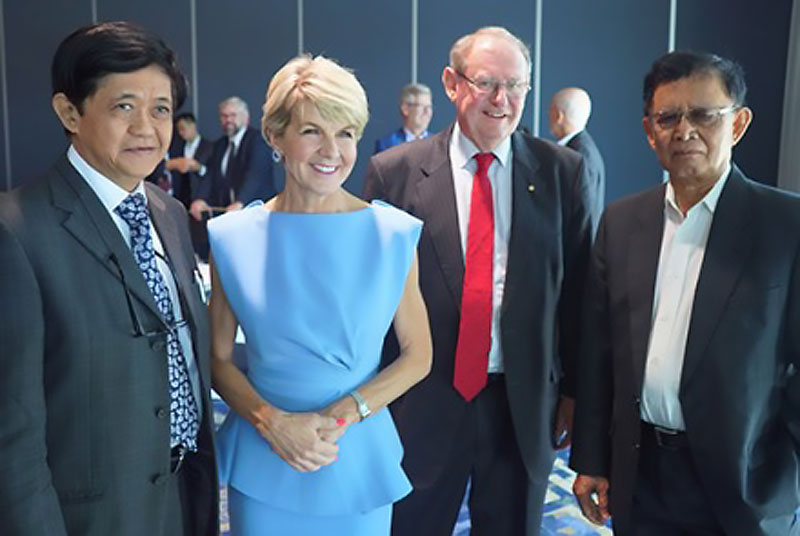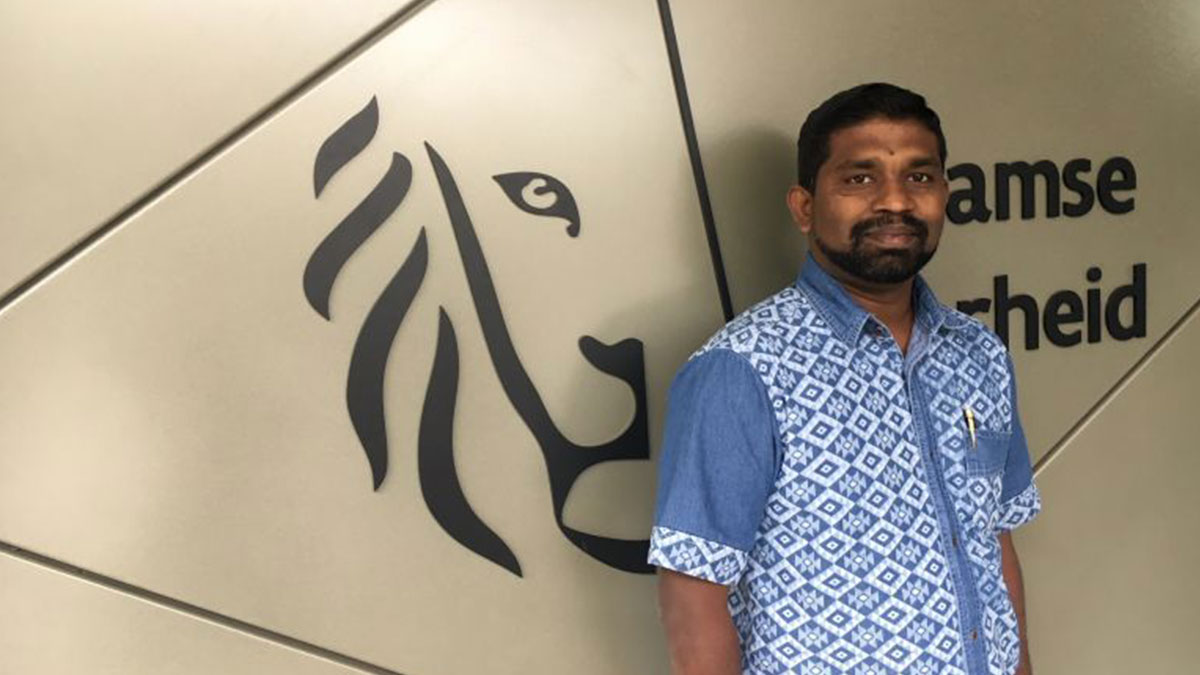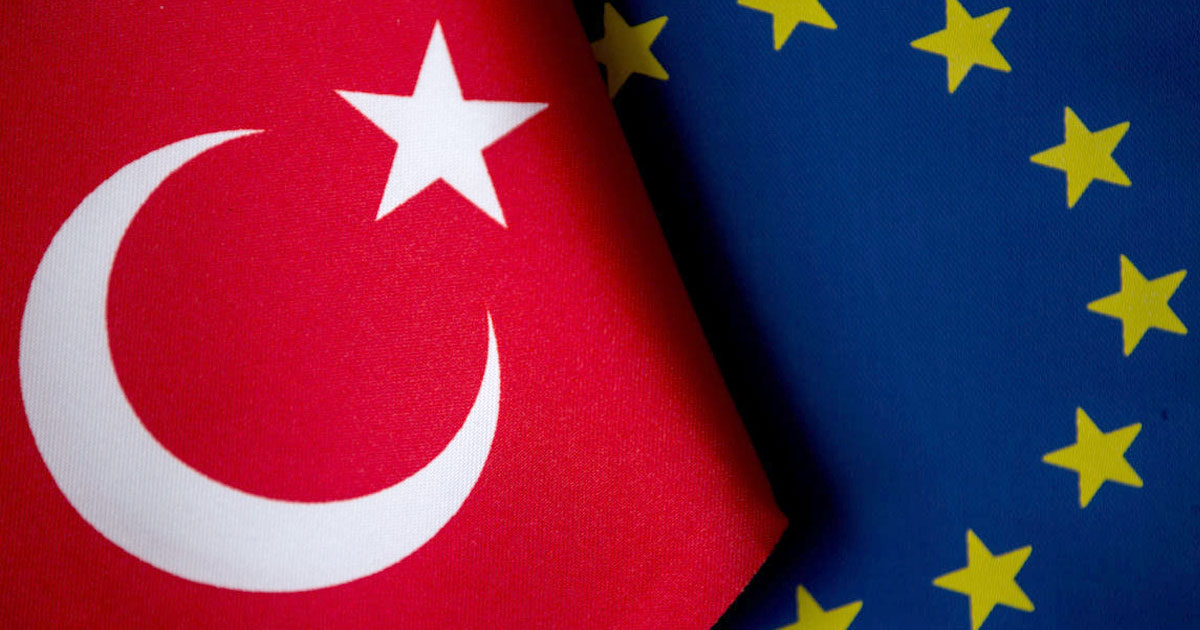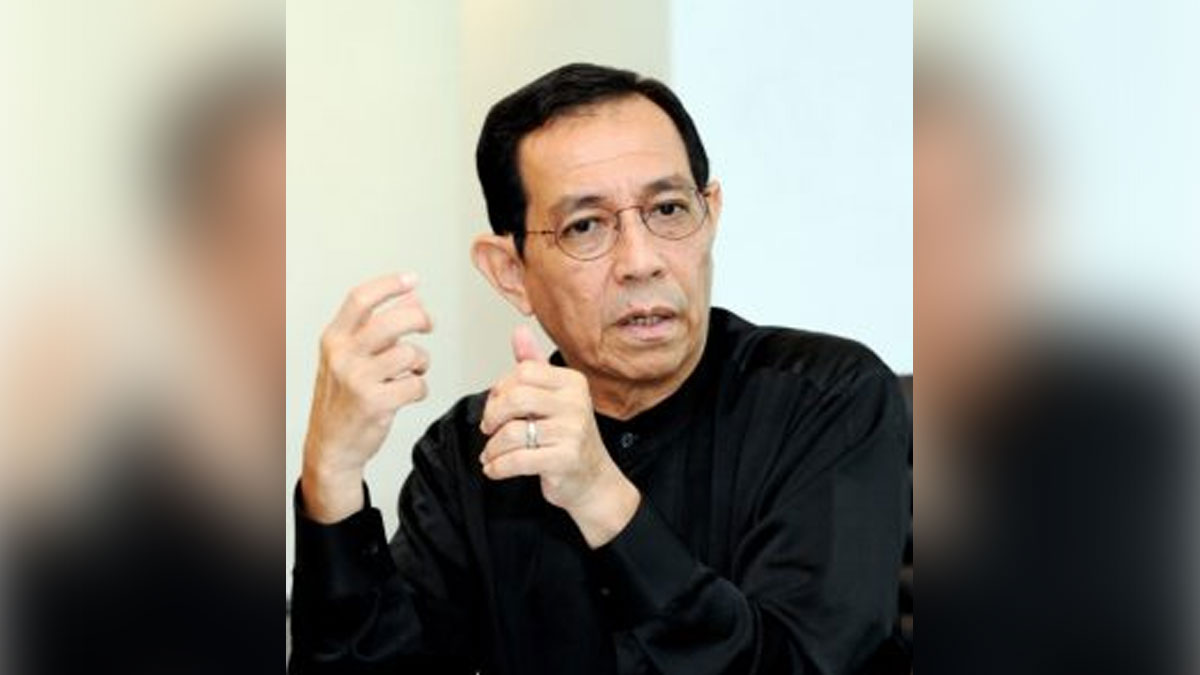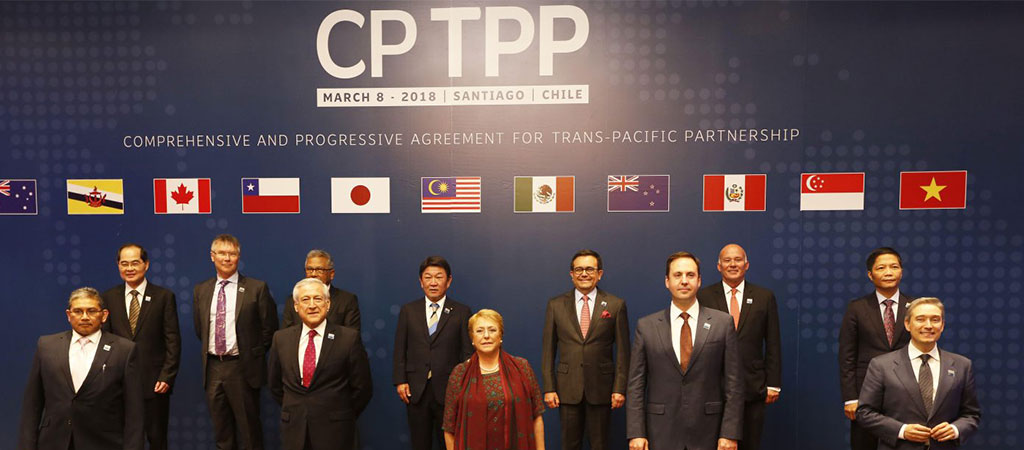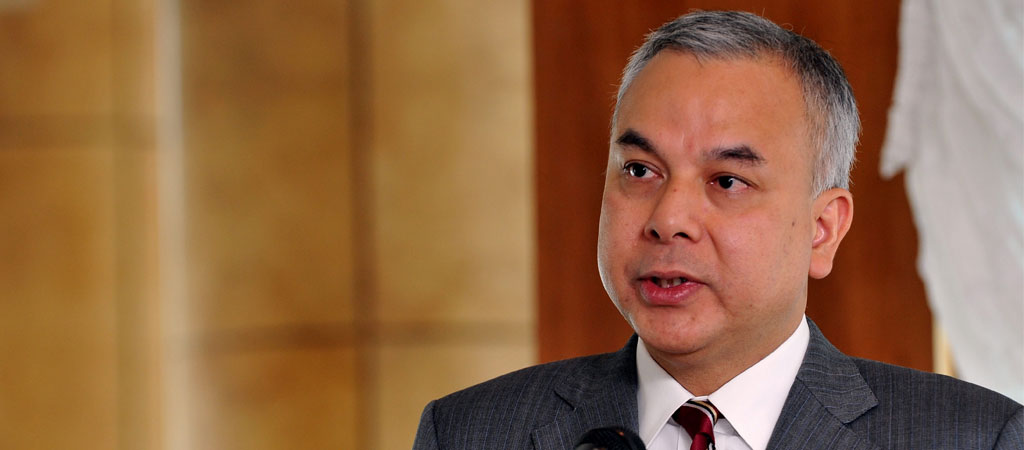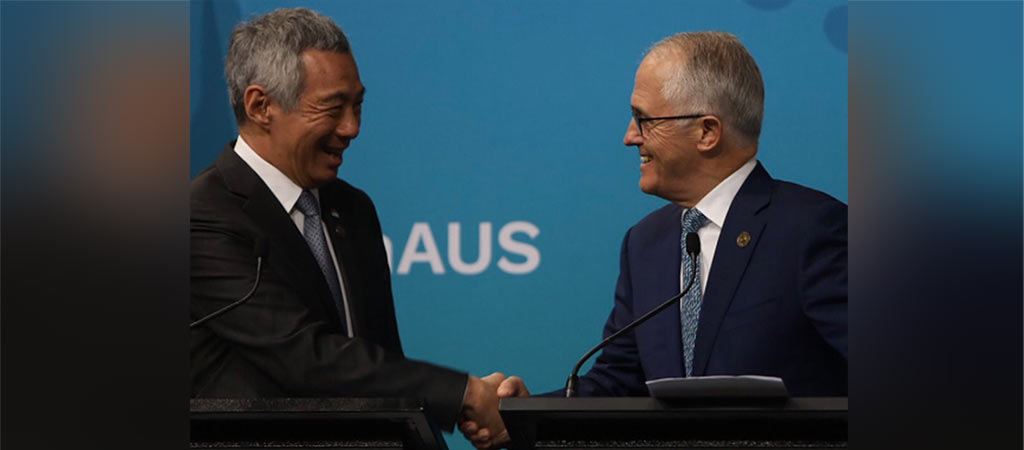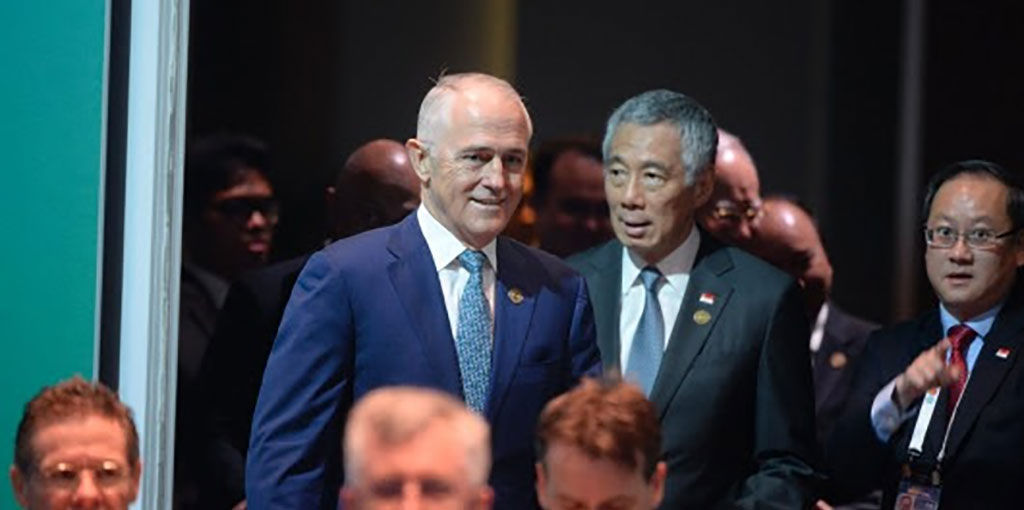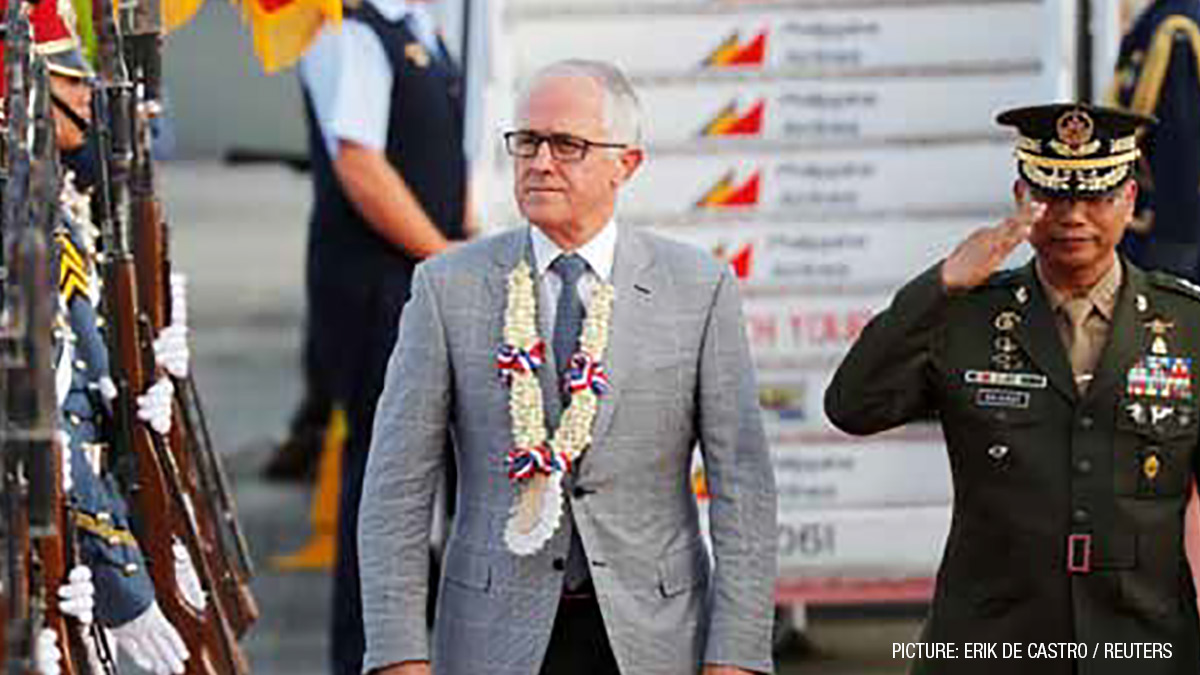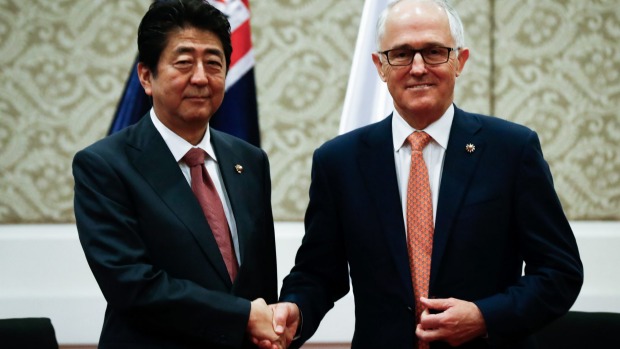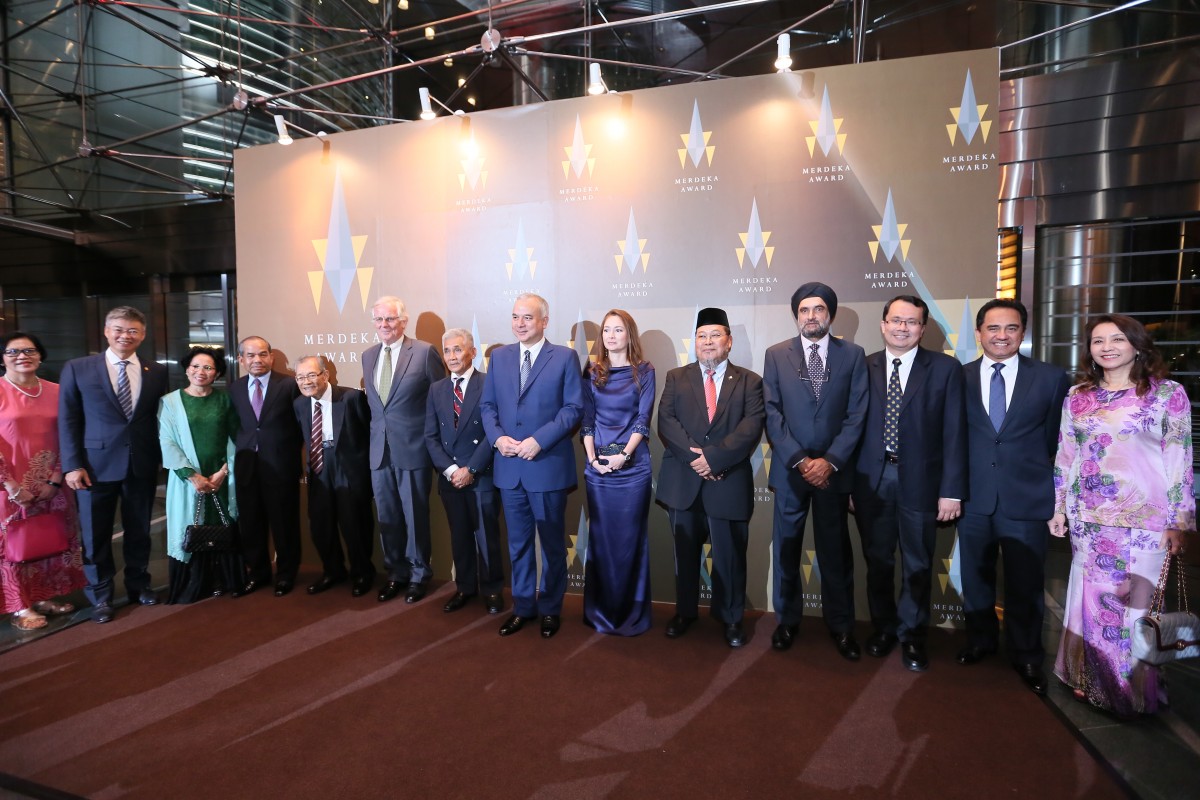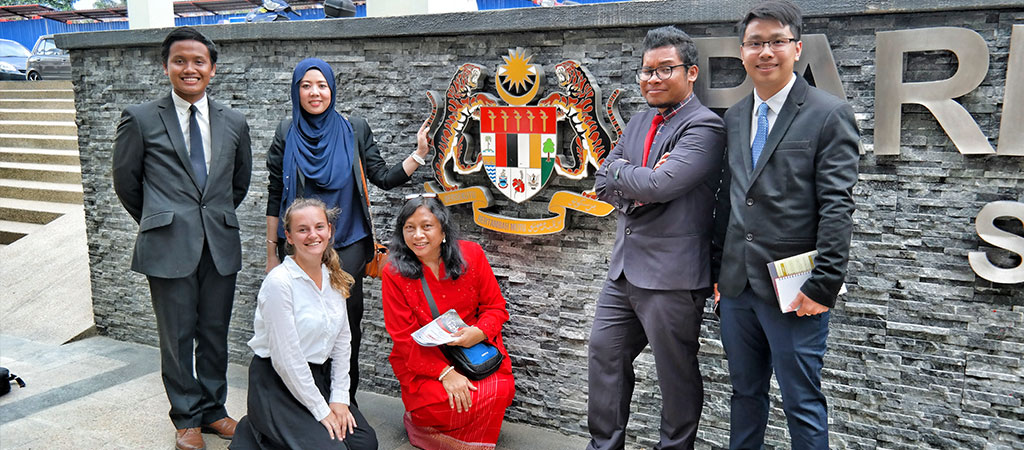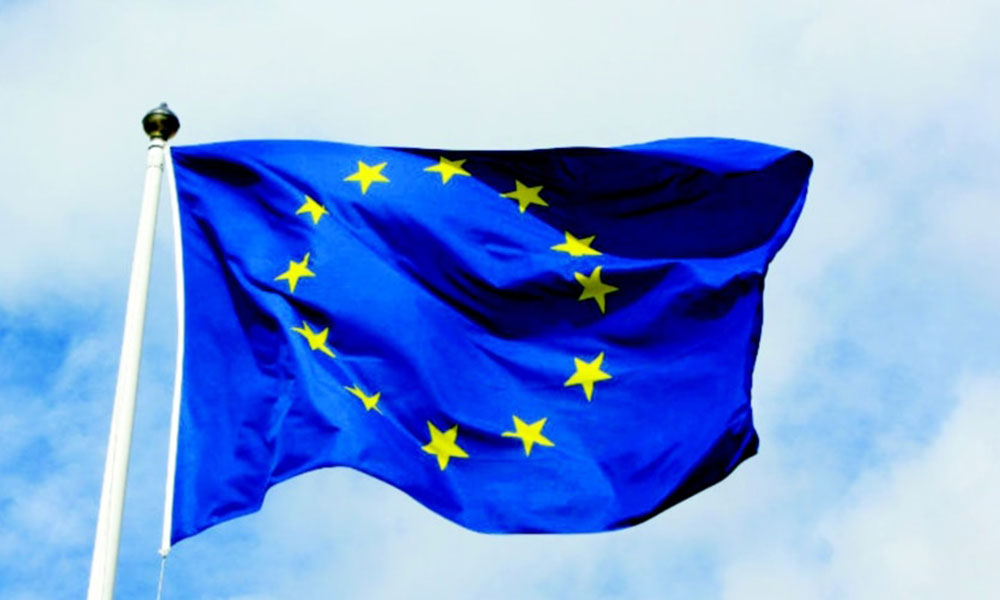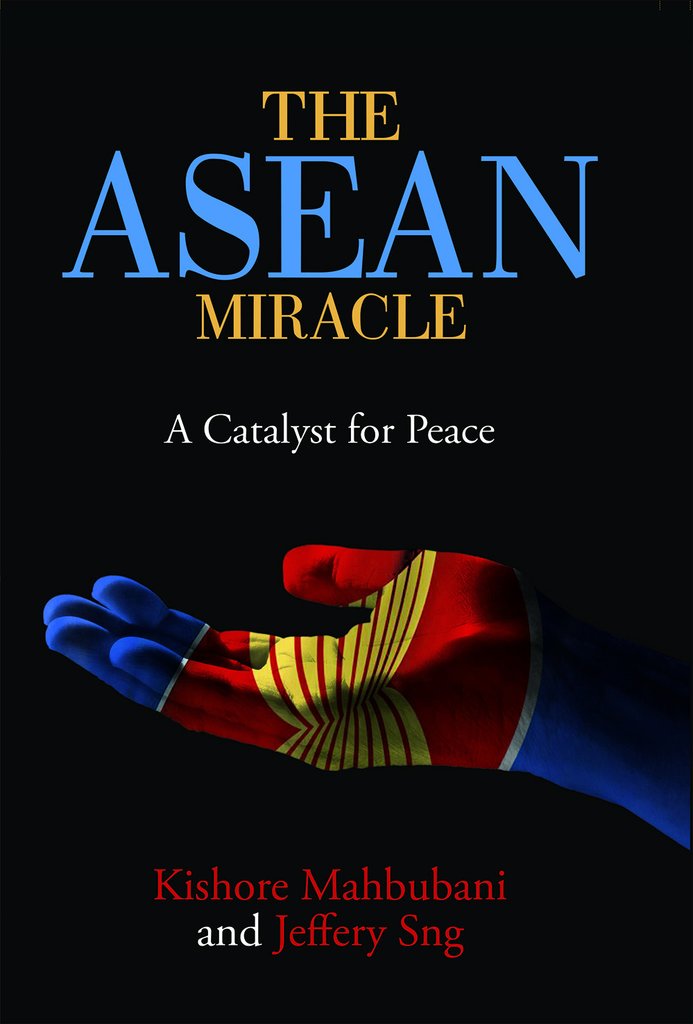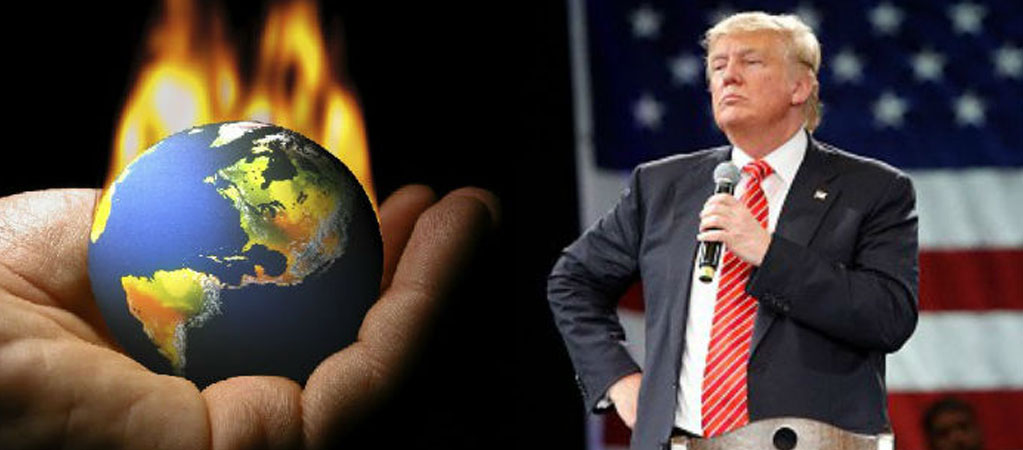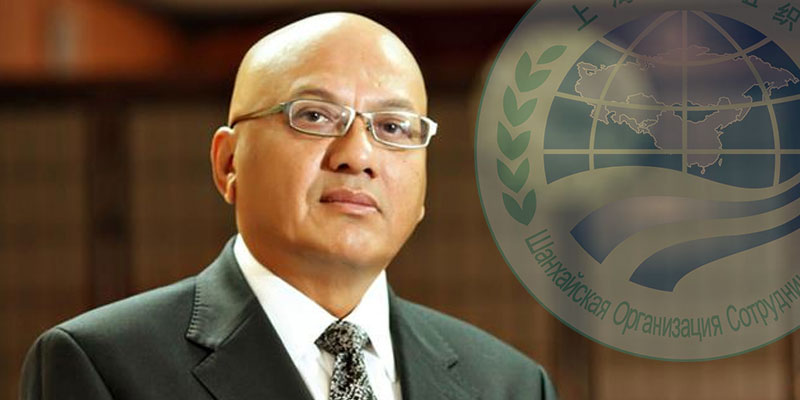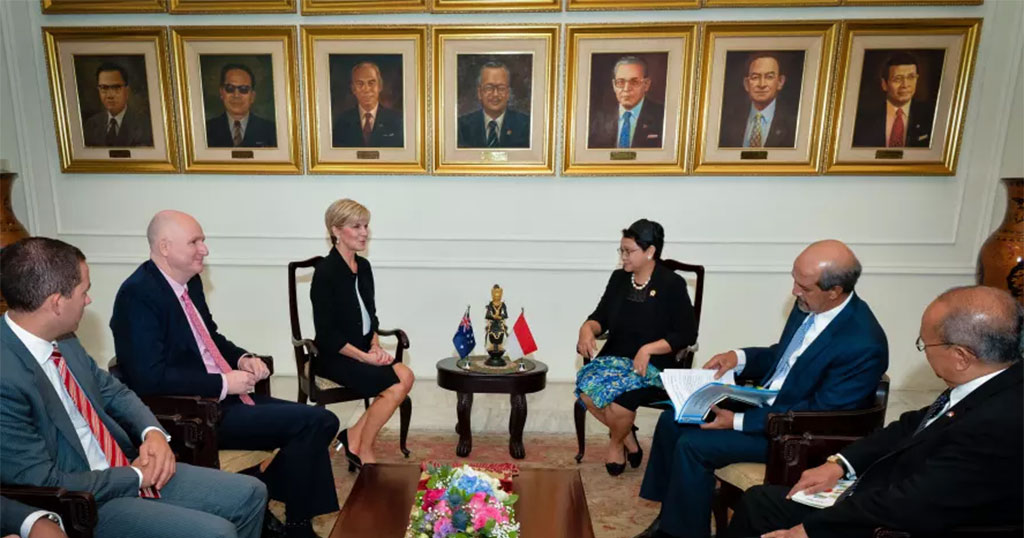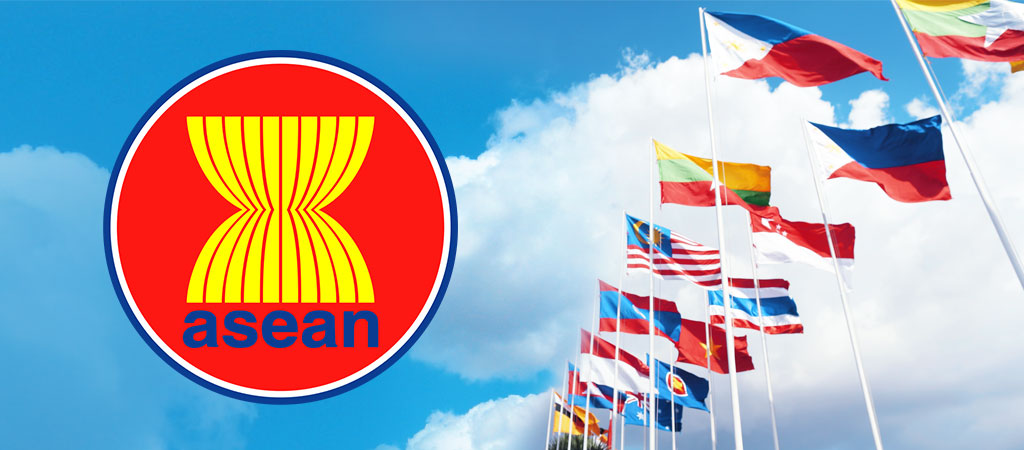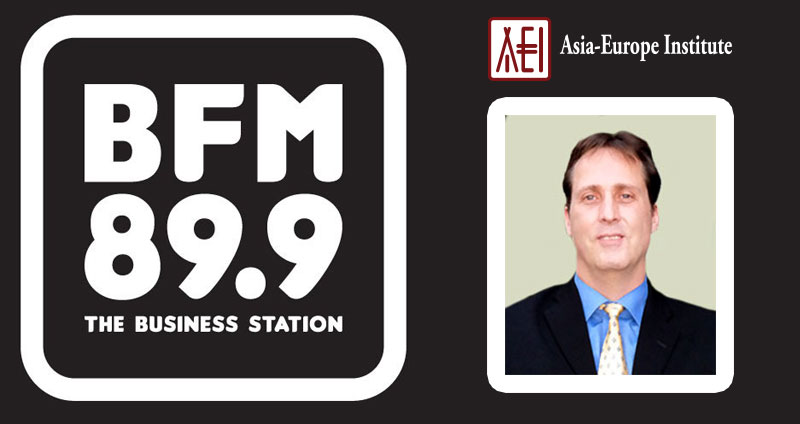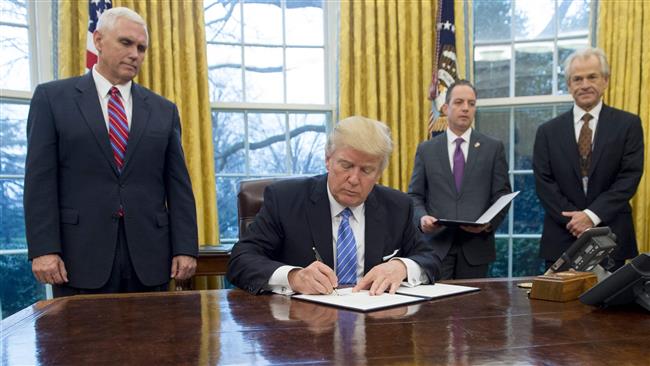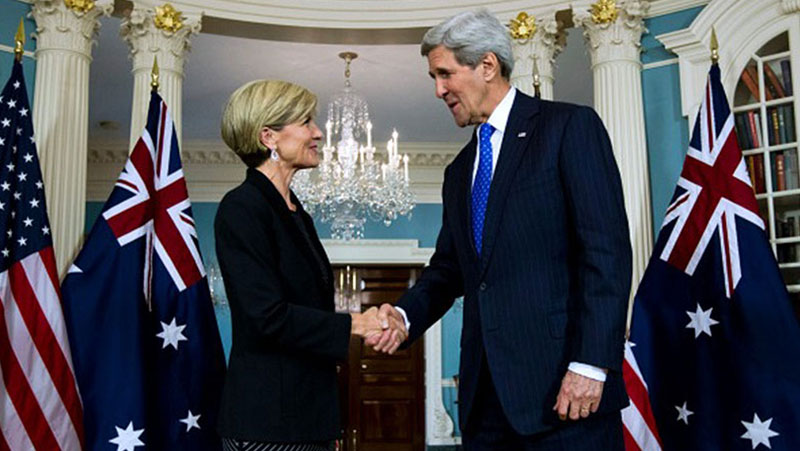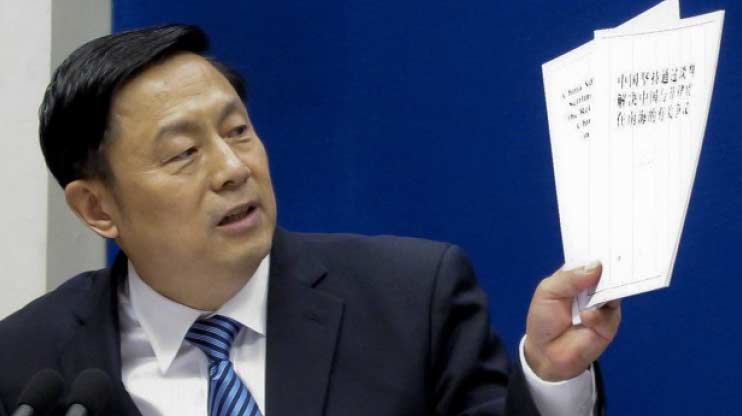Pengecualian Junta Myanmar oleh ASEAN, satu langkah ditunggu-tunggu?
Ketika ASEAN bersiap sedia untuk mengadakan Sidang Kemuncak ASEAN ke-38 dan ke-39 pada akhir bulan ini, tiada siapa menduga blok serantau itu akan mengambil langkah berani dengan mengecualikan junta Myanmar daripada sidang kemuncak itu. Dr. Rahul Mishra, Pensyarah Kanan Institut Asia-Eropah (AEI) Universiti Malaya, memberikan pendapat beliau berkenaan hal ini dalam wawancara bersama Bernama.
More Discord than Accord?
by Rahul Mishra and Peter Brian M. Wang
AUKUS, The EU, and the Indo-Pacific Regional Security Architectures
Malaysia and the Indo-Pacific: Navigating the Ocean of Strategic Uncertainties
by Rahul Mishra and Peter Brian M. Wang
Many nations are embracing the strategic construct of the “Indo-Pacific,” but Malaysia is yet to clarify its position on the concept.
Chinese face hurdles in Pakistan
by Rahul Mishra
Even if the Taliban considers the economic benefits and participates in China-Pakistan projects, that would only contribute to further loss of credibility for the CPEC and the BRI.
AUKUS: ASEAN must get proactive in averting tensions - Analysts
by BERNAMA
Dr. Rahul Mishra shared his thoughts with BERNAMA on AUKUS and what it means for ASEAN, the EU, and others.
Indo-Pacific Oceans’ Initiative: Providing Institutional Framework to the Indo-Pacific Region
by Rahul Mishra
Since its inception, the Indo-Pacific construct debates have revolved around the two most critical issues. With the first issue of geographical scope getting more or less settled, the second and equally important issue of creating enabling institutional frameworks is assuming the centre stage in Indo-Pacific debates.
U.S. Reaching Out to Southeast Asia
by Rahul Mishra
With a flurry of high-level official visits, the Biden administration has been striving to show its commitment to Southeast Asia and the wider Indo-Pacific region.
India@75: The Significance of India-Malaysia Ties
by Rahul Mishra
As India has started the Azadi ka Amrit Mahotsav to celebrate its 75th anniversary of Independence, here's a broad overview of India-Malaysia ties.
The Five Power Defence Arrangements: Time for the ‘Quiet Achiever’ to Emerge
by Rahul Mishra & Peter Brian M. Wang
The defence chiefs of the members of the Five Power Defence Arrangements (FPDA) had a crucial dialogue in June. The five states—Australia, Malaysia, New Zealand, Singapore and the United Kingdom—reaffirmed their commitment to collaborate in conventional and non-conventional security domains to keep pace with the evolving challenges in the region.
The EU’s Indo-Pacific Strategy is Good News for ASEAN
by Rahul Mishra
A few short years after the US embraced the term, the Indo-Pacific is now an irreversible regional construct, as recent actions by the EU indicate. Indeed, the EU’s adoption of the term may represent a significant step forward in promoting the values that underpin the free and open Indo-Pacific order.
Japan playing wider regional role
by Rahul Mishra
Japan last month released its annual defense white paper with the aim of presenting a more confident and firm strategic posture. Since then, its strategic outlook, particularly its concerns about Taiwan’s strategic future, has caught the attention of international media and policy circles alike.
US-China rivalries: What matters for ASEAN
by Nurliana Kamaruddin
Southeast Asian nations have learned to be wary of big powers offering promises of security in return for loyalty.
Playing catch-up: Britain’s re-engagement with Southeast Asia
by Rahul Mishra
UK Foreign Secretary manages a mid-pandemic whistle-stop tour of Asian nations in a bid to promote “Global Britain”.
India must embrace Biden's B3W initiative
by Rahul Mishra
Joe Biden's B3W proposal aims to bring democracies together. India should come up with its own plans to contribute to the initiative, states Rahul Mishra.
Keeping Strategic Anxieties at Bay: Growing Japan-Vietnam Bonhomie
by Rahul Mishra
Japan has made crucial moves in recent years, particularly in its relations with Vietnam, but without much hype.
India's Doctrinal Modifications: Counterforce Temptations in South Asia
by Iftikhar Ali & Jatswan S Sidhu
This paper assists in understanding contesting technological capabilities and doctrinal modification between India and Pakistan that are drifting South Asia towards instability, leaving the nuclear deterrence in a dark abyss.
China’s never-ending Tibet paranoia
By Rahul Mishra
Beijing has long been anxious about the popularity of the Dalai Lama, and Tibet remains a principal source of international vulnerability for the Peoples Republic of China. After the Dalai Lama relinquished political responsibilities in 2011, the position of Sikyong, considered...
China Threat Will Unify Indo-Pacific Region post-India COVID Crisis, Experts Say
Initially, America was silent for a few days before it pledged support to India, which stirred some misgivings in the Indian media and public. Rahul Mishra, a senior lecturer at the University of Malaya, described the U.S. delay as “one rough patch” that wouldn’t affect the long-term U.S.-India relationship.
East Asia Summit the right way to resolve Myanmar conundrum
By Rahul Mishra
The massive humanitarian crisis engendered by the Feb 1 coup in Myanmar has rattled the 10-member ASEAN. Over the past few weeks, ASEAN has tried hard to find a way out of the crisis. To deliberate upon the issue, a special summit of ASEAN is scheduled to be held on April 24 in Jakarta.
International community waiting to see tangible outcome from Saturday's ASEAN meet
The special ASEAN Leaders Meeting in Jakarta on Saturday has taken centre stage with the international community waiting to see if the 10-member regional grouping can emerge with a tangible outcome for the crisis in Myanmar.
Commentary: Solution to Myanmar's political crisis lies beyond Aung San Suu Kyi or the military
Myanmar’s ethnic minorities might hold the key to breaking the country’s political impasse, says Rahul Mishra.
Strengthening internationalisation of higher education through ASEM
by M. Miandy Munusamy & Azirah Hashim
Internationalisation of higher education is one of the ways nations react to globalisation. Worldwide, there is a pressing need for nations to seriously enhance the international dimension in higher education through international cooperation to stay competitive in a globalised higher education system.
India, Bangladesh can revive Bay of Bengal dynamism
The South Asian nations could script a new history of cooperation and prosperity that could serve as an example for other nations, notes Dr Rahul Mishra.
Duterte’s Perilous China Gambit
by Dr. Rahul Mishra
The mass incursion of Chinese vessels into the Philippines’ EEZ is a dramatic demonstration of the limits of the president’s policy toward China.
Why army crackdown in Myanmar is a crisis for ASEAN
by Dr. Rahul Mishra
Letting go of members that do not abide by international norms and rules is a difficult but a necessary decision that ASEAN must make
Rapporteur's Report: Denmark and the EU
by Yanitha Meena Louis
The online talk titled “Denmark and the EU” was presented by H.E. Kirsten Geelan, Ambassador of Denmark to Malaysia and was moderated by Dr. Rahul Mishra
Time for Taiwan, India to team up
by Dr. Rahul Mishra
Ten months into a border standoff in and around India’s Galwan Valley, there is still no sign of military de-escalation and rapprochement...
‘Rules-Based’ Order in the Post-Unipolar World
by Dr. Rahul Mishra
The Rules-Based Order is in need of reform, writes University of Malaya analyst Rahul Mishra. But it is first necessary to ensure the rules are grounded in the legitimacy that comes with greater inclusion.
A predictable turn in Myanmar
by Dr. Rahul Mishra
The coup has exposed the rather naïve political understanding of Aung San Suu Kyi who tried hard to make peace with the military.
Perspectives on the Rules Based Order
A series of commentaries curated by the Australian Committee of the Council for Security Cooperation in the Asia Pacific, in collaboration with Asialink at the University of Melbourne. Professor Anthony Milner, Visiting Professor at AEI, is Co-Chair of the Australian Committee, together with Ric Smith AO.
Who could move us beyond the US-China dynamic – ASEAN?
by Anthony Milner and Astanah Abdul Aziz
US-China, US-China – the commentary goes on and on. Who will be dominant? Must rising powers always go to war with established powers? Can the US assemble an Indo-Pacific alliance to balance China? Might the US agree to share primacy? These are urgent questions – but some recent Asian perspectives suggest a growing impatience with what a Japanese analyst calls these “bilateral dynamics”.
China’s Self-Inflicted Wounds in the South China Sea
by Rahul Mishra
Increased aggression from Beijing has sparked more robust responses from Washington and the regional claimant states.
Sanctions: Death by a thousand cuts
by Mohamed Jawhar Hassan
The United Nations (UN) is a marvel. Successor to the ill-fated League of Nations, its pioneers managed to bring together all the nations of the world in a single global enterprise...
Taking down BRICS
by Rahul Mishra and Raj Kumar Sharma
China’s hegemonic ambitions have subverted this grouping of solidarity of the Global South
कोरोना से निपटने में आड़े आ रहा है भारत-पाक तनाव
राहुल मिश्रा द्वारा
कोरोना महामारी का दक्षिण एशियाई देशों के संगठन सार्क और आसियान ने अलग अलग मुकाबला किया है. क्षेत्रीय गुटों में वैश्विक महामारी से लड़ने में आपसी सहयोग में भारी अंतर दिखा है. इसने सहयोग की समस्याओं को उजागर किया है.
Translate: 

ताइवान के विश्व स्वास्थ्य संगठन में शिरकत पर बवाल क्यों
राहुल मिश्रा द्वारा
विश्व स्वास्थ्य संगठन की एसेंबली में कोविड-19 और उससे जुड़े तमाम पहलुओं पर गहन चर्चा हो रही है. ये बहस ताइवान की भागीदारी पर विवाद के साए में हो रही है, इसलिए भी कि कोविड-19 पर काबू पाने में वह कामयाब रहा है.
Translate: 

कोविड-19 से चीन की बेल्ट एंड रोड परियोजना को कितना नुकसान
राहुल मिश्रा द्वारा
चीन की बेल्ट एंड रोड परियोजना का भारत शुरू से ही विरोध करता रहा है, लेकिन यह विरोध आर्थिक कम कूटनीतिक ज्यादा रहा है. अब कोरोना की वजह से बदली परिस्थितियों ने चीन की इस प्रतिष्ठा वाली परियोजना पर बड़े सवालिया निशान लगाए.
Translate: 

क्या फिर टकराव की तरफ बढ़ रहे हैं उत्तर और दक्षिण कोरिया
राहुल मिश्रा द्वारा
उत्तर कोरिया ने अचानक दक्षिण कोरिया को दुश्मन कहा और उसके साथ बातचीत के सारे रास्ते फिर से बंद कर दिए. इस फैसले से राजनयिक हल्कों में खासी उथल-पुथल और असमंजस की स्थिति है. सवाल है कि उत्तर कोरिया क्यों कर रहा है ऐसा?
Translate: 

क्या अमेरिका की निवेश की उम्मीदों पर खरा उतरेगा भारत?
राहुल मिश्रा द्वारा
कोरोना महामारी फैलने में चीन की जिम्मेदारी का सवाल गंभीरता से उठाया जा रहा है. बहुत सी कंपनियां चीन छोडकर दूसरे देशों में जाने पर भी विचार कर रही हैं. क्या भारत चीन से निकलने वाले निवेश को अपने यहां आकर्षित कर पाएगा?
Translate: 

क्या कोरोना का संकट भारत मलेशिया के रिश्तों को सुधारेगा
राहुल मिश्रा द्वारा
कोरोना संकट से जूझती दुनिया के देशों में आपसी रिश्तों के नए आयाम खुल रहे हैं. भारत मलेशिया की दोस्ती में पड़ी दरार भी संकट के इस दौर में सिमट रही है. क्या इन दोनों देशों की दोस्ती फिर परवान चढ़ेगी.
Translate: 

चीन के मुकाबले कहां कहां कमजोर पड़ता है भारत
राहुल मिश्रा द्वारा
भारत और चीन की सीमा पर फिर तनातनी है. चीन एक उभरती हुई महाशक्ति है, तो भारत की सैन्य और राजनीतिक ताकत बढ़ रही है. लेकिन कुछ चीजों में भारत खासा कमजोर दिखाई पड़ता है.
Translate: 

भारत के लिए अभी कूटनीति का रास्ता ही ठीक
राहुल मिश्रा द्वारा
भारत और चीन के बीच मई 2020 से चल रहे सीमा विवाद ने बढ़ते-बढ़ते अचानक हिंसक झड़प का रूप ले लिया है. अगर तेजी से राजनीतिक और कूटनीतिक कदम नहीं उठाए गए तो इसे युद्ध जैसी स्थिति में बदलने में ज्यादा समय नहीं लगेगा.
Translate: 

भारत और ऑस्ट्रेलिया की परवान चढ़ती दोस्ती
राहुल मिश्रा द्वारा
भारत के प्रधानमंत्री नरेंद्र मोदी और ऑस्ट्रेलिया के प्रधानमंत्री स्कॉट मोरिसन की पहली वर्चुअल शिखर वार्ता सामरिक सहयोग के नजरिए से महत्वपूर्ण है. दोनों देशों के संबंधों के इतिहास में यह बड़ा मील का पत्थर माना जाएगा.
Translate: 

The silver lining in the Covid-19 crisis for Malaysia
by Dr. Rahul Mishra
The Covid-19 pandemic hit Malaysia at a time when the country was in the midst of a political upheaval, with the government of the day changing after several unexpected political moves were made.
Europe must tread carefully as US-China links deteriorate
by Dr. Paul Gillespie
European powers have a deep interest in avoiding being caught up and marginalised in the slipstream of a new cold war between the United States and China.
Restoring Trust in Global Governance
by Tan Sri Hasmy Agam & Prof. Anis H. Bajrektarevic
Further to the points of view the undersigned authors expressed nearly two months ago, it is regretted that the United Nations Security Council (UNSC) still misses to adopt the much-needed Council Resolution to address the COVID-19 (C-19) pandemic event. (The UN Security Council should urgently address Covid-19 – addendum)
Road Map of Post-Pandemic Asia May Look Different
By Greg Earl, Contributor, Australian Financial Review
Leading observers on Asia are debating whether nations in the region will consider new approaches to diplomatic and economic engagement.
A Pandemic of Modern Piracy: The Decline of Regional Order
When a crisis seems to threaten regional states unevenly, the incentive for cooperation weakens says Choi Kang, Acting President and Director in the Center for Foreign Policy and National Security at the Asan Institute for Policy Studies, South Korea. He argues that the Covid-19 pandemic has seen individual rather than collective action, and existing institutions that should have been part of a global response have been discredited.
Where to Now for Middle Powers?
Both China and the United States will emerge from the current crisis with their reputations damaged, says David Capie, Associate Professor in International Relations at Victoria University of Wellington, New Zealand. He argues that today’s great power struggles are making it harder than ever for small and middle powers to navigate.
Time for A New Regional Order: The Failure of American and Chinese Leadership
US-China relations are now failing ‘the rest of Asia’ says Tsutomu Kikuchi, adjunct senior fellow at the Japan Institute of International Affairs. He argues that we can’t narrow the range of policy choices available to us as we push for a rules-based order.
Divide, Cook and Consume
The COVID-19 phenomenon has accelerated degloblisation, writes Victor Sumsky, Director of the ASEAN Centre at Moscow State Institute of International Relations. Instead of preaching inclusiveness in the framework of economic cooperation in the Asia Pacific, the US has switched to the ‘free-and-open’ Indo-Pacific doctrine, aimed at containing China.
Why International Institutions Matter: (And How They Are Letting Us Down)
Like the United States, Indonesia’s response to the pandemic has been lax, says Jusuf Wanandi, former Secretary of the Indonesian Supreme Advisory Council. Moreover, he argues regional cooperation is lacking – and the prospects for renewal are not strong.
Chinese Steel Investments in ASEAN
by Tham Siew Yean and Yeoh Wee Jin | ISEAS Perspective Issue: 2020 No.50
For iron and steel, China has identified Southeast Asia as the market with huge potential. The region’s high demand for infrastructure such as MRT lines, highways, bridges, roads, flyovers, dams and power plants match BRI aims, and fuel the demand for steel.
COVID-19: An Opportunity to drive ASEAN Institutional Reform
China is channeling aid to Myanmar, but the virus crisis is a chance for existing multilateral bodies within the Asia Pacific to reset and reshape the foreign policy environment, says Aung Zin Phyo Thein from the Myanmar Institute of Strategic and International Studies.
Strategic and foreign policy implications of COVID-19
A ‘self-help’ state is back, and nationalism, populism, xenophobia, trade, and territorial disputes are on the rise, writes Dang Cam Tu, Deputy Director-General at the Institute for Foreign Policy and Strategic Studies, Diplomatic Academy of Vietnam.
The International Order After COVID-19
COVID-19 has proven the weakness of ASEAN-led mechanisms, so it’s now time to rebuild a regional security architecture that can contain the more extreme effects of the growing US-China rivalry, writes Herman Kraft, Chair of the Department of Political Science at the University of the Philippines.
No Time for ASEAN Members to Self-Isolate
Each ASEAN member state has acted individually rather than collectively, writes Pou Sothirak, Head of the Cambodian Institute for Cooperation and Peace. Knowing that this virus crosses national borders, a regional response makes a lot more sense.
Why The Unemployment Problem Will Remain Unsolved
Mohd Nazari Ismail
The problem of unemployment is becoming more serious in many countries. The International Labor Organization (ILO) predicts 1.25 billion workers worldwide will lose their jobs due to the Covid-19 pandemic, accounting for 38 per cent of the world’s workforce. In the United States, since the outbreak of Covid-19, 33 million people have been made unemployed.
The Virus and Regional Order - Perspectives from Asia and beyond
A series of commentaries curated by the Australian Committee of the Council for Security Cooperation in the Asia Pacific, in collaboration with Asialink (University of Melbourne)
ASEAN Rises as the West Falls
In contrast to the EU, the virus crisis might actually benefit ASEAN in the long run, says Nurliana Kamaruddin, Senior Lecturer at the Asia-Europe Institute (AEI), University of Malaya
Re-writing multilateralism post-COVID
A new ‘smaller’ multilateralism could emerge from this crisis, says Indrani Bagchi, senior diplomatic editor with The Times of India, Indrani Bagchi.
Cooperate or capitulate
A dangerous ‘winner takes all’ crisis management approach is emerging from the virus, says Peking University’s Zha Daojiong.
US-China ties going backwards
The virus crisis is eroding globalisation, and it’s hard to see the US-China relationship going any way but backwards, says Ralph Cossa of Pacific Forum.
Covid-19 and the Way to return to normal: Role of OIC
by Ali Goutali and Anis H. Bajrektarevic
All throughout its history, our world witnessed either abrupt, radical changes or gradual shifts and adjustments of the World Order. Such recalibrations usually followed major crises, be it devastating wars or geopolitical transformations such as the end of Cold War.
From the virus, a stronger more confident China
China will emerge from this crisis stronger and more confident, writes former senior Singapore civil servant, Peter Ho.
Asia is Uniting Around Virus Crisis
The response to COVID-19 will continue the steady decline of US influence in Asia - and China’s rise, writes Bangkok Post correspondent and senior fellow, Kavi Chongkittavorn.
Unite to Fight the Common Enemy
While the COVID-19 crisis was an opportunity for greater global unity and coordination, nationalism and a trend against multilateralism has been the reality, writes Tsinghua University's Li Li.
Deglobalisation, Authoritarianism and Asia’s Post-Virus Future
Prepare for further deglobalisation and realignment in Asia as the COVID-19 crisis continues, writes former Indian Foreign Secretary, Shyam Saran.
Migrant Workers: Wake-Up Call for Malaysia
by Johan Saravanamuttu & Khor Yu Leng
The world was awakened to Singapore’s spike of COVID-19 cases among its foreign workers recently. This should alert countries like Malaysia and Thailand, which have even larger numbers of migrant labour, of the impending crisis they have yet to face.
The missing piece in the debate about the future regional order
by Dr. Nurliana Kamaruddin & Dr. Jan Vincent Galas
While all attention has been on the US and China, countries of the region themselves might have a say.
COVID-19: UN Security Council should urgently take lead
by Tan Sri Hasmy Agam & Prof. Anis H. Bajrektarevic
While the pandemic is being dealt with by the World Health Organisation (WHO), along with other relevant United Nation Specialised Agencies (UN SA), the situation is deteriorating rapidly. In a scenario growing more and more likely, it could engulf the entire world, - and have consequences akin to those of a Third World War.
Malaysia Needs A Pandemic Production Act
By Distinguished Professor Dato' Dr Rajah Rasiah & Dr Khor Swee Kheng
While it is extremely pertinent to fight Covid-19 so as to contain, it is equally important to stem its debilitating effects on the national economies
Mahathir 2.0 & China: Hedging in a Fluid World
By Johan Saravanamuttu
Under Mahathir, in his second term as prime minister, Malaysia has crafted a foreign policy of capitalising on an ascendant China while hedging against the current environment of a more fluid world. In so doing Malaysia is maintaining strong ties with major US allies of Asia, such as Japan.
Delicate diplomacy: Australia needs to understand its neighbours better
By Prof. Anthony Milner
Scott Morrison likes using the phrase ‘delicate moment in time’ to describe the international dynamics Australia is now faced with. It’s a time to build friendships on many fronts, as the government understands well. But the task is challenging...
一周世界舆论聚焦:中国加入CPTPP条约才是更重要的
曹辛:就现实来看,中国明年肯定能加入RCEP,但真正的重点是在CPTPP(全面进步跨太平洋伙伴关系协定)的大生意。 The Financial Times (London; Chinese edition), quotes Dr. Rahul Mishra on the recently-held RCEP negotiations.
Why India pulled out of the RCEP free trade deal
by Dr. Rahul Mishra
India this week dropped out of the RCEP free trade deal.New Delhi's decision was aimed at protecting vulnerable sections of the economy as well as persuading China to grant reciprocal market access.
China Dynamic vs India-Japan presence in Sri Lanka
by Dr. Rahul Mishra
In essence, Indo-Japan partnership in Sri Lanka is a mix of presenting a counterweight to China, aspiration to provide a mutually beneficial alternative to smaller countries and reinforce ties with the neighbours, and their collective objective of keeping the rules-based order in Asia intact.
为何印度不加入RCEP
由Rahul Mishra博士撰写
印度本周宣布不加入区域全面经济伙伴关系协定(RCEP)。吉隆坡大学亚欧学院高级讲师Rahul Mishra认为,新德里的决定是为了保护印度脆弱的经济行业并且敦促中国给予互惠的市场准入。
आरसीईपी पर इनकार भारत के लिए कितने फायदे का सौदा
राहुल मिश्रा
हिंदी में कहावत है कि "प्रतिष्ठा में प्राण गंवाना मूर्खों का काम है.” नवम्बर मे बैंकॉक में असियान के सम्मेलन और साथ ही चल रही ईस्ट एशिया समिट में भारत ने आरसीईपी समझौते से अलग हो कर शायद इसी मूर्खता से खुद को बचा लिया.
Great power rivalries push South Korea and ASEAN closer
by Dr. Nurliana Kamaruddin & Aaron Denison
South Korea has spent much of its history caught in the middle of external power struggles. China, Japan, Russia and the United States have all played a hand in shaping the country’s current geopolitical reality.
Partnership Among Unequals: EU-ASEAN Relations
by Pervaiz Ali Mahesar
This article argues that the EU-ASEAN relations is a partnership among unequals and it reviews the recent public lecture by Professor Dr. Jorn Dosch held at the Asia Europe Institute on September 6, 2019.
Keynote speech by YM Raja Dato’ Nushirwan Zainal Abidin
The keynote was delivered at the Asia Europe Conference 2019 organised by Asia Europe Institute, University of Malaya on August 2nd, 2019
Re-emergence of the Old Order in Asia
by Dr. Rahul Mishra
The region welcomes all major international players so long as their approaches and actions are based on a set of transparent rules and norms.
PacNet #47 - Building Cohesive National Communities and Participatory Political Systems
by Prof. Dato' Dr. Muthiah Alagappa and Arjun Akwei
The hope of an Asian Century persists – a hope based largely on the steady economic growth in many Asian countries. To the contrary, we contend that regardless of economic gains, an Asian Century is unlikely to materialize without comprehensive political reform. These reforms need not come at the expense of economic objectives, but without political reform economic growth will falter.
EU-ASEAN Relations: Stitched together
'Citing human rights concerns, the EU is deciding whether to revoke duty-free market access for Cambodia’s exports, even as it tries to boost trade and defence ties with Southeast Asia.' — Dr. Rahul Mishra shared his views in this article published by Southeast Asia Globe.
India and the Philippines: Time to Go Beyond the ASEAN Framework
"Through its Look East policy (1992-2014) and current Act East policy enacted in 2014, India has strived to build stronger ties with Southeast Asian countries, including the Philippines. With the Philippines, however, most linkages are through ASEAN-steered mechanisms and bilateral relations are still not as strong as they should be." — RSIS (S. Rajaratnam School of International Studies, Singapore) policy report by Dr Rahul Mishra.
5G and ASEAN Connectivity
Written by Assoc. Prof. Dr. Sameer Kumar
The advancement of cellular technology from 1G to 4G yields parallel improvement in the way we communicate and go about our day-to-day lives. However, the 5th generation, or 5G, is a new creature altogether that promises to impact our lives and businesses in ways hitherto unconceived.
Why ASEAN’s Indo-Pacific outlook matters
Article by Prof. Amitav Acharya (American University)
After more than a year of deliberation, ASEAN adopted the ‘ASEAN Outlook on the Indo-Pacific’ (‘the Outlook’) on 23 June 2019. The Outlook then got an airing at the ASEAN Regional Forum meetings in Bangkok.
Europe should not blindly follow the US on China
World View: EU must judge if its interests are aligned with those of US, Japan and India — Written by Dr Paul Gillespie, one of our distinguished speakers at the Asia-Europe Conference earlier this month, published by The Irish Times.
Synthesising best of both worlds for a new Asia
Written by Assoc. Prof. Dr. Fumitaka Furuoka
In this multiplex world order, the rise of two regional giants — China and India — would overshadow inter-regional economic and security agendas in the coming decades. This may disrupt the existing harmonious but rather static inter-regional frameworks, such as the Asia-Europe Meeting (AEM).
Europe and the Indo-Pacific
The Free and Open Indo-Pacific (FOIP) is defined by a Japanese commentator as a policy "to keep the United States in, China down and ASEAN, India and Australia up" in this new geopolitical space. - Written by Dr Paul Gillespie, one of the panellists at the Asia-Europe Conference 2019 on 1st and 2nd August 2019
Deploy science now to reach sustainable growth goals
Written by Assoc.Prof. Dr. Sameer Kumar
We all want our world to be a better place. However, in efforts to eradicate poverty, hunger, disease and all forms of inequality, there is also a need to ensure that we safeguard the planet for future generations.
EU responds to China's belt and road initiative
THE European Union (EU) is already an enormous investor in Asia and the largest, in fact, in ASEAN. What are its plans to respond to China’s Belt and Road Initiative?Opinion piece in the New Straits Times by Dr Rahul Mishra, Senior Lecturer, Asia-Europe Institute, and coordinator, IMERI on Europe and China’s Belt and Road Initiative.
Malaysia's Future Force
AS geopolitics change rapidly, Malaysia faces new security and defence challenges such as the increasing importance of maritime concerns, great power rivalry between China and the United States and the emergence of non-traditional threats. - By YB Senator Liew Chin Tong, one of the keynote presenter at the Asia-Europe Conference 2019 on 1st and 2nd August 2019 at the Asia-Europe Insitute, University of Malaya.
Indo-Pacific: Friendly towards Europe and China?
WHEN the 34th ASEAN Summit was held in Thailand last month, one of the key documents released was the 'ASEAN Outlook on Indo-Pacific'. It was meant to support ASEAN’s continued effort to remain not only a key player, but also a driving force in the regional architecture. - Article by Dr. Nurliana Kamaruddin for the upcoming Asia-Europe Conference 2019 on 1st and 2nd August 2019 at the Asia-Europe Insitute, University of Malaya.
Thai Military Power Reviewed by Professor Anthony Milner
In Thai Military Power: A Culture of Strategic Accommodation, the author Greg Raymond outlines the historical context and strategic thinking behind Thailand’s diplomatic and military posture. It is an engaging and thought-provoking book which provides a much-needed analysis of an influential middle power at a time when such key players in the Asian region should be receiving more attention.
Indonesian Presidential Election: Jokowi 2.0 by Dr Rahul Mishra
Indonesia, the biggest country of the Southeast Asian region, and world’s third largest democracy which houses the highest number of Muslims in the world, has completed the process of choosing a new government. Sadly, however, the post-election scenario in the country is mired in controversies.
The Key to Our Era, in the Asian Region and Beyond?
Has Francis Fukuyama once again provided the key to making sense of the confusion going on around us, including in our own Asian (or Asia-Pacific, or Indo-Pacific) region? - Reviewed by Professor Anthony Milner
Silence on foreign policy a calm before the diplomatic storm
There are dangers as well as benefits in keeping the election campaign away from foreign policy, as the public will find out after election day. - Article by Anthony Milner
How PM Modi changed the face of Indian foreign policy
"India seems to have regained the opportunity to engage with the region more comprehensively through its Indo-Pacific policy", Dr. Rahul Mishra was quoted in this piece by DW (Deutsche Welle).
Second track on Indo-Pacific and the Quad
The vast construct of the Indo-Pacific and the limited grouping of the Quad (the US, Japan, India and Australia) share a few significant traits. However, both of them are being undermined by differences within. Dr. Rahul Mishra and Prof. Anthony Milner shared their views in this article, published on The Strategist — The Australian Strategic Policy Institute (ASPI) Blog.
ASEAN’s principled pragmatism and the evolving normative security strategy on the South China Sea
By Amira Athira Azman and Assoc. Prof. Dr. Sameer Kumar -- The overall purpose of this article is to explore the core assumptions regarding ASEAN principled-pragmatism and the evolving role of ASEAN normative security strategy underlying the concepts of ASEAN Way, neutrality, multilateralism and centrality relating to the South China Sea dispute. This article was published in AEI Insights: An International Journal of Asia-Europe Relations, Vol.4, Issue 1, pp 33-48, ISSN 2289-800X.
The EU─ASEAN Socio-Cultural Cooperation
By Assoc. Prof. Dr. Sameer Kumar -- While the other two communities of ASEAN—the ASEAN Political-Security Community (APSC) and ASEAN Economic Community (AEC), stress political and economic cooperation respectively, the ASEAN Socio-Cultural Community (ASCC) reflects on the ASEAN’s social agenda of poverty eradication and human advancement. The article was in the book EU-ASEAN Relations: Perspectives from Malaysia, Pages 27-38, published by Asia-Europe Institute and supported by Konrad-Adenauer-Stiftung, Malaysia.
Research Collaboration Ethics in Academia
By Assoc. Prof. Dr. Sameer Kumar -- Increasing specialization, changes in the institutional incentives for publication, and a host of other reasons have brought about a marked trend towards co-authored articles among researchers. These changes have impacted Science and Technology (S&T) policies worldwide.
The importance of Asia-Europe cooperation
"ASEM could play a key role in bringing Asian and European countries closer on a range of issues. This is significant at a time when the US is disrupting the gains of globalization" argues Dr. Rahul Mishra in his opinion piece published for the Mint newspaper.
Regional Security Outlook: An Indian Perspective
India’s preference for the Indo-Pacific construct and minilateral dialogues over the Quad is likely to continue argues Dr. Rahul Mishra, Senior Lecturer, AEI, in CSCAP Regional Security Outlook, 2019 - the annual flagship publication of Council for Security Cooperation in the Asia Pacific (CSCAP).
Regionalism in Asia
In this article, AEI Visiting Professor Anthony Milner provides an overview of the development of regional architecture in the Asian and Asia-Pacific (and Indo-Pacific) region. The essay looks back in time at early thinking about regional organisation and then examines recent initiatives - noting in particular emerging China-led architecture and current Indo-Pacific proposals.
Lessons from Japan
An article about the similar trends of political changes in Japan and Malaysia. Written by AEI's senior lecturer, Dr. Nurliana Kamaruddin, published in New Straits Times newspaper.
Australian Ambitions – Regional Reactions
Apart from joining the renewed TPP (now no longer including America), Australia continues to rally support for a rules-based international order, and also promotes an ‘Indo-Pacific’ regional vision, correcting the downplaying of India in previous ‘Asia-Pacific’ initiatives. Article was first published on Coral Bell School of Asia Pacific Affairs, Australian National University College of Asia & the Pacific website.
A PhD Journey: Meaningful memories and experiences at the ASEM Education Secretariat Belgium
On 28 August 2018, I arrived at Brussels International Airport, Belgium from Kuala Lumpur, Malaysia. I was welcomed by Mr. David Urban at the airport and by Ms. Nadia Reynders at the Flemish Ministry of Education and Training on the same day. This is my second trip to Europe after the completion of my Master degree at The Robert Gordon University, Aberdeen, Scotland in 2004.
Turkey – EU: Waiting for Godot
By Aaron Denison. Turkey has been applying for the EU membership since 1987 when Turgut Ozal, the 8th President of Turkey submitted an application. But until today, they have...
Selamat Tinggal Majlis Profesor Negara – Pengajaran & Iktibar
Oleh: Prof Tan Sri Dzulkifli Abdul Razak - Sahlah sudah bahawa Majlis Profesor Negara (MPN) terbubar ekoran pengumuman yang dibuat baru-baru ini. MPN terletak dibawah Jabatan Perdana Menteri dan dipengerusikan oleh Penasihat Sains kepada Perdana Menteri. Oleh itu pembubarannya menimbul banyak persoalan kepada ramai.
What does TPP-11 tell us about Asia’s geopolitics?
Written by Rahul Mishra and Asef Raiyan Hoque
When the United States announced it’s intention to leave the Trans-Pacific Partnership negotiations, it seemed that without Washington, TPP would never see the light of the day. As part of former President Barack Obama’s Pivot to Asia, it was the US, after all, which steered the course of the TPP ever since it joined the group.
Keynote Address by His Royal Highness Sultan Nazrin Muizzuddin Shah at the ASEAN-Australia Dialogue 2018
On Tuesday 13 March 2018, His Royal Highness Sultan Nazrin Muizzuddin Shah, the Sultan of Perak and Chancellor of the University of Malaya, Malaysia delivered the keynote address at the ASEAN-Australia Dialogue 2018. The Dialogue was a unique conference hosted by a consortium of Australia’s leading academic institutions, including Asialink, business and government, to address contemporary multilateral issues, including shared economic, security and political challenges and opportunities facing ASEAN and Australia.
The ASEAN–Australia summit: success, but some false leads
The ASEAN–Australia Special Summit attracted bipartisan Australian support, and was a success. We saw Malcolm Turnbull, in his carefully worded commentary and body language, engaging effectively with our neighbours. Article by Prof. Anthony Milner
ASEAN is back, and that is good news for Australia
Over the past week we have been building engagement with our neighbours. The ASEAN-Australia Special Summit was the climax, but the program of events went far wider. - by Anthony Milner
Culture and values central to creating deeper partnership
ASEAN is back on Australia’s agenda, having been neglected in recent times. The media release for the 2017 Foreign Policy White Paper states that Australia’s first foreign policy priority is to ‘increase [its] efforts to ensure [Australia] remain[s] a leading partner for Southeast Asia’. - by Anthony Milner
Australia must embrace ASEAN, but we’ve got listening to do
Australia must move beyond our obsession with the US versus China debate and to once again make the ASEAN region our priority.
Australia being left behind by Asia, says Labor's Chris Bowen
Shadow treasurer Chris Bowen has marked out a set of key policy differences with the Turnbull government on Asia, arguing Australia "isn't keeping up" with fast-changing Asian economies.
What studying our history can teach us about today
An article from Student International News about Prof. Milner's Merdeka Award acceptance speech
AEI-ASEM Summer School 2017: Bringing the World to Us
By Muhammad Sufi bin Muhamad Khirul Bahri.
The Asia-Europe Institute continues to bring together communities from all over the world and the AEI-ASEM Summer School 2017 is testament to this. Youth from the Asia-Europe region came to to Kuala Lumpur and went to Brussels from 24 July to 11 August 2017.
EU in a multipolar world
GLOBAL politics are presently going through one of their most important shifts in power and strategy of the whole modern era. Two hundred years of dominance by European and American states of world politics, economics and security are coming to an end. Written by Paul Gillespie.
Asean's triumph
ASEAN is the cornerstone of Malaysia’s foreign policy, and a new book by Kishore Mahbubani and Jeffery Sng, The Asean Miracle, explains that this makes good sense. But, what is Asean’s particular power? Can it continue to triumph without support? Written by Prof. Dr. Azirah, Executice Director of AEI and Prof. Anthony Milner (Visiting Professor).
The US withdrawal from the Paris Climate agreement: What lies ahead and who fills the vacuum?
Written by Dr. Sameer Kumar from Asia-Europe Institute (AEI), University of Malaya
Engaging the Shanghai Cooperation Organization (SCO): Implications for ASEAN
Interview with Dato’ M. Redzuan Kushairi Ambassador (R), Senior Advisor at AEI, who has been monitoring the Shanghai Cooperation Organization (SCO), and attended the Shanghai Cooperation Civil Society Organization (SCO) Network Meeting in April 2016.
Date: 11 May 2017
A White Paper for Dangerous Times
As the Government prepares its first Foreign Policy White Paper in more than a decade, Australia needs to strengthen ties with Asia now more than ever before. An article by Professor Anthony Milner.
Whither ASEAN: Intergovernmental Association or An Integrated Community?
An article by Dato' Dr. Muthiah Alagappa, AEI's Visiting Professor. It was first published in PacNet #32 (Pacific Forum CSIS).
‘Grexit’ whispers are making the rounds yet again
A commentary by Dr. Sameer Kumar, Senior Lecturer, Asia-Europe Institute (AEI)
Trans-Pacific Partnership (TPP) and ASEAN economy: A policy shift in the Trump Administration and its impact
A commentary by Dr. Fumitaka Furuoka, Senior Research Fellow (Visiting), Asia-Europe Institute (AEI)
By Anthony Milner. Kuala Lumpur: ISIS Malaysia, 2016
Will ASEAN Continue to be the Cornerstone of Malaysian Foreign Policy: The “Community-building” Priority
This monograph is an edited version of the Tun Hussein Onn Chair in International Studies Lecture 2015.
An article by Prof. Anthony Milner featured in The Australian Financial Review (afr.com)
Australia may need a post-America foreign policy Plan B
Is Australia quietly developing a Plan B for our international positioning? For the first time a Singapore prime minister has been asked to address our Parliament; soon the ...
by Anthony Milner
Regionalism in Asia
The building of regional institutions in Asia is not only a response to the need for practical co-operation in commercial, security and other matters, but is also shaped by specific national interests ...
Australia should listen to SE Asian views on dealing with China
Damaging the ASEAN-China relationship is a matter of deep concern, especially given the economic dimension.
